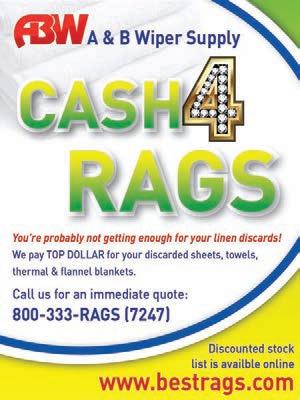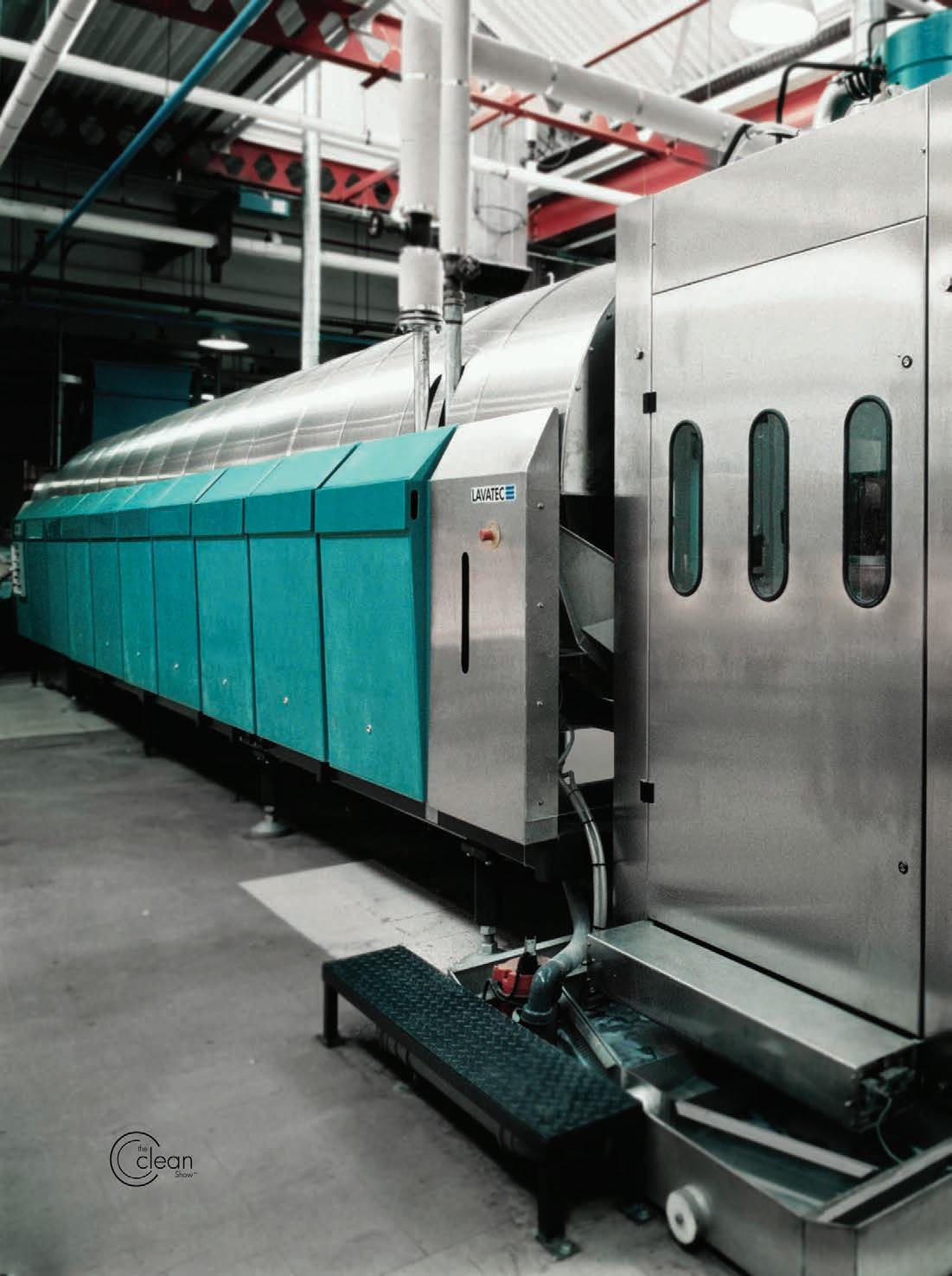Dreher retiring; Hart is Kannegiesser USA president


DALLAS — Kannegiesser



DALLAS — Kannegiesser
NEW ORLEANS — The Ernest N. Morial Convention Center will host the world’s premier textile care expo for a fifth time when the 2013 Clean Show—officially the World Educational Congress for Laundering and Drycleaning— arrives on Thursday, June 20, for a three-day stay through Saturday, June 22.
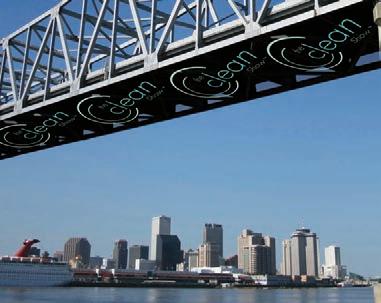
It will mark the first time since 1981 that the Clean Show has been scheduled for three days instead of four, reflecting a “more concise and efficient” format designed to give exhibitors and attendees alike a better value for their investment, according to the Clean Executive Committee.
Hart joined Grand Prairie, Texas-based Kannegiesser USA in 2004 as vice president of marketing, bringing with him more than a decade of industry and product experience. He was promoted to executive vice president in early 2012.
Dreher, who served as president for 13 years, will retain an advisory role that involves marketing the Kannegiesser brand in the Americas.
Kannegiesser GmbH President and CEO Martin Kannegiesser says both Dreher and Hart have demonstrated abilities in combining leadership and teamwork.
The two men thanked the staff and Kannegiesser for their support in making the U.S. market the company’s third largest behind France and Germany.
Kannegiesser USA is planning to display several products in the United States for the first time at next month’s Clean Show. ALN
The Clean Show has been convening every other year since 1977 to present new technology, educational sessions and networking opportunities to all segments of the dry cleaning, laundry and textile care industry. This year’s event is expected to draw 10,000 trade attendees, according to Riddle & Associates, the show’s longtime manager.
“I am constantly asked why
should I come to the Clean Show or why should I exhibit,” says John Riddle, president of Riddle & Associates. “There are many reasons. You will see the newest equipment, learn about new services, see working demonstrations and have access to outstanding industry education.
“In today’s world of electronic communication, it is nice to have the opportunity to communicate
with someone eye-to-eye, faceto-face and talk with them about industry issues. It’s a great chance to renew old friendships and make new ones. These are just several reasons I think making this trip is worth the time, effort and money. We encourage you to ‘Be There’ and take advantage of this opportunity.”
As this issue went to press, approximately 400 companies and organizations were scheduled

From A to Z: A list of Clean ’13 exhibitors, plus basic descriptions of their products and services.
Begins on Page 20
You Are Here: A map of the Ernest N. Morial Convention Center floor plan, including booth assignments. Pages 28-29
Pay Attention, Class: Descriptions of the morning and afternoon educational sessions. Pages 40-41
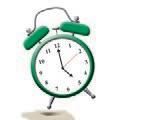
to be represented on the exhibit floor, covering roughly 200,000 net square feet (a full list of exhibitors, as of April 10, starts on page 20). It’s possible that more exhibitors will be added in the final weeks leading up to the event.
The exhibits will open following a brief 10 a.m. ceremony on Thursday, June 20 (distributors are
RIPON, Wis. — Alliance Laundry Systems is restaging its IPSO equipment brand for the North American market beginning at the Clean Show next month, American Laundry News has learned.
Alliance has already launched IPSO’s “Industrial by Design” platform to communicate that the equipment is engineered, tested and built for heavy-duty performance, says Gary Dixon, North American sales manager for IPSO.
“This renewed focus on North America represents the next step in IPSO’s evolution to a truly global brand,” Dixon says. “IPSO has been a premier OPL brand in Europe for more than 40 years, and is sold in 90 countries around the world; you cannot be a truly global brand though without a strong presence in the North American market.”
Alliance acquired IPSO in 2006 and has worked to incorporate key elements of its knowledge base and company identity into the IPSO operation in Belgium while also

tapping into the brand’s 40 years of manufacturing experience there.
“We have arrived at a true unity of purpose and culture, which is another reason we thought the time was right to relaunch IPSO in the North American market.”
IPSO equipment continues to utilize advanced technology developed for the European market that saves energy and reduces water consumption and detergent use, Dixon says.
Its line of 2013 washer-extractors features patented water absorption verification technology not previ-

ously available in North America.
All IPSO washer-extractors sold in North America and throughout the world are manufactured at Alliance’s plant in Wevelgem, Belgium. IPSO tumblers are made at the company’s Wisconsin plant.
Alliance is targeting the onpremise and coin laundry markets with its IPSO brand.
“The Clean Show will be the first time we highlight the restaging of IPSO from the premium European OPL brand to a truly global brand for both OPL and vend,” Dixon says. ALN
CHICAGO — More than 70% of respondents to April’s American LaundryNews.com Wire survey say they are OK with the Clean Show’s shortened three-day schedule this year, compared to the remaining 29.4% who are “indifferent about this change.”
One respondent proposed that the biennial convention be held “every five years,” but with a longer schedule. “Have mandatory attendance by all members, companies and organizations,” the respondent writes. “Have it for a full five-day week with...golf tournaments planned and social events for all in the evenings.”
In fact, a good number of respondents answered that the biggest factor in favor of visiting New Orleans for Clean was the “networking and socializing” opportunities (23.5%), while 11.8% favored the “exhibits of equipment and supplies.” Equal shares of 5.9% pointed to “educational sessions” and “combining business and pleasure.” The most popular response, however, was “all of the above” (52.9%).
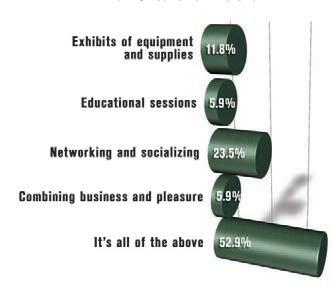
The Association for Linen Management (ALM) and the Textile Rental Services Association (TRSA) are among the organizations hosting educational sessions during the June 20-22 show. Among ALM’s scheduled offerings, Reducing the Loss of Patient Linenand Scrubs and Standards and Regulations Affecting the Healthcare Laundry and Linen Industry have drawn the most pre-show interest among respondents. As for planned TRSA sessions, Textile Services Contracts and Negotiations and TRSA Clean Green and Hygienically Clean Certification Programs: Quantifying Your Commitment to Cleanliness and Sustainability are most anticipated.
More than one-third (35.3%) of those surveyed say they are planning to attend Clean, while 17.6% remain unsure. The remaining 47% aren’t planning to attend, with cost playing an important factor for some.
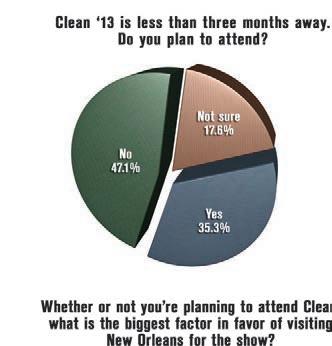
Among respondents who are not attending, about 45% “can’t afford the cost,” 27.3% “can’t spare the time,” and 27.3% said they “made other plans.”
“Employers do not give the time to attend seminars or trade shows,” writes one respondent. “We have to use vacation time to attend. In the past, employers would pay for employees to attend. Now, it comes out of our own pocket.”
While American Laundry News’ Wire survey presents a snapshot of the audience’s viewpoints at a particular moment, it should not be considered scientific. Subscribers to Wire e-mails—distributed twice weekly—are invited to participate in an industry survey each month. The survey is conducted online via a partner website, and is developed so it can be completed in less than 10 minutes.
All managers and administrators of institutional/OPL, cooperative, commercial and industrial laundries are encouraged to participate, as a greater number of responses will help to better define operator opinions and industry trends.
NAUGATUCK, Conn. — Lavatec Inc. has become affiliated with Belgium-based manufacturer Lapauw and is now the headquarters for Lapauw of America, according to Bruce Burmann, vice president of sales for Lavatec Inc.
Lavatec Inc. provides Lapauw with a “major hub for the sales and service of its machines in the U.S. market as well as South America, Central America and Canada,” he says.
The agreement, which was established in close cooperation with Goudkuil Laundry Machinery (it acquired Lavatec Inc. in 2011), brings Lapauw in as a “main investor,” Burmann adds.
Lavatec Inc.’s sales network will promote the complete Lapauw product range, which includes flatwork ironers, feeders, folders, washer-extractors and tunnel finishers.
Lavatec Inc.’s technicians will receive extensive training on Lapauw equipment. A local service unit will not only enable the continuance of service toward existing and new Lapauw customers, Burmann says, it will enhance it in terms of local spare parts stock and availability of engineers.
Lavatec Inc. technicians will also be called upon to start up Lapauw installations in the American market.
“With Lavatec Inc., Lapauw immediately has over 42,000 square feet of manufacturing space at their disposal, which fits in perfectly with its closeto-the-market manufacturing strategy,” Burmann says. ALN
Charles Thompson
Phone: 312-361-1680
E-Mail: cthompson@ americantrademagazines.com

Bruce Beggs
Phone: 312-361-1683
E-Mail: bbeggs@ americantrademagazines.com
Nathan Frerichs
Phone: 312-361-1681
E-Mail: nfrerichs@ americantrademagazines.com
Editorial
National Sales Director
Donald Feinstein
Phone: 312-361-1682
E-Mail: dfeinstein@ americantrademagazines.com

Office Information
Main Phone: 312-361-1700 Fax: 312-361-1685
Subscriptions 630-739-0600 www.americanlaundrynews.com
American Laundry News (ISSN 1091-9201) is published monthly. Subscription prices, payment in advance: U.S. & possessions, 1 year $39.00; 2 years $73.00. Foreign, 1 year $89.00; 2 years $166.00. Single copies: U.S. & possessions $7.00; Foreign $14.00.
Published by American Trade Magazines LLC, 566 West Lake Street, Suite 420, Chicago, IL 60661. Periodicals postage paid at Chicago, IL, and at additional mailing offices.
POSTMASTER, Send changes of address and form 3579 to American Laundry News Subscription Dept., 440 Quadrangle Drive, Suite E, Bolingbrook, IL 60440. Volume 39, number 5. Editorial, executive and advertising offices are at 566 West Lake Street, Suite 420, Chicago, IL 60661. Charles Thompson, President and Publisher. American Laundry News is distributed selectively to qualified laundry and linen management and distributors in the United States. No material appearing in American Laundry News may be reprinted without written permission. The publisher reserves the right to reject any advertising for any reason.
© Copyright AMERICAN TRADE MAGAZINES LLC, 2013. Printed in U.S.A.
Tunnels use a minimum of 0.6 gallons of fresh water per pound of goods
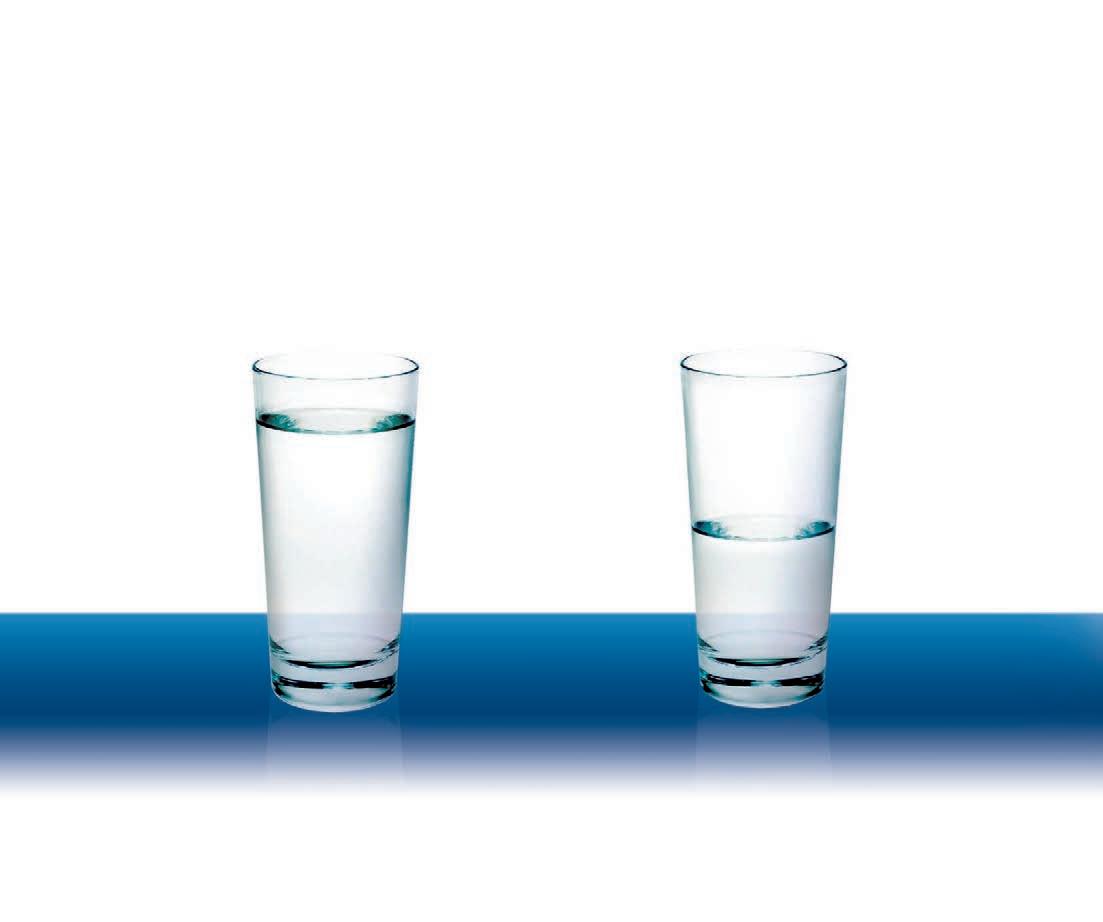
Tunnels use as little as 0.3 gallons** of fresh water per pound of goods
Once again Milnor has revolutionized continuous batch washing–this time with its exclusive PulseFlow* Technology. PulseFlow tunnels combine the innovative RecircONE® pump arrangement that wets down goods quickly, with high velocity rinsing for outstanding results. PulseFlow tunnels still employ traditional True Top Transfer, but use standing bath washing, and intermittent counterflow in every process module. Dedicated rinse modules are eliminated, saving thousands of gallons of fresh water every day. Thanks to PulseFlow Technology, the water is used far more efficiently.
How do you get your goods cleaner, faster using half as much water? Using less. Cleaning more. The only answer is the PulseFlow Technology tunnel–only available from Milnor.
Contact an authorized Milnor distributor or call 504-712-7656 to find out more.
*Patent applied for. **Light soil.
To see how PulseFlow CBW Tunnels work, scan this code.
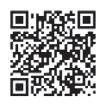
www.milnor.com/pulseflow_technology
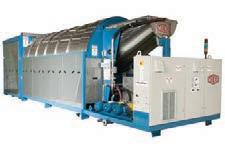
n my experience, time is always at a premium when attending the Clean Show.
i
And time management during Clean will never be more important than it is this year, when next month’s show in New Orleans lasts just three days compared to the usual four.
Clean Show veterans know the importance of having a plan once they enter the Ernest N. Morial Convention Center. This year, you can’t afford to be without one.
Aside from our show cover preview, you’ll find inside a list of the 400 or so companies and organizations that have reserved exhibit space as of April 10, plus basic descriptions of their products
granted exclusive access from 8 to 10). Exhibits will open at 9 a.m. on subsequent days, and they will close each show day at 5 p.m.
Some of the Clean 2013 sponsors, as well as several other industry associations, will offer approximately 40 hours of education over the show’s three-day schedule. Most of the seminars will occur in on-site meeting rooms between 8 and 10 a.m. daily, but in a change this year, some sessions have been scheduled for each afternoon on the exhibit floor itself (a full schedule, along with brief descriptions of each session, is on pages 40-41).
The Clean Show has released a new, free mobile app for Apple iOS- and Android-based smartphones that offers features such as locating exhibitors, planning a personalized show itinerary, and connecting with others via social media. The free app can be downloaded from an individual’s device
The Director’s Chairand/or services and their booth numbers, as well as details on the 40 hours of educational sessions that are scheduled. (Did you know that some sessions will be staged on the show floor itself?)
And don’t you dare forget
about our show floor map, which adorns this issue’s center spread.
If you’re not sure how to go about preparing for Clean, read Phil Perry’s take on getting the most from your trade show investment.
We’ve done what we can to provide you with the tools necessary to create your own plan.
A couple of my staff members will be attending Clean for the first time, and I’m sure this issue will be dog-eared by the time their three-day whirlwind adventure ends.
We’ll have extra copies at our booth—4171. I hope you’ll take just a moment to stop by, introduce yourself, and let us know how we can best serve you. ALN
in the App Store or Market, and is fully integrated with the Clean Show website, and with LinkedIn and Twitter.
“In the age of technology, offering a smartphone app just makes sense,” says John Riddle. “We want our attendees and exhibitors to be able to stay connected before, during, and after the show and be able to do it while on the go.”
Attendees who do not have a smartphone can still maximize their time at the show by using CleanShow.com’s “My Itinerary” feature. Visitors can store in a personalized “Briefcase” their schedule of educational sessions and booths they wish to visit, as well as print out their “Itinerary” to bring with them.
Another show change is the relaxation of certain rules regarding the convening of affiliate groups during trade show hours. In the past, meetings were restricted to hours outside education and exhibit hours, but now exhibitors and industry associations can schedule their sales, distributor or group meetings during educational
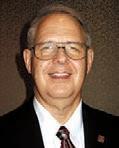
sessions or between the hours of noon and 2 p.m.
Attendees can easily register for the Clean Show online at its website for the discounted rate of $99 a person through May 31 (on-site registration will be $149 per person).
Registration hours at the convention center will be 1-5 p.m. June 19, 7 a.m. to 4:30 p.m. June 20, 7:30 a.m. to 4:30 p.m. June 21, and 7:30 a.m. to 4 p.m. June 22.
Reservations for official Clean Show hotels can be made on the show’s website until May 17 (special show rates are available only through the Clean Show Housing Bureau).
Complimentary shuttle buses will transport attendees between official hotels and the convention center mornings and afternoons during the show.
The Clean Show is sponsored by the Association for Linen Management, Coin Laundry Association, Drycleaning & Laundry Institute, Textile Care Allied Trades Association, and the Textile Rental Services Association of America. ALN
This month’s column addresses finetuning a tunnel washer system to get maximum productivity. I have never seen a tunnel washer system that had enough dryers to prevent the tunnel from going into hold while it waits for an available dryer. I have seen many a tunnel washer operation that, with proper scheduling of the work, can eliminate the need for the tunnel going into a hold cycle.
The key to maximizing tunnel washer productivity is in knowing how to schedule work through the machine.
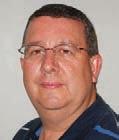
To begin, gather this information:
1. Number of loads to be washed per day of each type of linen
2. Drying time for each type of load
3. Hourly requirement of the production side for each item
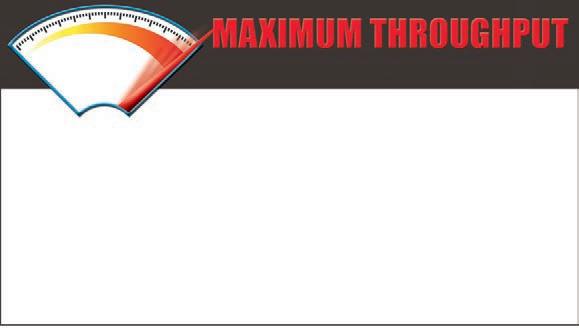
4. Inventory level for each type of load (to ascertain need to push loads through in case of low inventory)
5. The number of available dryers
6. Cycle time for the tunnel washer
In my laundry, I have broken my loads down into three categories: No-dry loads (sheets sent directly to the ironers), short-dry loads (patient gowns, pillowcases, bath towels, bath blankets, washcloths), and long-dry loads (thermal blankets, incontinent pads). By developing a scheduling system that follows a set pattern, I can keep all the workstations busy and maximize use of the tunnel washer capacity.
To start improving your tunnel washer capacity, you need a good starting point. Before making any changes, accurately determine, over the course of at least one week, how many loads per hour you are getting through your washer. Compare that figure to the theoretical capacity. For example, a tunnel washer operating on a 2minute cycle can produce up to 30 loads per hour. A tunnel washer operating on a 21/2 minute cycle can produce 24 loads per hour. Chances are, yours is not operating at its theoretical capacity.
A quick review of the problems causing you to not meet maximum capacity will most likely confirm that the problem is lack of dryer capacity. If other problems are discovered—tunnel going into hold for low temperature, or a low water level—these should be corrected before you move forward with a productivity improvement program.
To improve your tunnel productivity, you need to be able to pick and choose which linen items are going into the machine. This may require that your soil-sort area start work 30 to 60 minutes before your tunnel washer. Based on your original research into the types of loads you are washing, and their respective dry times, make a first attempt at developing a tunnel loading schedule. Use this schedule for several days and compare the results with your baseline productivity. Expect to make some changes as you learn what mix of linen works well and what mix of linen does not.
In my plant, I can easily maximize my tunnel output for an hour or two by running a majority of sheets through the tunnel that bypass the dryers and go directly to the ironers. But by doing so, dryers are not utilized and various areas of the laundry run out of linen. My goal is to maximize dryer use and tunnel washer output. Each laundry operates with different equipment and a different linen mix so there is no universal loading system that works for all occasions or circumstances.
•
•
•
•
•
•
•
•
•
•
•
•
By monitoring the loads per hour in your tunnel, and tracking the utilization of your dryers, you should be able to develop a highly workable loading system within a month. The improvements made from this effort, even if small, will have a major impact on your operation over the course of a year.
•
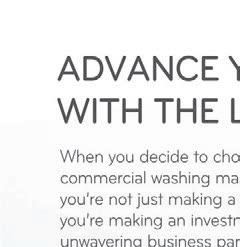
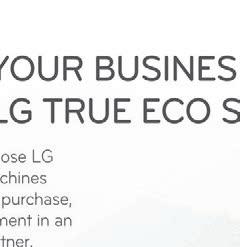
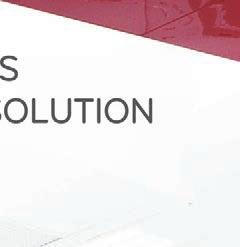
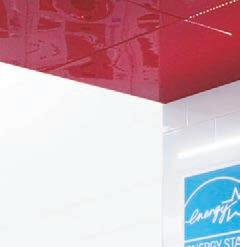



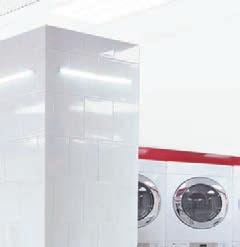
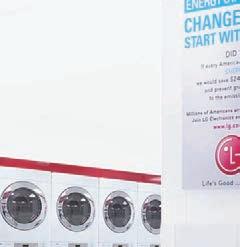


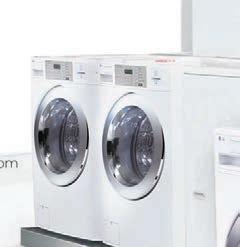
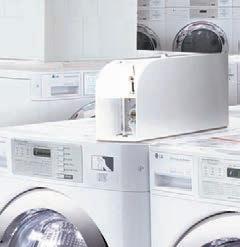
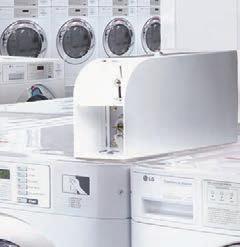

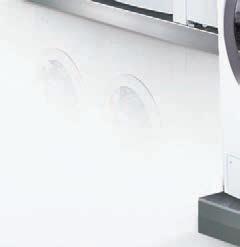

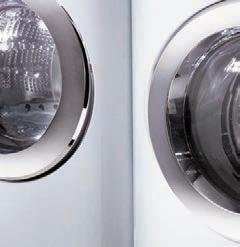




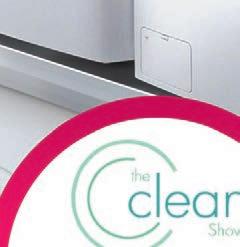

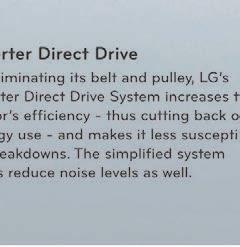
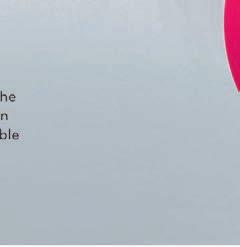
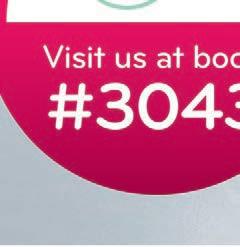
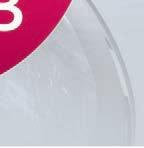
Having received numerous requests for newly revised information on this subject, I have reviewed the volumes of information obtained from both healthcare and hospitality laundry operations worldwide for 2010-2011.
I did my best to convert foreign cost to U.S. cost—both were changing rapidly as of December 2011—and discovered that our foreign counterparts were, in most segments, slightly more cost-efficient and, due to exchange rates, getting more production for the money simply due to the value of certain currencies, lower fringe benefit cost and higher degrees of automation. (I am pleased to report that this gap is closing rapidly.)
There could be numerous explanations, of course, but the primary reason was the vast difference in labor and fringe benefit cost in our country vis-à-vis other foreign locations, primarily those in Europe, Russia and the Far East.
The basis for this analysis was to determine benchmark alignments once various currencies were adjusted to match the U.S. dollar. Both higher and lower extremes in costing for each element were evaluated for accuracy. A group of independent accounting specialists who volunteered its time was utilized to draw the various conclusions reached in the report. Foreign laundry experts assisted in the translation of some information.
Throughout the process of validating accuracy of the data provided and drawing comparisons, the identity of each facility remained confidential. Each facility was simply referred to as a number or letter, depending on the type of operation: healthcare or hospitality. For those with a combination of tasks, every effort was made to categorize each element.
Every facility that supplied information has done so every year since this periodic review began.
As consultants and various levels of internal management continue to overly complicate laundry operational cost scenarios, as well as depicting systems that may not prove costeffective, it is apparent that laundry and facility managers, as well as top executives with a renewed interest, require a cost benchmarking rule of thumb that will assist them in selling their operations, i.e. justifying new systems or a new facility, obtaining new customers and, probably most important, comparing variable cost that should influence decisions to continue in-house operations or examine outsourced management, operations, linen rental, transportation, etc.
I remain amazed that folks who seem to be knowledgeable simply complicate data in such a form that it becomes extremely difficult if not impossible to interpret. The same situation applies when reviewing opportunities to automate and modernize operations. It is apparent in some cases that new operations with new systems are not as cost-effective as planned, mostly due to a misunderstanding of previous cost and the industry’s promises to improve on the status quo.
Institutions, general contractors and A/E’s that hire consultants to review laundry facility operations should also continue to rely on internal expertise and experience, I believe. The institutions should also ensure that the consultants and experts selected are experienced in reviewing all applicable operational elements. A consultant with expertise in energy management, for example, may not be qualified to review laundry production or linen distribution.
It is quite apparent that large laundry and linen-rental consortiums that deal specifically with healthcare markets are becoming more competitive. As business tends to escalate, and based on recent information, cost seems to be leveling out to some degree, with the exception of the impact of
high cotton cost and, most recently, fuel cost.
My previous forecast that total cost of operations may reach $1.10 per pound processed/delivered by 2013 seems right on target. The rising cost of healthcare insurance benefits enacted as a result of healthcare reform could dramatically increase the cost of operations and associated product and equipment purchases in 2014.
A review of approximately 473 healthcare and hospitality laundry facilities located in the United States and 23 foreign countries with operations that process a combined 276 million pounds annually with varying degrees of efficiency reveal the following benchmark costs (in U.S. dollars) that should be deemed most efficient on the average, even though most every facility demonstrated opportunities to reduce cost, especially in labor-sensitive areas.
Most important to note in this analysis were the plans to reduce labor and utilities cost related to washing, drying, conveyance, and flatwork feeding and finishing. These facilities also reported that major efforts were under way to reduce textile-replacement cost through standardization efforts and by examining best value over lowest cost for an item. It’s unfortunate that the federal government seems to continue to focus on lowest cost rather than the impact of overall cost.
Other major components under review seem to drive at lowering chemical cost by conducting actual comparisons and focusing on the customer service element that is so critical to this facet of the operation.
The variables between healthcare and hospitality cost were certainly interesting. Hospitality was higher on the average, which was expected, with the average variance
costs were running at 24-32% of actual salary cost (in other words, add that percentage to base salary cost).
— 3-5 cents per pound processed and delivered
Maintenance and Repair Cost: Labor cost and materials associated with routine maintenance of applicable systems, including processing and ancillary support equipment, carts, etc.
— 7-11 cents per pound processed and delivered
Equipment Depreciation: Divide equipment value by 15 years.
— 4-6 cents per pound processed
Depreciation of Property and Applicable Property Taxes: Divide aggregate cost of land and building plus annual taxes by 75 years.
— 3-5 cents per pound processed and delivered
General Supply Cost: Includes leasing of office equipment, office supplies, covers, pads, hangers, thread, wax, patches, buttons, etc.
— 2-4 cents per pound processed
Chemical Supply Cost: Laundry chemicals, water treatment, etc.
— 3-5 cents per pound processed
Utility Cost: Electrical, steam, gas, water, oil, sewer, refuse removal, and solar.
— 8-10 cents per pound processed
SUBTOTAL: For a most efficient operation, Production Cost should be 48-69 cents per pound processed
Textile Distribution & Replacement Cost Benchmarks
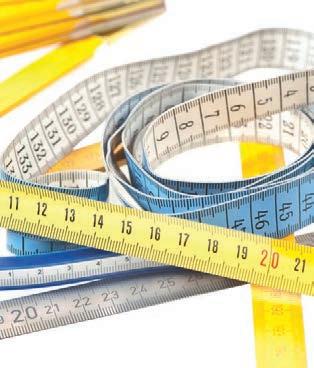
Textile Distribution and Return Cost: Includes drivers, fees, tolls, leasing, fuel, vehicle maintenance/repair, linen room distribution (from cart assembly to end-user locations) labor and benefits, seamstress/repair/marking, uniform distribution, cart depreciation and replacement, and transportation to external customers.
—13-15 cents per pound processed (within this component, fuel cost was 4-5 cents per pound)
Textile Cost: Surgical, uniforms, general textiles, drapes and other textiles based on a seven-par maintenance value for healthcare or hospitality.
—17-21 cents per pound processed
SUBTOTAL: Textile Distribution and Replacement Costs should be 30-36 cents per pound processed and delivered.
The overall operational cost benchmark ranged in 20102011 from 78 cents to $1.05 per pound processed and delivered.
While the overall variance in cost ranges is certainly widespread, a manager must carefully and accurately calculate all costs associated with the actual operation—all are different.
A major failing on management’s part is the inability to calculate fringe-benefit cost and include it as part of the outcome. Calculating production cost while forgetting other costs simply raises additional questions. All costs depicted in this exercise are considered equally important; one without another would have painted an inaccurate picture.
being between 6 and 7 cents per pound processed. This was mostly attributed to the higher quality/cost of textiles acquired, which is significant.
Processing Cost: Direct labor costs, including fringe benefits (health insurance, retirement, etc.), which are applicable to the receipt, sorting, washing, drying, ironing, conveying and preparing of textiles for delivery within a laundry processing facility.
— 18-23 cents per pound processed
Administrative Cost: Covers personnel in laundry and textile product management, secretarial, contracting administration, general foreman and nonproduction employees/ housekeeping (includes fringe benefit costs, such as union dues, health insurance, etc.). On average, fringe benefit
If, for some reason, you think your costs are lower than the benchmark’s lowest range, I encourage you to re-examine and recalculate your numbers. More importantly, make sure you have included all costs so they parallel those listed in this report.
As mentioned in my previous analysis (published in 2011), textile replacement cost and transportation cost for 2010-2011 did reflect marginal increases. ALN
Ken Tyler is vice president of government operations for Encompass LLC. He managed the entire textile and laundry operations for the U.S. Department of Veterans Affairs for 23 years, retiring in 2000.


Talley Machinery Corp. offers inverter drive cabinets that meet Underwriters Laboratories testing requirements as an option to help support the safe operation of flatwork ironers.
To be shown at Clean ’13 in New Orleans, the inverter drive cabinet earned UL-certification under UL 508A, the Standard for Safety of Industrial Control Panels, enabling laundry operators to meet an increasing number of state mandates requiring electrical installations to meet UL standards, according to the company.
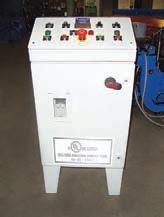
The UL listing documents a high level of quality and instills confidence in workers operating and maintaining the laundry machinery, Talley Machinery says.
Installed to date on a variety of Hypro, Sylon, Super
Electrolux Professional recently introduced SmartDosing, a new system that automatically adjusts the quantity of detergents to the actual load size in the washer. It works in combination with Electrolux’s Automatic Water Savings system (AWS), which weighs the actual load size and adjusts water for that load.
The human error of underloading washers allows for wasted water and laundry chemicals. While traditional systems work on the assumption the washer is always loaded to full capacity, with SmartDosing, the laundry chemical controller is “smart” enough to adjust chemicals in relation to water. If a washer is loaded to 50% capacity, the water and chemical savings could be up to 30% per load, Electrolux says.
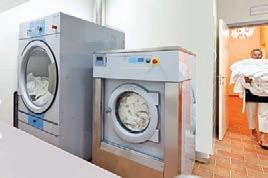
SmartDosing is simple to install and easy to use, according to the company. Operators do not need to select anything — the process is automatic. An integrated USB port completes the system, allowing pro-
Ecolab introduces the Performance™ Industrial Program, which addresses the high-performance cleaning needs of industrial laundries while helping to minimize environmental impact.
To improve operational sustainability and align with EPA efforts to promote alternative ingredients, many healthcare and hospitality laundries have reduced or eliminated the use of formulations with ingredients such as nonylphenol and nonylphenol ethoxylates (NPEs). Given their extraordinary cleaning challenges, industrial laundries have found it challenging to find effective, NPE-free alternatives, Ecolab says.
The Performance Industrial Program is a threeproduct system that uses patented NPE-free chemistry to effectively remove the heaviest industrial soil. Mike Johannsen, Ecolab’s senior vice president and general manager of Global Textile Care, says the
Sylon and Streamline flatwork ironer models from American Laundry Machinery, and on several Troy Laundry Machinery flatwork ironers, the UL-certified inverter cabinet serves as the foundation of the company’s soft-start inverter drive system.
The ironer system gradually increases the speed at startup over a period of several seconds to eliminate parts wear while reducing energy consumption and cutting electric bills, Talley Machinery says.
The UL-listed inverter cabinet may be retrofit onto ironers while in plant or added to ironers during remanufacture at Talley’s facility.
talleymachinery.com 800-222-9954




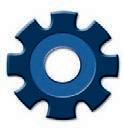
The Pillow Factory Division of Encompass Group introduces Stellar® Positioning Products, designed to find the perfect balance between the function healthcare providers require and the comfort patients deserve.
The positioners can be used to elevate, prop and support patients. The powder blue color is attractive and ideal for both inpatient and outpatient use, Encompass says.
Technologically advanced Comfort Care™ fabric provides an ultra-soft and breathable surface that easily wipes clean (the positioners are not launderable). Its cloth-like surface combines with a cool, dry feel and recycled polyester fiberfill to create a unique option for patient positioning. Unlike tradi-

tional foam positioners, which can lead to moisture and heat buildup, Comfort Care™ fabric promotes healthy skin care, Encompass says.
The positioners are anti-microbial-treated, resist fluids and staining, and can be easily disinfected for reuse, the company adds.
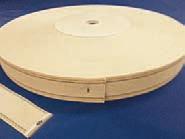
Stellar Positioning Products are available in a variety of styles. encompassgroup.net 800-245-4636
gramming data to be uploaded or reports to be downloaded. The controller is able to manage from two to six pumps, and works seamlessly with Electrolux Compass Control washers equipped with AWS. The proper dosing ratio allows for a finished product that has been thoroughly rinsed and is comfortable for use. Controlling chemicals and water also has a positive environmental impact, the company adds.
“It’s not just about machines,” exclaims Kim Shady, senior vice president of OPL at Laundrylux, which distributes Electrolux products in North America. “Electrolux solutions create added value for your business. … Every innovation is designed by experts to best meet your needs and exceed your expectations — and SmartDosing definitely exceeded my expectations.”
laundrylux.com/electrolux 800-645-2205
Tingue, Brown & Co. will unveil its new Black Knight laundry machine belting during the Clean Show in New Orleans, the company reports. Black Knight features a proprietary, high-density weave to deliver strength, wear resistance and long life exceeding that of other premium-quality belts, the company claims.
To be unveiled in booth 2903, the Black Knight belting was developed for installation on flatwork ironers, folders and other laundry equipment where non-stop productivity is required, downtime is to be avoided and cost savings are desired, the company says.
Made exclusively in the United States, the Black Knight laundry belt is available in 1-inch, 11/2-inch, 2-inch, 21/2-inch, 23/4-inch and 3-inch widths, and in 375-foot rolls with a choice of lacing styles. Glued ends or sewn endless are offered as options.
A spec sheet is available free as a PDF on the company’s website.
tinguebrownco.com 800-829-3864
program “redefines industrial-strength cleaning for today’s efficiency-driven, sustainability-minded era.”

The program’s distinctive blend of surfactants, conditioner and soil suspension agents effectively removes petroleum, oil and grease, and delivers an exceptional level of whiteness, Ecolab says.
Currently in use by multiple industrial laundries, the Performance Industrial Program delivers soil removal and whiteness results comparable to detergents using NPE chemistry, the company adds.
Besides providing cleaning and sustainability benefits, the Performance Industrial Program delivers operational savings to industrial laundries through first-pass cleaning and easier rinsing; shortening wash cycles; reducing rinse steps; and helping customers to conserve water and energy, Ecolab says. ecolab.com 800-553-8683
The HF-25 ozone system from WET-TECH, The Ozone People, represents an innovative approach to commercial and industrial ozone washing, the company says.
Designed to meet the needs of highvolume production facilities dealing with heavy-soil classifications, the system independently supplies controlled levels of ozone to multiwash machines, including tunnel washers or continuous batch washers.
Controlled ozone applications can help improve wash quality and reduce operating costs while assisting in meeting regulatory stan-
dards, the company says. Ozone, which is infused in a gaseous state, provides improved wash performance without leaving a chemical residue on fabrics, it adds.
Producing from 25 to 100 pounds per day at 5% concentration, the HF-25 system impacts washer operation by breaking down washwater contamination for improved wastewater treatment.
Its booster feed supply with compressed air flushdown ensures complete, positive ozone feed to each wash machine. wet-tech.com 508-831-4229
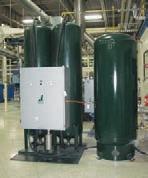
UL-certified inverter drive cabinet designed to support safe flatwork ironer operation
Dosing system automatically adjusts quantity of detergents to actual washer load sizes
Machine belting features high-density weave to deliver strength, resist wear
New chemistry program formulated to address industrial laundries’ high-performance cleaning needs
System independently supplies controlled levels of ozone to multi-wash machines
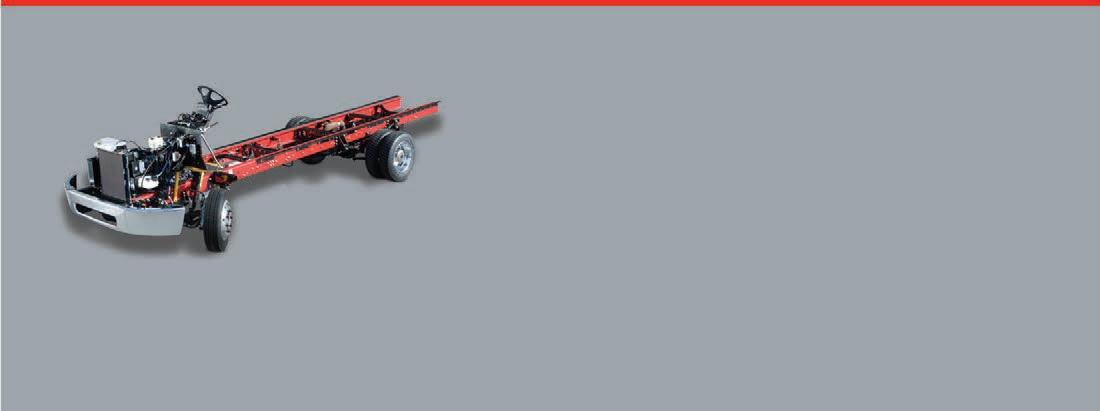
Out-think the box.
As a small business owner, we understand you’re always looking for ways to improve efficiencies and increase profits. An FCCC walk-in van is just the vehicle to get you there with proven reliability, superior performance, efficiency and durability that deliver maximum return on your investment. Affordable in diesel- or gas-powered models, FCCC walk-in vans offer easy entry and exit for fast and convenient deliveries.
Outfitting your business for success has never been so easy. Let us show you at www.freightlinerchassis.com or call (800) 545-8831.
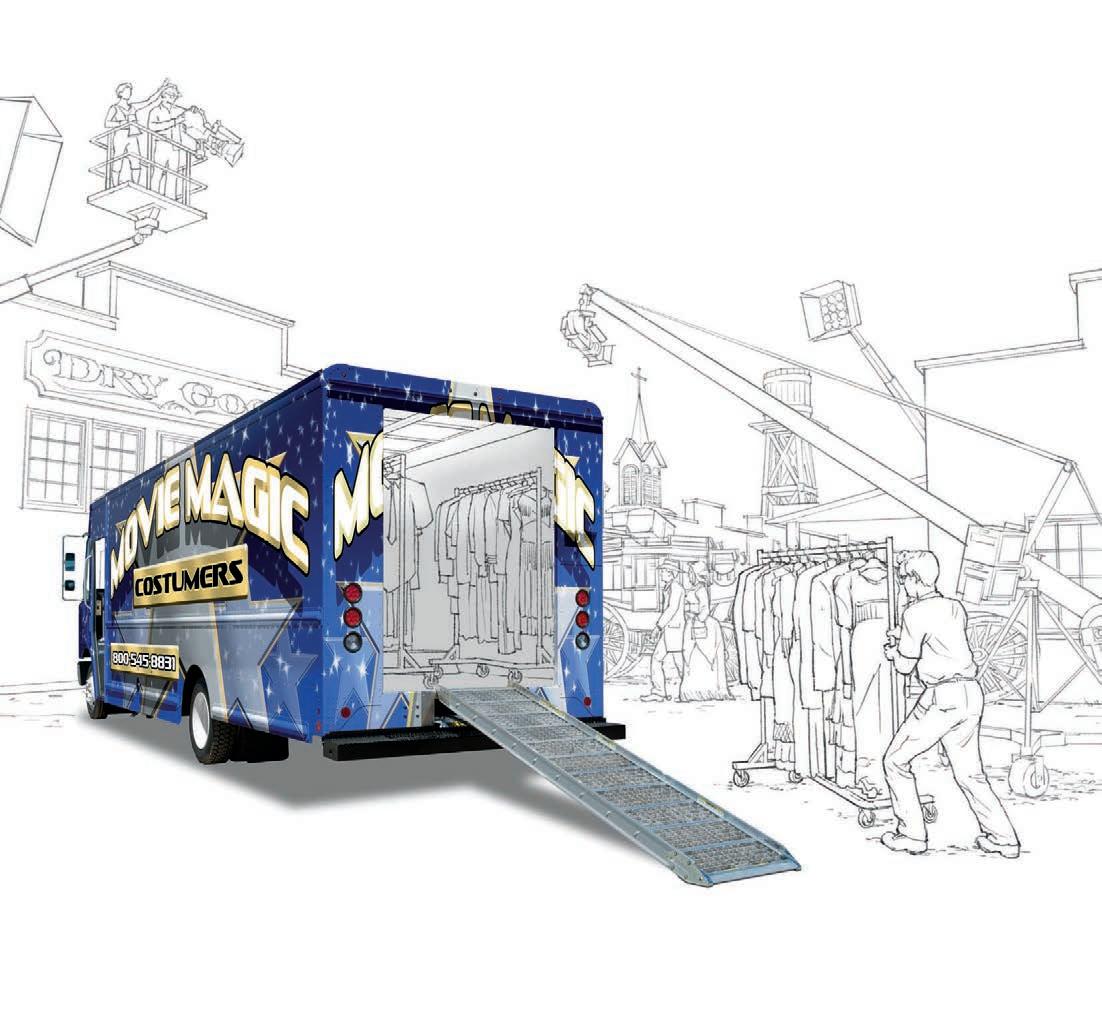
With the state of the economy in question, many are looking at used and rebuilt equipment for their laundries. But like purchasing a used car, the buyer must perform the due diligence to ensure the savings they seek.
There are three types of “used” equipment categories one may consider when looking at deciding on a piece of equipment not purchased new from the original equipment manufacturer (OEM). There are the truly “used” equipment items that are typically purchased “as is.” Second, there is the equipment purchased from a third party and then “rebuilt.” Last, there is the equipment purchased from the OEM that is rebuilt to OEM specifications.
Using the analogy of purchasing a used car, buying an “as is” piece of equipment equates to purchasing that car from another car owner. This presents the most risk, and requires the most diligence on the buyer’s part.
Here are some important questions a buyer in this situation should try to answer:
How many hours of actual runtime does the machine have and/
or what year was it manufactured?
If the machine has more than 30,000-50,000 hours, it is generally approaching the end of its useful life without going through a complete rebuild.
Was the machine purchased new, and why is it being sold?
This is why a thorough inspection is important. Structural issues, evidence of poor maintenance or functional problems present “buyer beware” signals.
Is the machine running now, and can it be inspected?
If the machine isn’t running or the seller declines to allow a prospective buyer to inspect it, there’s cause for concern.
Has the machine been maintained during its life, and are there records to support this?
No record of preventive maintenance presents a red flag.
Are parts still available for the machine from the OEM or another source?
An inability to source replacement parts, especially control parts for upgrade or retrofit, is another red flag.
Does the machine carry any certifications (i.e., UL, CSA, ETL) and
will they still be valid if the machine is purchased and relocated?
Depending on the machine type, certifications may be mandated by the local municipality in order to run the machine. Most certifications end when the machine is moved to a new location, and obtaining new certification may be impossible.
When looking at a third-party rebuild, here are some questions to ask:
Does the rebuilder have references on other like equipment that one can check on?
No references could mean poor workmanship, and the machine may have been repainted but not rebuilt.
Does the rebuilder tear the machine down completely and inspect for and replace/repair structural damage?
If the answer is no, or one gets a “yes” but no proof, buyer beware.
Are components and controls upgraded to the latest available?
If not, can one obtain parts for what the rebuilder is selling on the machine? If not, buyer beware.
Does the rebuilder provide a warranty on the rebuilt machine and

the components?
No warranty puts a prospective buyer back in the “as is” scenario. If the rebuilder does offer a warranty, qualify what is covered.
What certifications will a buyer need to allow for operation in his/ her plant/municipality?
According to CSA and ETL certifying agencies, no rebuilder other than the OEM can recertify a machine to CSA, UL, ETL or similar standards.
Finally, when considering purchasing a rebuilt machine from the OEM, here are some questions to ask:
Does the OEM have references on other like equipment?
If the OEM can’t provide references on similar-type rebuilds, this presents a red flag.
Was the machine completely torn down and inspected for structural issues and repaired as necessary? Does the OEM provide a warranty on the rebuilt machine?
If it was not completely torn down and repaired as necessary, then there is a good chance that the warranty, if any, will be limited. Were all the components and controls upgraded to the latest available?
If the component and controls weren’t upgraded, is there a path through either the OEM or another party to obtain replacement parts in the future? If not, there’s cause for concern.
What certifications does a buyer need to allow for operation in their plant/municipality? Does the OEM recertify the rebuilt machine to the latest standards?
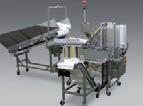
Again, according to CSA and ETL, OEMs are the only ones that can recertify a machine to the latest standards. To do so, however, means replacing all components and controls so the machine meets standards. If it doesn’t come with certifications, what’s the reason?
Which purchasing scenario is best comes down to the buyer’s budget.
Typically, a machine rebuilt by third party or OEM is going to cost more than one bought from an owner. Also, buying a truly rebuilt machine as opposed to an “as is” machine may lend more confidence to depreciating the asset as one would a new machine.
Take the time to do the homework and make sure a bargain is truly a bargain. ALN
The
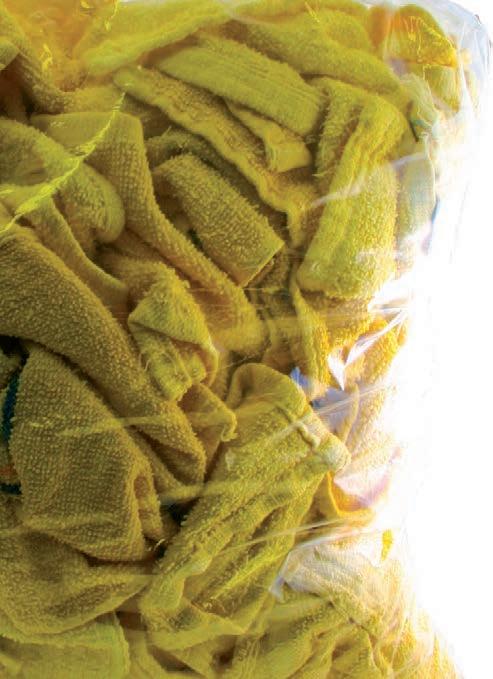
Everyone in the Healthcare Laundry field has experienced the skin sanitizer stain that won’t go away. Now you can prevent those stains in one washing cycle with the new patent pending Magi-ClensTM chemical laundry product from Gurtler Industries. Plus you can eliminate the costly changes you made to avoid the dreaded permanent stains from Hibiclens® or similar Chlorhexidene Gluconate (CHG) products that your healthcare partners use.
And you will be able to address those infection control issues you have faced. We specialize in laundry chemical product technology...it’s our main focus. That’s why we have developed some of the most advanced and trusted laundry chemical products in use today. New Magi-Clens is only available from Gurtler Industries.

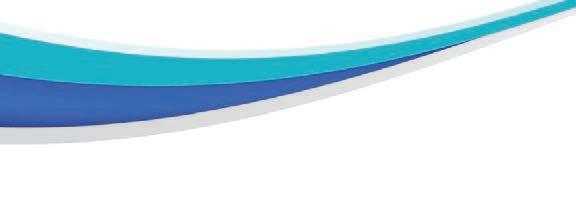

Contact your local Gurtler sales consultant today for a free magical demonstration!
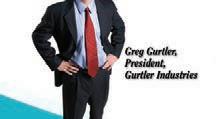


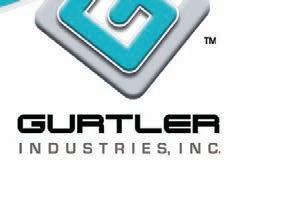
Magi-Clens™...eliminates skin sanitizer stains like magic!

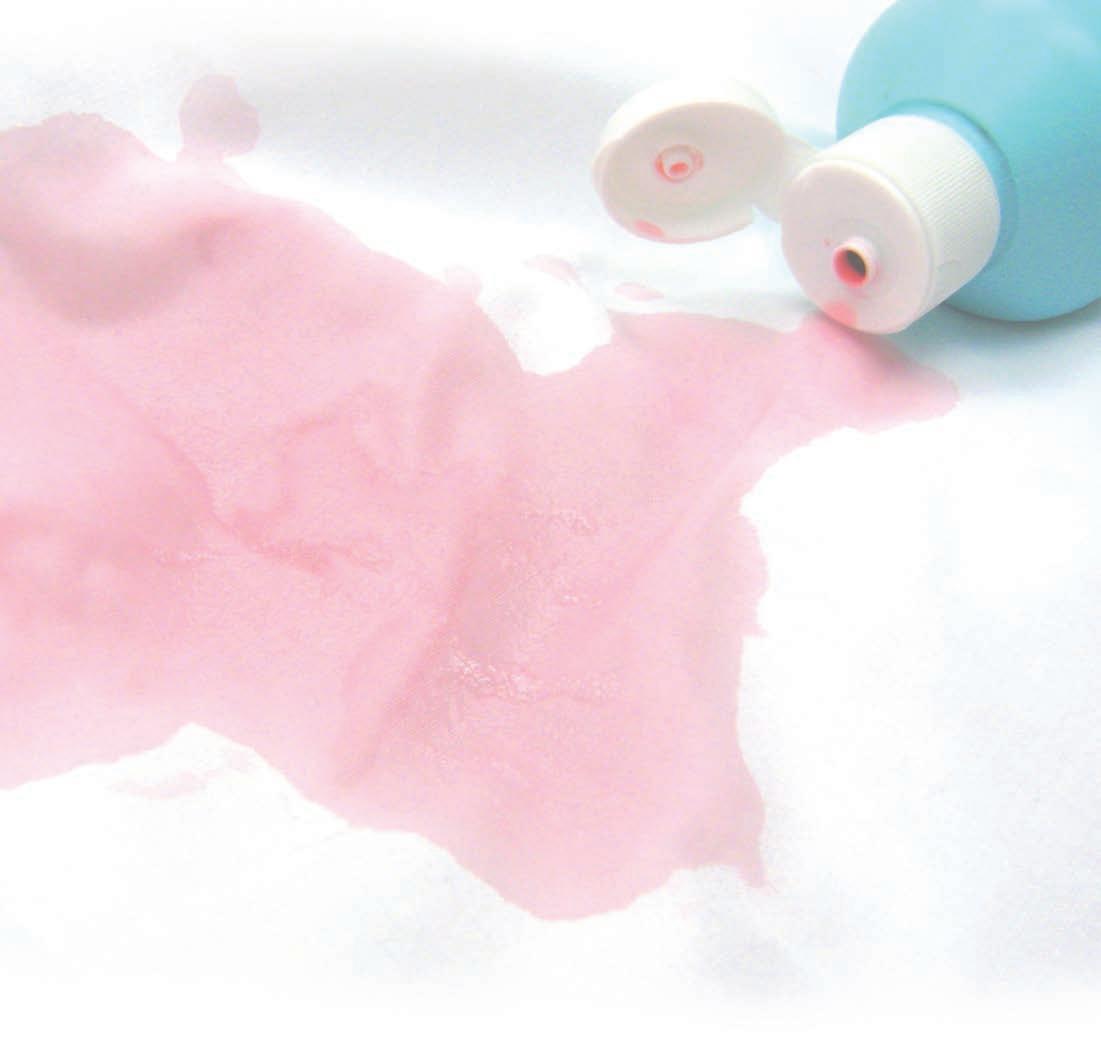
CHARLOTTESVILLE, Va. — Running a business can be a daunting responsibility, and perhaps at the core of this duty is strategizing the company’s move toward growth.
David Bernstein, senior vice president at Turn-Key Industrial Engineering Services, recently presented an Association for Linen Management (ALM) webinar titled Growing Your Business, during which he laid out key strategies and considerations for business owners ready to develop and grow their company.

Bernstein’s strategy first calls for owners to think of “SMART” goal setting: to be specific about their company’s goals; set measurable, attainable and relevant goals; and create a time frame for accomplishing those goals.
“If you say [you] want to increase [your] business, you need to start thinking about what business is it that [you] want to increase,” says Bernstein. “What is it exactly that you want to do [and] what do you want to accomplish? And then make it measurable.”
Think of establishing key performance indicators that will not only enable owners to track the company’s progress, but also in an objective manner. Goals should ultimately be attainable by the company.
“A lot of times [owners] will really shoot very far into the stratosphere,” he says. “When you challenge your team […] are you giving them a goal that is attainable or have you given them a stretch goal? Make sure that you’re realistic with them about it.”
“Everyone thinks that they can do many things and add a lot to their plate,” he added. “But at a certain point, you start adding so much that you’re not doing anything very well.”
Another factor is determining whether a company has the physical means to sustain growth.

A clear understanding of the company’s production model, staffing requirements and equipment purchase projections are the key factors Bernstein pointed out when owners take stock of their capacity analysis.
“Make sure that you can […]
live up to the promises that you’ve made to your customers […] while making sure that you’ve got the right amount of people [and] equipment [and that] you’re still caring for the equipment and the people in the way that they need to be.”
Regarding acquiring new equipment to boost capacity, Bernstein advises laundry owners to consider the various industries that many laundries service, and whether their company has the means to provide that service.
For example, if a hospitality laundry owner wants to start processing food and beverage goods, Bernstein suggests that they might look into purchasing a sorting and counting system to process smaller garments.

“If you’re strictly one or the other, moving to the one that you’re not can be quite an adjustment on your people and your process,” he says.
Taking on more accounts is one strategy to take to grow business. Another avenue Bernstein spoke about was the possibility of starting a direct sales/ancillary services
department.
He cites several industrial, food and beverage, hospitality and healthcare laundries selling restroom services and cleaning supplies as part of their product line to existing customers.
“If you’re not offering these kinds of services, your competitors will,” he advises.
What strategies can owners take to develop and form new relationships with prospective customers?
Bernstein admits that making cold calls can be a frightening ordeal, but there are other approaches owners can take.
A former customer, for example, may have become dissatisfied with your service. Consider calling them and addressing how your company has improved upon that specific service or product.
He also suggests using referrals, which allows barriers to come down because of the familiarity between contacts.
In addition to working with colleagues in scouting for new business, Bernstein suggests partnering with others in the industry who sell complementary products.
But no matter what approach business owners take, Bernstein
recommends owners go out themselves and “make periodic visits” to customers.
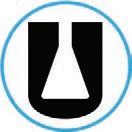

“Remind them why they bought from you […] Remind them what you promised and that you delivered,” he says.
“It never hurts to ask them, ‘What could we do better?’ You may learn something,” he adds.
Bernstein suggests investing in services such as a customer relationship management (CRM) system—Zoho and Salesforce. com are examples—that will help employees organize, manage and automate a company’s business.
He also suggests the use of marketing automation software like Marketo.com or Constant Contact to keep in touch with customers on a digital scope, as well as prospect research tools like Hoovers and Manta to help owners learn more about prospective customers in their market.
With this foundation in place, according to Bernstein, business owners can begin to reach their growth objectives.
“These are the things that you need to be doing if you’re looking at growing your business and improving your sales.” ALN
For over 50 years U.N.X. INCORPORATED has been involved in the development of products that not only solve quality problems that exist at the moment, but also provide long term benefits to the customer and the environment in which we live. U.N.X. was built on the foundation of improving the industry in which we participate. U.N.X. prides itself on being an industry leader with state-of-the-art products and dispensing equipment, and our plans for the future are extraordinary.
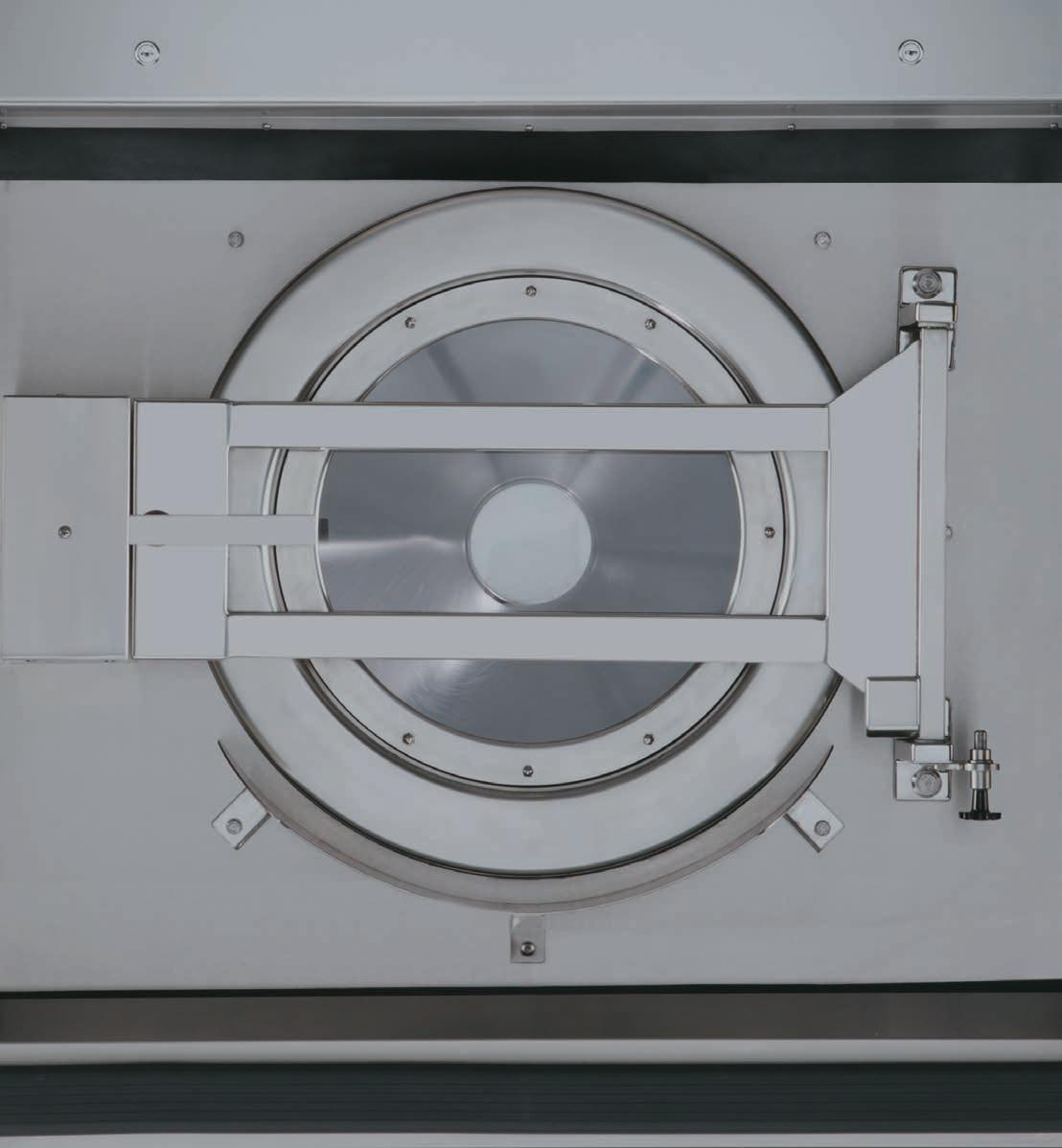
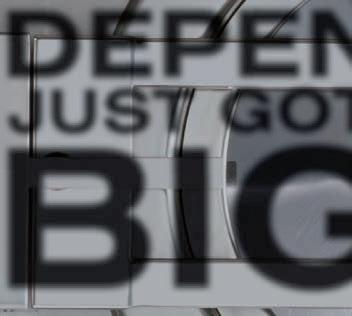
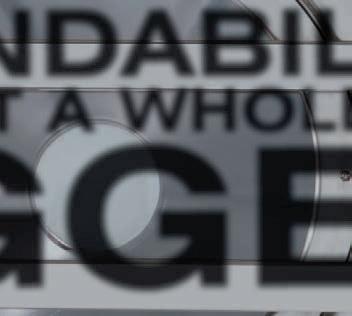
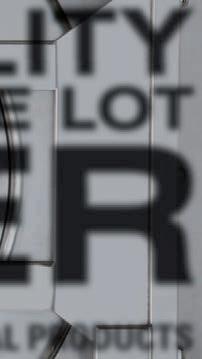


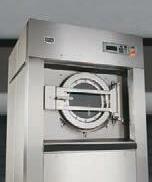

 By mark e. BattersBy
By mark e. BattersBy
ARDMORE, Pa. — The socalled “fiscal cliff” tax package recently signed into law renewed more than 50 temporary tax breaks through 2013, saving individuals and businesses an estimated $76 billion. For the owners and operators of small- and medium-sized laundry businesses, there is good news and bad news.
First, the good news: greater certainty in taxes. The owners and operators of laundry businesses have grown used to many longstanding tax breaks but they also have had to get used to the uncertainty of whether they will be renewed each year.
On the downside, in addition to a 3.8% Net Investment Income (NII) tax and a 0.9% Additional Medicare tax that, thanks to the Health Care and Education Reconciliation Act of 2010, began in 2013, many business owners discovered they are subject to new taxes. Single individuals with incomes above $400,000 and married couples with income higher than $450,000 will pay more in taxes in 2013.
The American Taxpayer Relief Act extended through 2013 the Tax Code’s Section 179 first-year expensing write-off for equipment and business property purchases. Now, the higher expensing limits in effect in 2011 have been reinstated for 2012 and extended for expenditures made before Dec. 31, 2013. Thus, a laundry business can expense or immediately deduct up to $500,000 of expenditures in 2012 and 2013, subject to a phaseout if total capital expenditures exceed $2 million.
The election to expense off-theshelf computer software under Section 179 has also been extended and applies to expenditures made before Dec. 31, 2013.
The tax break that allows profitable laundry businesses to write off large capital expenditures immediately—rather than over time— has long been used as an economic stimulus by our lawmakers. While 100% “bonus” depreciation expired at the end of 2011, today the new law allows 50% bonus depreciation for property placed in service through 2013.
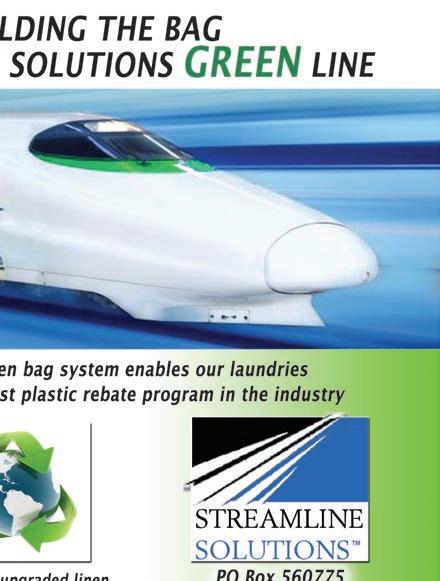
Some transportation and longer-lived property are even eligible

for bonus depreciation through 2014. If bonus depreciation had not been extended, the 2012 tax year would have been the final year in which substantial first-year write-offs for buyers of business automobiles and light trucks were available.
To be eligible for bonus depreciation, property must be depreciable under the standard MACRS (Modified Accelerated Cost Recovery System) and have a recovery period of less than 20 years. Section 179 first-year
expensing remains a viable alternative, especially for small businesses.
Property qualifying for the Section 179 write-off may be either used or new, in contrast to the bonus depreciation requirement that the taxpayer be the “first to use.”
Leasehold improvements and building improvements generally must be depreciated over 39 years. The tax law provides a special 15-year, straight-line depreciation break for qualified leasehold improvements, restaurant property, and retail improvements.
Naturally, there are quite a few restrictions, such as the lease must between unrelated parties.
Qualified leasehold improvements also qualify for the 50% bonus depreciation. In fact, qualified leasehold improvements, restaurant property, and retail improvements up to $250,000 may qualify for Section 179 expensing. Best of all, these provisions have been extended for property placed in service before Jan. 1, 2014.






[on your employees and your budgets]






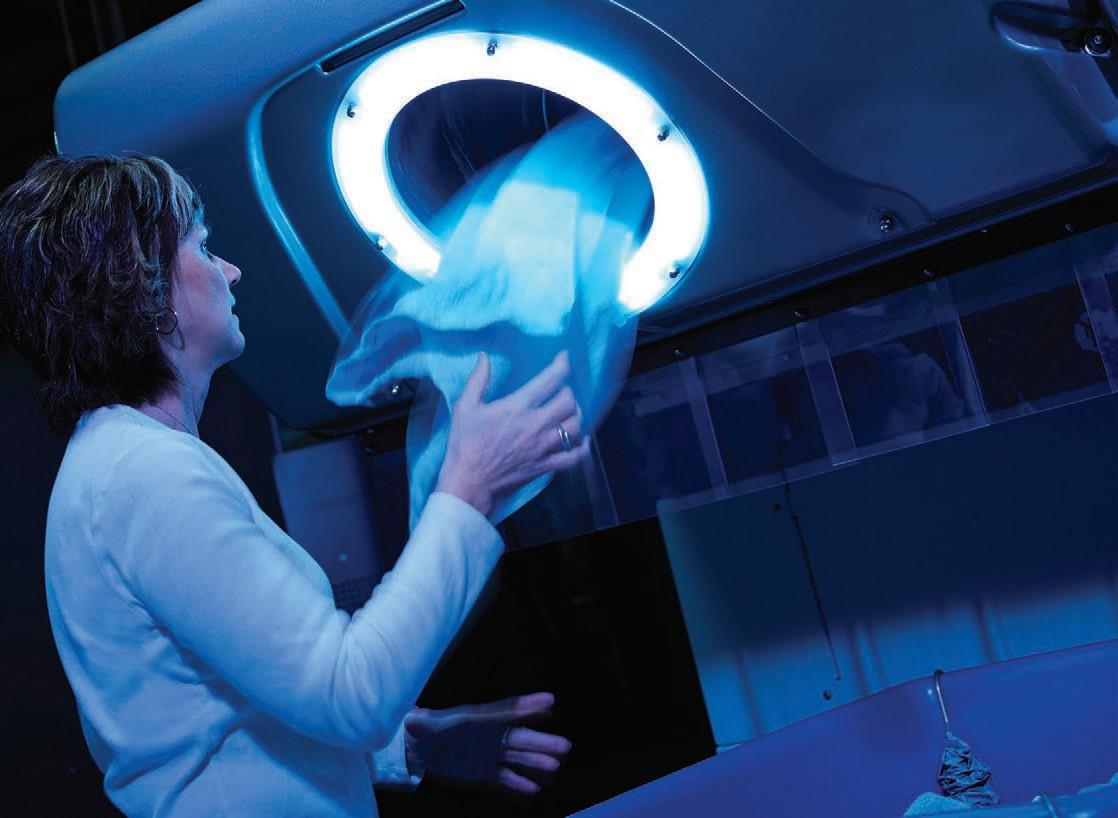
The patented Vacuum Loading system on Girbau Industrial’s ST-1300 dryer allows operators to quickly load items into the dryer without a conveyor. A powerful suction pulls items inward with minimal effort and no risk or hazard to attendants. In less than one minute, attendants can fully load up to 140 pounds of laundry into the dryer. From the same area, items are then automatically unloaded—increasing productivity, reducing labor and boosting profits for your laundry.
Visit www.girbauindustrial.com to see Girbau Industrial’s complete range of products for industrial laundries.




Contact Girbau Industrial today to see how the ST-1300 can reduce labor costs in your laundry! (800) 256-1073 • www.girbauindustrial.com
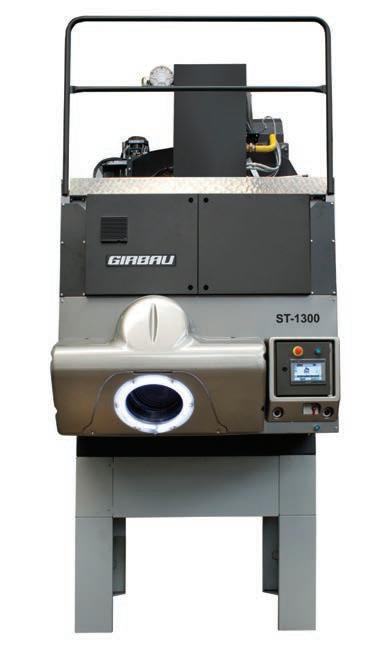
The Work Opportunity Tax Credit (WOTC), which rewards employers that hire individuals from certain target groups, has extended to Dec. 31, 2013, and applies to individuals who begin work for the employer after Dec. 31, 2011. Under the revised WOTC, laundry businesses hiring an individual from within a target group are eligible for a credit generally equal to 40% of first-year wages up to $6,000.
An S corporation is a passthrough entity and not usually subject to income taxes. It is, however, liable for the tax imposed on builtin gains or capital gains. The tax on built-in gains is a corporate-level tax on S corporations that dispose of assets that appreciated in value during the years when the operation was a regular C corporation.
The new law extends a relaxed version of the provision limiting the “recognition period” to five years, but only for “built-in gains” recognized in 2012 and 2013. Thus, if a laundry business elected S corporation status beginning Jan. 1, 2007, it will be able to sell appreciated assets it held on that
date without being subject to a hefty tax bill.
As mentioned, single individuals with incomes above the $400,000 level and married couples with income higher than $450,000 will pay more in taxes in 2013 because of a higher 39.6% income tax rate and a 20% maximum capital gains tax. Of course, for other individuals, the alternative minimum tax (AMT) has finally been indexed for inflation.
Ironically, the AMT was created to ensure that wealthy individuals, not middle-income households, would pay some kind of income tax. The new law increases the 2012 exemption amounts to $50,600 for unmarried individuals and $78,750 for couples filing jointly. For 2013, the AMT exemption amounts are predicted to be $80,750 for married couples filing jointly and $51,900 for single individuals.
Always of significant interest to family-owned businesses, the estate tax has long been a bit of a mixed bag. The $5 million-perperson exemption was kept in place (and indexed for inflation). The top rate was increased, however, to 40% effective Jan. 1, 2013. This change is expected to increase
government revenues from 2012 levels by $19 billion. Other good news for estate planning: portability is kept in place and estate and gift taxes remain unified, i.e., the $5 million stays in place for gift-tax purposes as well as estates. And, best of all, it is all permanent.
The majority of laundry businesses operate as pass-through entities, such as partnerships and S corporations. Profits are passed through to their individual owners and therefore are taxed at individual income tax rates. Some business owners might be considering switching to a regular C corporation with its top rate of 35% rather than doing business through an S corporation, LLC, etc., subject to a top rate of 39.6% on the passthrough income.
But it’s important to look much deeper than the tax rates. With a pass-through entity, the shareholders are taxed only once on the income. With a regular C corporation, distributions would first be taxed at the corporate level and once again at the shareholder’s level for an additional 15-20%, plus the 3.8% net investment income tax.
That double taxation becomes even more significant on the sale of the laundry business. Although there are provisions in the tax law
that allow all or a portion of the gain on the sale of a business to be excluded or ignored, they are limited.
Another consideration, particularly for small businesses, is that any expenses disallowed by an IRS auditor will only result in increased income to the passthrough entity. When doing business as a regular corporation, disallowed personal expenses increase the income of the corporation and are taxed as constructive dividends to the shareholders. The same is true for unreasonable compensation of shareholder/officers.
Keep in mind that if a switch from an S corporation to a regular C corporation is made, a switch back to an S corporation can’t be made for five years—unless permission is received from the IRS. If an LLC or partnership is incorporated, there can be expenses and potential tax consequences.
The increase in the top tax rates, the AMT relief provided for the 2012 tax year, and the hidden taxes all combine to make it possible for many small- and medium-sized businesses ineligible for business credits thanks to AMT limitations in 2011 to potentially be able to take advantage of these dozens of credits. It is, in essence, a backdoor opportunity, similar to when Congress expanded eligibility for credits for 2010.
Although it is not the grand bargain as envisioned by lawmakers, many popular but temporary tax extenders relating to businesses were included in the American Taxpayer Relief Act: the Code Section 179 small-business expensing, bonus depreciation, and the Work Opportunity Tax Credit. Unfortunately, the new law is effectively a stopgap measure designed expressly to prevent the onus of the expiration of the Bushera tax cuts from falling on middle-income taxpayers. Congress must still address spending cuts and may even tackle tax “reform.”
The time is now for every laundry business owner, operator and manager to consult with their accountants and/or tax professionals to focus on the potential savings offered by these newly revised, extended and expanded business credits, deductions and tax write-offs. ALN
Information in this article is provided for educational and reference purposes only. It is not intended to provide specific advice or individual recommendations. Consult a financial adviser for advice regarding your particular situation.
Mark E. Battersby is a freelance writer who has specialized in taxes and finance for more than 25 years. He is based in Ardmore, Pa.
Lavatec Inc. 300 Great Hill Road Naugatuck CT 06770 - USA
Lavatec Inc. 300 Great Hill Road Naugatuck CT 06770 - USA




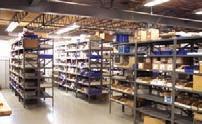


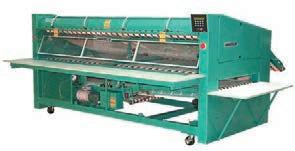
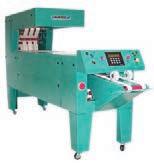


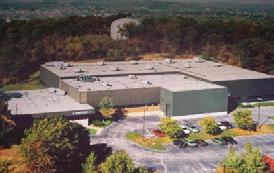
Toll Free: 1 800 255 2515 Tel: 203 723 1122 Fax: 203 729 4977 Email: info@lavatec.com www.lavatec.com
Toll Free: 1 800 255 2515 Tel: 203 723 1122 Fax: 203 729 4977 Email: info@lavatec.com www.lavatec.com
Contra Costa Water District.
CONCORD, Calif. — When one thinks about the highlights of a hotel property, they’ll mention amenities, restaurants, and overall service. The on-premise laundry likely doesn’t figure into even the top 100 features.
But if your business is efficiency and turning a property into the pinnacle of green lodging, the laundry room certainly might warrant top billing.
That’s the case here at the Hilton Concord. The 329-room Interstate Hotels & Resorts Worldwide property recently completed a $10 million dollar upgrade that focused heavily on sustainability. And the result is a hotel transformed into the standard for efficiency.
Lead consultant on the project, Charles Smith, CEO of Hotel Sustainability Solutions Inc. (HSSI), says that from the start, the charge was to place the property in a leadership position in terms of sustainability.
“This hotel is light years ahead of the competition,” says Smith,
adding that the outcome is the culmination of extraordinary integration, collaboration and cooperation.
Make no mistake, this was an extensive effort, one that involved addressing all facets of the facility.
It included incentives and rebates from utility provider Pacific Gas and Electric (PG&E), Smart Lights and Lodging Savers, as well as the
Taking a leadership position included implementing 33 sustainability initiatives, such as replacing all 6,400 light bulbs with LEDs, adding motion sensors, swapping shower heads with new low-flow heads, adding window film to reduce energy use, a pillow restoration unit, food scrap digester, and much more, even addressing landscaping and exterior lighting that utilizes LEDs and motion-sensing technology.
But whenever peers or Interstate
personnel want to learn about the property, the laundry makeover gets top billing.
“The laundry really is one of the highlights whenever anyone wants to see the property,” Smith says.
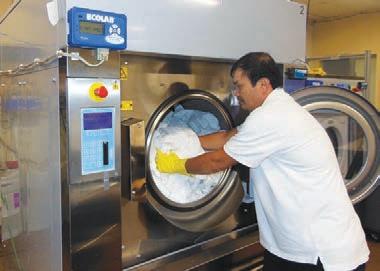
Ahmet Ibrahim, owner of Roseville, Calif.-based A2Z Laundry Systems, spearheaded the installation of cutting-edge Electrolux laundry equipment at the hotel. He views this facility as the new green lodging standard as well. “This is our model for efficiency.”
As the hospitality market began to tick upward, finding a sustainability solution became ever more critical.
Becoming the model of efficiency, however, would take some work. The current state of the laundry was rough. Equipment was dated and repairs were mounting, when parts actually could be found to make the fixes. One dryer even had been taken out of service. Still, laundry loads were being processed daily, but the true cost of this dated equipment soon would be uncovered.
As HSSI began the task of evaluating options, key factors con-
sidered were the efficiency of the equipment, availability of rebates or incentives, distributor/manufacturer service and support, and the ability to upgrade equipment in the future.
Though Smith looked at a variety of laundry equipment manufacturers, the goal of creating the model of efficiency guided selection. That meant choosing a brand that delivered on its efficiency claims and had the numbers to prove it, according to Smith.

“Electrolux played a key part in the technology,” he says. “They stood out in the selection of technology available...their prominence caught our attention.”
Electrolux’s global leadership is evident in it being named to the Dow Jones Sustainability World Index in 2012. This places it in the top 10% of the 2,500 companies in the Dow Jones Global Indexes with regard to long-term economic, environmental and social performance.
The Hilton Concord had been using soft-mount washers in the laundry and Smith was committed to staying with this product type because of its high G-force extrac-
Hilton Concord revamps OPL with new washers, ozone system, dryers(Photo: Laundrylux)
tion speed versus hard mounts. Soft mounts also were preferable because they don’t require an additional concrete foundation. However, lower installation costs and high G-force extraction would not be enough. Water conservation, utility consumption, and operational efficiency were equally important.
Oddly enough, water savings started at the drain. The Electrolux soft-mount units (two with 145 pounds capacity and one with 60 pounds capacity) that Ibrahim recommended featured a unique pancake drain that helps reduce water consumption during fills. The hotel’s existing units can waste as much as 2 gallons of water per fill because they include a large sump and drain hose in the fill.
Considering a standard of five to six fills per cycle, savings total 10-12 gallons per cycle. Overall, the Hilton Concord is saving 192,960 gallons of water annually in the laundry. When added to the savings realized through guestroom improvements such as low-flow shower heads and toilets as well as other conservation efforts at the property, water savings total more than 525,000 gallons per year.
Savings grew with the addition of an ozone system. Ozone, when injected into the wash cylinder, is reported to increase the effectiveness of laundry chemicals, thus requiring smaller dosages and
eliminating the need for hot water.
The majority of the ozone system’s cost was offset through rebates from PG&E and the Contra Costa Water District.
On the drying side, an agreement was reached on five 83-pound-capacity Electrolux dryers to replace two 150-pound and two 110-pound units. Though drying capacity went down, the speed and efficiency of the new dryers combined with the high-extract G-force of the washers enable the laundry to process more loads per day: 9.78 loads versus 7.81.
“The overall result of the higher extraction rate allowed us to go with smaller dryers and really spread out the loads,” Smith says, adding that the additional capacity contributed to greater operating efficiency, making staff more productive.

Moisture-sensing technology, which enables the units to dry to a set moisture-retention level and then shut off the heat, further boosted efficiency.
With much of a laundry’s gas consumption coming on the drying side, this is where the Hilton Concord saw a huge reduction in utility usage and costs. Combined with the 90% reduction in hot water usage, the laundry is consuming almost half as many Btus as before.
“There is a dramatic drop...Btus are so much lower and there’s a huge amount of savings,” Ibrahim says, adding that the laundry will see roughly $8,400 in gas savings annually.
He pointed out that the dryers derive their efficiency advantage from a unique horizontal airflow pattern as well as their reversing cylinder — a standard feature on 120volt units, an industry exclusive.
Linens benefit from reduced drying times. With more water being spun out in the washer and ozone injection opening linen fibers, only short dry cycles (or conditioning cycles before linens are ironed) are used. Table linens even go directly from the washer to the ironer, with no drying necessary.
The laundry is using about onethird the electricity it did before the retooling. Savings such as these, however, are only part of the green story. Because of the involvement of water and utility entities, $135,360 in rebates and incentives have helped offset purchase and installation of new laundry equipment and other efficient products, systems and technologies.
While the new equipment takes much of the risk of operator error out of the equation, retraining staff is integral to maintain efficiency, Smith says. “The biggest challenge
was re-educating people. We had to break some bad habits.”
Part of that retraining includes weighing loads to make sure employees always utilize full machine capacity. Underloaded washers and dryers waste utilities, cutting into operational efficiency. In addition, staff also was taught that linen could be slightly moist; it doesn’t need to be bone-dry.
Manivone Khangsensing, the property’s executive housekeeper, says the staff has responded favorably to the retraining and to the ease of operating the new laundry equipment.
“People liked that we lightened their burden,” Khangsensing says of ridding the laundry of manual overrides and training employees to trust the advanced software technology. “It provides for ease of operations; there’s nothing complicated about it.”
Processing is much improved with the speed, efficiency and reliability of the Electrolux models, which eliminates worker stress. Plus, the work environment has been improved with LED lighting strategically installed where equipment is located.
For hoteliers pondering similar projects to increase sustainability, Smith stresses taking time upfront to focus on planning. He recommends carefully analyzing the
property to determine where the greatest efficiency may be gained. Then, it’s a matter of investigating the potential to offset upgrades through rebates and incentives.
“Sometimes you wouldn’t move forward without a rebate. It’s an integral part.”
When it comes to the laundry, equipment that reduces water/utility consumption is the key focus, but Smith also cautions against taking efficiency boasts at face value. Review and analyze numbers.
In today’s technological revolution, it’s important to select products and systems that can be upgraded within the expected life cycles of ownership. It was Electrolux’s commitment to those upgrades that garnered the hotel’s attention.
Lastly, Smith advises that a strong equipment warranty and continued backing from the equipment manufacturer and distributor are important in the pursuit of sustainability.
“The retrofitting of the laundry room was a much-needed and important part of our sustainability platform,” says Jack Hlavak, the Hilton Concord’s general manager. “Uptrending in the hospitality market necessitated a higher commitment to the guest experience... we are now delivering the pinnacle of linen quality and that is showing in our improved guest-satisfaction ratings.” ALN

NEW ORLEANS — The following companies and organizations have reserved exhibit space in the Ernest N. Morial Convention Center for Clean ’13 as of April 10, according to show manager Riddle & Associates.
The list totals approximately 400 exhibitors at press time; it’s possible that more exhibitors will be added in the final weeks leading up to the June 20-22 event. Check www.cleanshow.com for any late additions or changes.
Riddle & Associates estimates exhibit space will total approximately 200,000 net square feet.
Where available, the descriptions of products and/or services provided here are general in nature and should not be considered all-inclusive.
Listings are subject to change without notice.
under the Cissell®, Huebsch®, IPSO®, Speed Queen® and UniMac® brand names.
❏ Alliant Systems 1962 Irving, Texas Route accounting software for the textile service industry.
❏ A.L. Wilson 3406 Chemical Co. Kearny, N.J. Stain removers and other chemicals for professional dry cleaning and laundry use.
❏ A-1 Textiles 5003 Chatsworth, Calif.
Bed, bath and table linens for the hospitality industry.
❏
Ameresco 4800 Framingham, Mass.
Renewable-energy, energyefficiency and energymanagement solutions.
A❏
❏ A&B Wiper 5220 Supply Inc. Philadelphia, Pa.
Wholesale towels, microfiber cloths and cleaning rags.
❏ ABS Laundry 2155 Business Solutions Tucker, Ga.
Route accounting, garment tracking and linen management software and systems.
❏ Adco Products 4856 Albany, Ga.
Alternative dry cleaning solvents.
❏ Air Quality Labs 3154 Seattle, Wash.
Wastewater equipment for dry cleaning systems.
❏ Air World Inc. 4900 Mahwah, N.J.
Pads, covers, mesh net bags and other supplies for dry cleaners and laundries.
❏
Ajax Boiler Inc. 4466 Santa Ana, Calif.
Boilers and commercial water-heating products.
❏
Albatross 4936 USA Inc.
Long Island City, N.Y.
Dry cleaning chemicals and detergents; compressed air equipment; spotting boards and kits; steam generators.
❏
Time Session Title Sponsor
and administrators of institutional/on-premise laundries and textile rental companies (commercial, industrial and linen supply).
❏
American 4607 Laundry Products
North Augusta, S.C.
Textile products for laundry and dry cleaning, including flatwork ironer pads and covers; specially woven fabrics; and feed and folder ribbons.
❏
American 4821 Laundry Systems
Haverhill, Mass.
Mechanical engineering company specializing in commercial laundry consulting, plant layout/design, process mechanical systems, and equipment installations.
American 5120 Associated Companies Inc. Fayetteville, Ga.
Sheets, towels, table linen, healthcare garments, laundry bags and aprons for the linen rental industry.
❏ American Changer 1856 Fort Lauderdale, Fla.
Bill changers, bill breakers, token dispensers, ticket dispensers and card dispensers.
❏ American 4171 Coin-Op Chicago, Ill.
Trade magazine and website for self-service laundry owners.
❏ American 2609 Dawn Inc. Compton, Calif.
Textile products for wholesale, commercial and retail markets.
❏ American 4171 Drycleaner Chicago, Ill.
Trade magazine and website for dry cleaning businesses and suppliers.
❏ American 2831 Dryer Corp. Fall River, Mass. Dryers for on-premise, coin-operated and industrial laundry facilities.
❏ American Reusable1655 Textile Association Mission, Kan.










Trade association promoting awareness of and appreciation for reusable textiles.
❏
American Textile 5222 Systems Cerritos, Calif.
Bed linen and pillows; terry towels and bath products; sheeting; and miscellaneous textiles and toilet paper.
❏
American 4171 Trade Magazines Chicago, Ill.
Publisher of American Laundry News, American CoinOp and American Drycleaner.
❏
AMS Products/ 4742 Object Design Wharton, N.J. Nylon, cotton, mesh, polyester, biohazard and barrier laundry bags.
❏
Angeline 1825 Group Ltd. Shin Juang City, Taipei, Taiwan Healthcare and hospitality textiles and other products.
❏
AquaPhoenix 2254 Scientific Hanover, Pa. Quality-control testing supplies and equipment.
❏
Alliance Laundry 3621 Systems
Ripon, Wis.
Commercial laundry equipment and services
Thursday, June 20
8-8:30 a.m. Meritorious Service Awards DLI
Honoring individuals or firms who “have given so much to [the] industry” 8-9 a.m. Coin Laundry Trends for 2013 CLA
Learn where the coin laundry industry is going in 2013 8-9 a.m. Regulatory and Legislative Update TRSA
Gain a competitive insight into regulatory initiatives impacting textile services 8-9:30 a.m. Reducing the Loss of Patient Linen and Scrubs ALM
Get a handle on preventable linen loss and put new strategies in place 8-10 a.m. Efficient Laundry Processing ETSA
Techniques in the European Market
European supplier firms will discuss efficiency and sustainability in laundry 8:45- How to Build a Great Yelp Presence DLI 10 a.m. Learn about Yelp and how to manage your organization’s online reputation 9-10 a.m. Internet Marketing Success Stories of Coin Laundries CLA Strategies for Internet marketing and social media
9-10 a.m. Textile Services Contracts and Negotiations TRSA










Examine important aspects and best practices of the contracting process
2:30- Implementing Best Practices ALM
3:30 p.m. How to use your organization’s best practices to bolster your marketing position
3:30- Social Media: Which Tools Laundries Should Embrace CLA 4:30 p.m. Learn the must-do’s and best practices of social media for laundries
8-9 a.m.
Best Practices for Wash, Dry, Fold and CLA
Commercial Accounts
Discover best practices of marketing, sales operation, and production for wash, dry, fold and commercial accounts
8-9 a.m. International Textile Services Market Panel TRSA (ETSA, TSA-UK and Intex)
Gain insight from global organizations representing the largest textile services operators and associates 8-10 a.m. Alternative Solvents: Which is Best for You? DLI Experts discuss the benefits and drawbacks of various solvent choices 8-10 a.m. Demystifying Healthcare Terminology CLATA
Review industry trends, topics and terminology related to healthcare textiles 8-10 a.m. Standards and Regulations Affecting the ALM Healthcare Laundry and Linen Industry
Examine the standards set by CMS, Joint Commission, CDC and OSHA 9-9:30 a.m. Today’s and Tomorrow’s Consumer Needs in TRSA Emerging International Markets (CINET)
Learn about textile services opportunities based on extensive global research 9-10 a.m. Advanced Laundry Lease Analysis CLA Examine the fine print and learn how to secure one that works in your best interest
9-10 a.m. Winning Strategies to Control Linen Loss and Abuse ARTA Panel of experts will present proven strategies for keeping linen in your system 9:30- Future International Textile Services Market Demand TRSA 10 a.m. Gain insight into developing partners, supply chains and customers to establish long-term business growth
2:30- Quick Fixes to Common Problems DLI
3:30 p.m. Discover practical, easy-to-implement solutions to problems plaguing dry cleaners
3:30- TRSA Clean Green and Hygienically Clean Certification TRSA 4:30 p.m. Programs: Quantifying Your Commitment to Cleanliness and Sustainability
Learn how to meet rigorous standards and quantifiable measurements
8-9 a.m. Disposables vs. Reusables: Research that Quantifies TRSA the Sustainability Advantages of Napkins, Shop Towels and Barrier Gowns
Obtain life-cycle assessment (LCA) figures that quantify the sustainability of reusable textiles
8-9 a.m. Goin’ Green DLI
Find out how some cleaners are using “green” to bring in more customers
8-9:30 a.m. ALM Fireside Chat ALM
Eavesdrop on this discussion among allied trade partners
8-10 a.m. The ABC’s for Potential Laundry Owners CLA
Take an in-depth look at key numbers, reports, lease info and more 8-10 a.m. The Future’s So Bright, I Gotta Wear Shades! CLATA
Analyzing the state of the dry cleaning and laundry industry
8-10 a.m. The Keys to Successful Multiple Store Management CLA
Learn what it takes to grow a chain of laundries
❏ American 4171 Laundry News Chicago, Ill.
Trade magazine and website for managers
❏
AquaRecycle 2953 Marietta, Ga.
Laundry wastewater recycling systems and dryer heat recycling system.
ArbelSoft Inc. 2603 Fort Lee, N.J.
Point-of-sale computer software for dry cleaners
9-10 a.m. Developing a Culture of Safety TRSA
Receive industry-specific safety-related resources
9:15- Investing in Your Business DLI
10 a.m. Discover how one cleaner is using technology to work smarter, and more efficiently to turn out a better product
2:30- Staying Abreast of Change ALM
3:30 p.m. Tune into emerging research, technology and trends
3:30- Ask the Laundry Experts CLA
4:30 p.m. Your chance to ask any non-mechanical laundry industry question
and coin laundry operators.
o ARCO/Murray 2149 National Construction Co.
Oakbrook Terrace, Ill. Design/build general contractor specializing in the laundry industry.
o ArtiClean Ozone 3763 Laundry Systems Versailles, Ky. Ozone laundry systems.
o ASCO Numatics 3108 Florham Park, N.J. Fluid-control and fluid-power products.

o Asiatic Fiber 1633 Corp. Taipei City, Taiwan
Clean room, medical, antistatic, EMI, fire-retardant, heating, and cooling textiles.
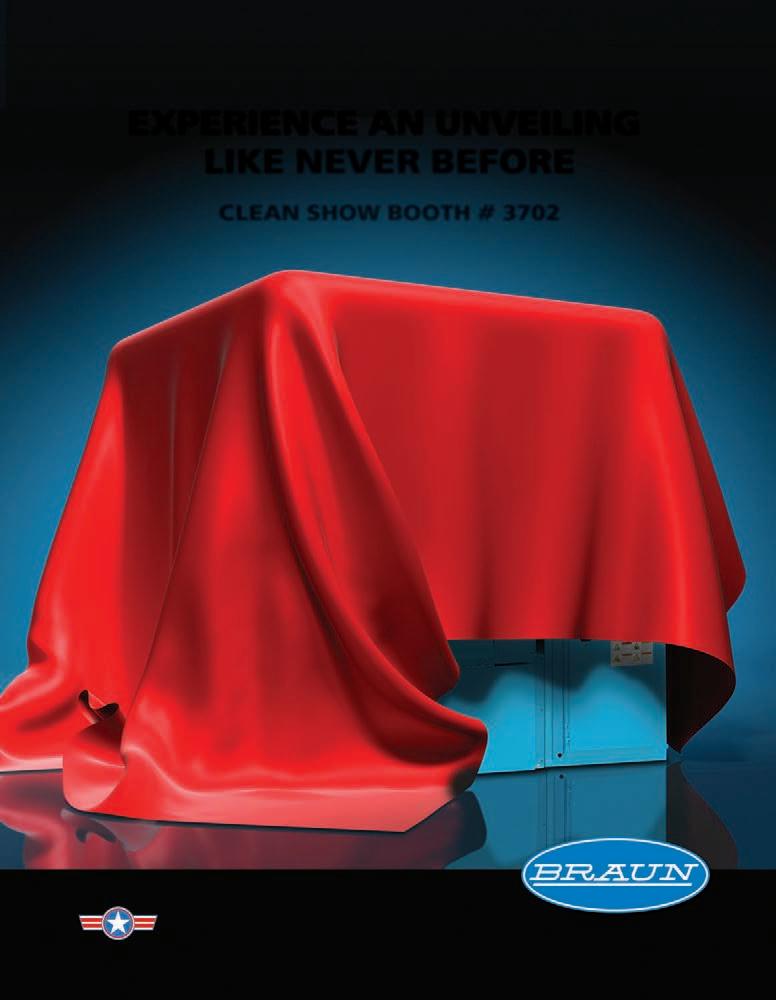
o Association for 2033 Linen Management Richmond, Ky.
SPONSOR: Nonprofit educational association for laundry/linen managers from hospitals, hotels, nursing homes, correctional facilities, government institutions, management companies, and commercial laundries.
o Association of 4834 Wedding Gown Specialists
Orange, Conn.
Nonprofit trade association for members specializing in wedding gown cleaning, preservation and restoration.
o A13 Srl 4471 Milano, Italy
Ironer padding and covers.
o Automation 2455 Dynamics Independence, Mo.
Automated sorting, counting and weighing equipment for various laundry applications.
o AWOIS 2328 Auburn, N.H. Ozone laundry systems.
bibs, underpads, briefs and diapers.
o BeCreative 360 1805 Orange, Calif. Marketing and promotions for dry cleaners.
o Best Textiles 1701 Acquisition LLC Spartanburg, S.C. Wide variety of garments, aprons and table linens for customers that service the hospitality, industrial, and healthcare markets.
o Betson Enterprises 1925 Carlstadt, N.J. Entertainment, vending, and office coffee service (OCS) equipment.
o B&G Lieberman 4470 Co. Inc. Charlotte, N.C. Sewing supplies, replacement buttons, sewing machines, irons and vacuum ironing tables.
o bizzie powered 5007 by 1-800-DryClean Berkeley, Mich.
Dry cleaning franchise offering box delivery service, home/ office pick-up and delivery service, and on-location drapery and light upholstery cleaning.
o Bobco Systems 5063 Inc. Princeton, Minn. Material-handling systems for laundry operations.
o Bonneau Dye 1763 Division of Kingscote Chemicals Miamisburg, Ohio Dyes formulated for coloring

shop towels, dust mops, walk-off mats and hotel/ resort housekeeping towels.
o Borden 1704 Textiles Inc.
Long Island City, N.Y. Hamper/net/laundry bags, disposable cubicle curtains, and healthcare and hospitality pillows.
o Braun 3702 N. Syracuse, N.Y. Batch tunnel washing,
Bo Baltic Linen 3003 Co. Inc.
Lake Success, N.Y.
Imported textiles for textile rental, hospitality, healthcare and retail markets.
o B&C Technologies 2343 Panama City, Fla. Commercial and industrial washer-extractors, dryers, ironers and finishers, and OEM parts.
o Beck’s Classic 2163 Brentwood, N.Y. Reusable incontinence care products, including
conventional washing, material-handling, drying, and finishing equipment.
o Brim Laundry 2021 Machinery Co. Inc. Dallas, Texas
Washer-extractors, large-capacity dryers, shuttle conveyors, and touchscreen control systems; OEM replacement parts and supplies.
o Broadbent Inc. 4914 Fort Worth, Texas
Water recovery/reuse systems, wastewater treatment equipment, and heat reclaimers/exchangers.
o Brooks-Waterburn 2258 Corp. Westbury, N.Y. Insurance services for coin laundries.








Co CACO Mfg. 3057 Houston, Texas
Coin laundry furnishings, including folding tables, seating, clothes-hanging racks, and custom bulkheads.
o Calderon 4924 Textiles LLC Indianapolis, Ind. Commercial linens for the textile rental, hospitality, healthcare, cruise line, and retail industries.
o Caled Chemical 4737 Wayne, N.J. Specialty cleaning products for professional laundries and dry cleaners.
o Card Concepts Inc. 2202 Addison, Ill.
Automated systems for Laundromats to handle cash collections, employee management, equipment service, and store marketing.
o Centurion 2262 Medical Products Williamston, Mich.
Soiled-linen collection system and recycling program.
o Century Place Inc. 1620 Charlotte, N.C. Rental-friendly and direct-sale knit shirts.
o Certified 5005 Restoration Drycleaning Network (CRDN) Berkley, Mich.
International organization of textile restoration specialists serving the insurance industry, contractors/contents
cleaning companies, and property owners.
o Chandler Machine 4865 USA LLC Carlstadt, N.J. Industrial sewing machines for dry cleaners and laundries.
o Chem-Tainer 2053 Ind./Maxi-Movers West Babylon, N.Y. Laundry and linen carts, trucks, tables and hampers, and chemical storage tanks.
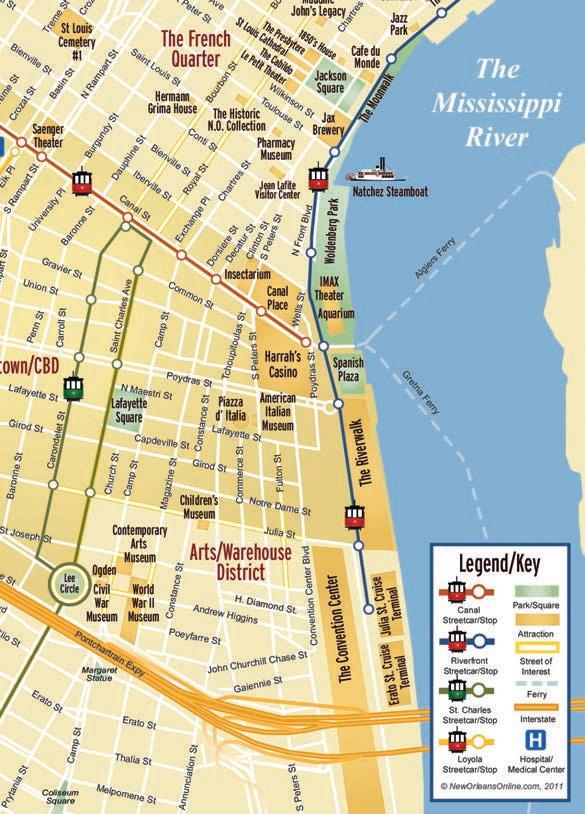
o Chicago Dryer Co. 3743 Chicago, Ill. Flatwork separating, feeding, ironing, folding and sorting equipment.
o Christeyns 3363 Laundry Technology LLC Quincy, Mass. Laundry detergents, sanitizers, dosing systems, and water and energy management equipment.
o Church & Dwight 2233
Co. Inc. Princeton, N.J. Laundry detergents and chemicals.
o Clayton Industries 1657 City of Industry, Calif. Steam boilers, feedwater treatment systems, boiler chemicals, and hydro steam cleaners.
o Clean Cycle 3311 Systems Seguin, Texas Lint filtration systems.
o Cleaner Business 2853 Systems Burnsville, Minn. Point-of-sale software systems for dry cleaners.
o Cleaner’s Supply® 5121 Conklin, N.Y. Wide range of dry cleaning products.
o Cleaver-Brooks 4964 Milwaukee, Wis. Boiler room products
and systems.
o Clenacorp 4503 San Carlos, Calif. Waxes, lubricants, belting, ribbons, guide tapes, pads, covers and aprons for flatwork ironer and folder systems.
o CMV Sharper 3303 Finish Inc. Chicago, Ill. Commercial cylinder ironers and combination ironer/folder/stackers.
o Codet Newport 1622 Corp. Newport, Vt. Workwear apparel for the uniform market.
o Coin Laundry 2043 Association Oakbrook Terrace, Ill. SPONSOR: Not-for-profit trade organization representing member coin laundry owners, manufacturers and distributors.
o Colmac 4430
Industries Inc. Colville, Wash.
Tunnel finishers; shirt and pant presses; hangering systems; and other products related to the commercial laundry, dry cleaning and apparel industries.
o Columbia/ILSA 3431 Machines Corp. West Babylon, N.Y. Dry cleaning machines, metal degreasing machines, and conveyors.
o Commercial 4951 Coils Inc. Chesterfield, Mo. Replacement coils for laundry and dry cleaning equipment.
o Compassmax/ 2555 Maineline Computer Systems
Falmouth, Maine Software and computer systems for dry cleaners.
o Computer 3156 Connections Inc. Cherry Hill, N.J. Point-of-sale/management computer systems.
o Computer 1913 Software Architects Bath, Maine Route accounting software systems for route, healthcare, hospitality, garment, and dust control laundries.
o Computer 3007 Systems
Toronto, Ontario, Canada Software systems for dry cleaning, garment tracking and uniform rental.
o Computype 4406 St. Paul, Minn. Heat-seal labels and related equipment.
o Consolidated 4525 International Corp. National City, Calif. Industrial laundry machines, parts, textiles and supplies.
o Consolidated 2143 Laundry Machinery
Pomona, Calif. Industrial dryers, shuttle conveyors, mat rollers, ironer feeders and towel folders.
o Continental 2523 Girbau Inc. Oshkosh, Wis. Washer-extractors, drying tumblers, flatwork ironing systems, tunnel washing systems and related system machinery.
o Cost-Less Parts! 2530 Auburn, N.H. Replacement parts for commercial laundry and drycleaning equipment, focusing on coin laundries.
o Covers Etc. Inc. 4704 Arlington, Texas
Pads and covers for garment-finishing equipment.
o Cramer Co. 2767 Toronto, Ontario, Canada
Conveyor equipment/ supplies, cart covers, ironer equipment/supplies, laundry holding/hanging, pads, and pressing equipment/supplies.
o Daimler Truck 1963
North America LLC Gaffney, S.C.
Premium stripped-rail chassis for medium-duty pickup and delivery markets.
o Dajisoft Inc. 1954 Kenmore, Wash.
Point-of-sale dry cleaning software systems.
o Dante Bertoni SRL 4367 Cairate, Italy
Material-handling products.
o Danube 4935 International Lamotte Beuvron, France
Flatwork dryer-ironers, barrier washers, front-load washers and tumble dryers.
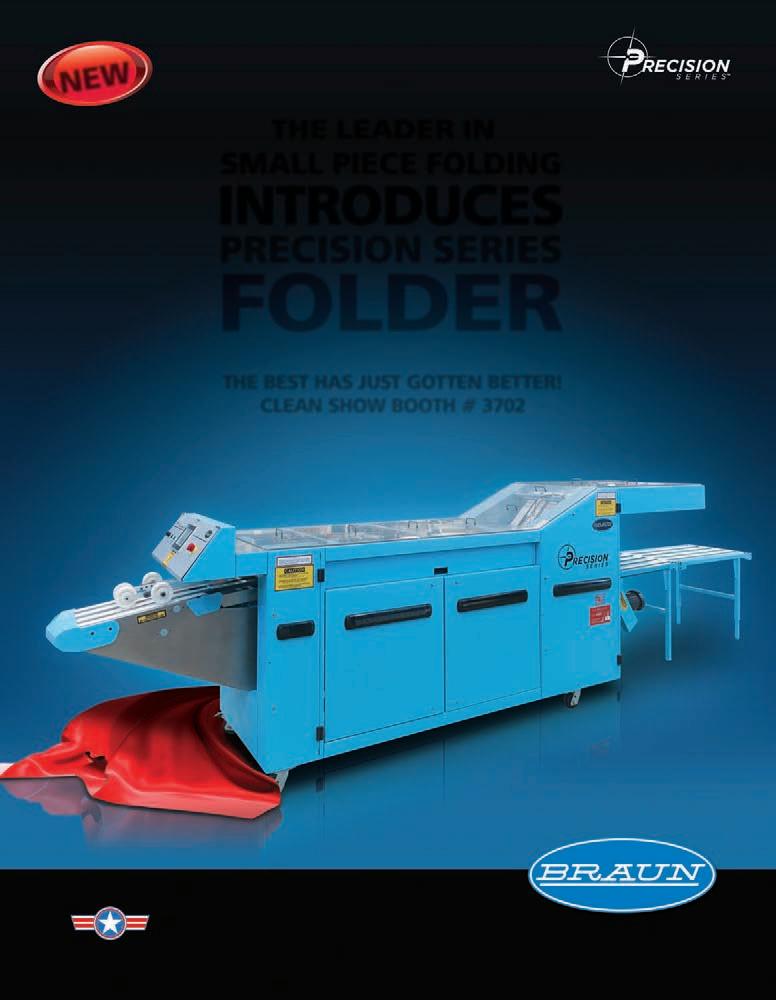
o Darman 1628 Manufacturing Co. Inc. Utica, N.Y.
Cloth-roll towel cabinets, paper dispensers, towelprocessing equipment, and microfiber products.
o Datamars Inc. 1621 Woburn, Mass.
Radio-frequency identification (RFID) products for laundry and textile rental applications.
o Davis Packaging 2858 Wellington, Fla.
Laundry packaging equipment and wrapping film.
o DCCS 2354 (Dry Cleaning Computer Systems) Norristown, Pa.
Point-of-sale software systems for dry cleaners.
o Dexter 2642 Laundry Inc. Fairfield, Iowa
Front-load washers, drying tumblers, card systems, and equipment financing.
o Diamond 3155 Chemical Co. Inc.
East Rutherford, N.J.
Laundry detergents, chemicals, dyes, and chemical injection systems.
o Dow Chemical 4905 Midland, Mich.
Perchloroethylene dry cleaning solvent and specialty chemicals.





o Doxon Mfg. Co. 4505 Plainview, N.Y. Domestic and commercial laundry equipment parts.

o Drycleaning & 1743 Laundry Institute Laurel, Md.
SPONSOR: Trade association representing member dry cleaners, launderers and wet cleaners.
o Duncan 2659
Fabricating Co. Inc. Birmingham, Ala. Bulkheads and commercial appliance outlet centers.
o Dura-Cast 1809 Products Inc. Lake Wales, Fla. Laundry transport equipment, including carts and trucks.
o Dynaric Inc. 4810 Virginia Beach, Va. Non-metallic strapping and strapping equipment.





o EAM-Mosca Corp. 4504
Hazle Township, Pa. Plastic strapping and strapping systems.
o East Coast 2365 Water Systems Charleston, S.C. Water heaters, water treatment systems, and storage tanks.
o Eastern 2248 Funding LLC
ENew York, N.Y. Small-business financing for Laundromats and dry cleaning businesses.
o Ecolab 3421 St. Paul, Minn. Laundry detergents and chemicals, consulting services, dispensing systems, and wastewater treatment.
o Ecotex 3163 San Luis Obispo, Calif. Ozone laundry systems.
o EDRO Corp. 2243
East Berlin, Conn.
Industrial washer-extractors, tumbler dryers, and ozone laundry systems.
o Ellis Corp./ 5043 Vega Systems, USA
I tasca, Ill.
Washer-extractors, tunnel washing system, dryers, ironers, feeders, folders, rail systems, conveyors, system controls, heat exchangers, stack economizers, water heaters and wastewater treatment.
o Encompass 1827 Group LLC McDonough, Ga.
Sheeting, blankets and terry flat goods; incontinence pads and briefs; operating room and surgical linens; and patient and staff apparel, uniforms and lab coats.
o Energenics Corp. 3013 Naples, Fla.
Wet- and dry-type lint filters; automatic laundry cart-washing systems; dryer-exhaust air handling and balancing systems; and vacuum systems for lint collectors.
o Ensign Emblem 1755 Traverse City, Mich.
Emblems, screen-print transfers and direct embroidery for industrial laundries.
o Enviro Tech 4667 International Inc. Melrose Park, Ill.
Dry cleaning solvents, laundry detergents, and spotting kits.
o Ergocon Solutions 1613 Aurora, Ore.
Towel inspection and packaging system.
o ESD 2821 Fort Washington, Pa.
Payment systems for laundry and vending industries.
o E-TECH Inc. 4054 Minneapolis, Minn.
Monorail and belt conveyor systems; material-handling control systems; and cart dumpers.
o European 4543 Finishing Equipment Secaucus, N.J.
Tensioning finishers.
o Exchange Master 2004 Lockers (EML)a division of Lyon Workspace Products Montgomery, Ill.
Storage systems and workspace products, including garment lockers, cabinets and shelving.
o Extra Packaging 4602
Boca Raton, Fla. Laundry bags, including water-soluble bags.
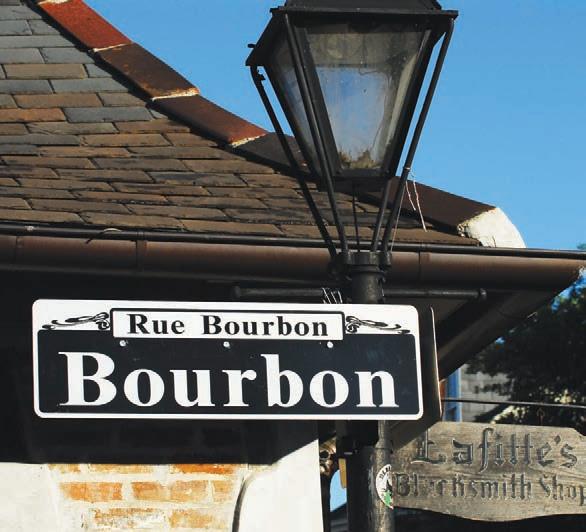
o EzProducts 3009 International Inc. Wauchula, Fla. Systems for garment labeling, heat-sealing, decorating and mending.
Kansas City, Mo. Laundry chemicals, starches, sizings and specialty items.






o Fawn Vendors 4705 Des Moines, Iowa Vending machines.
o Felins USA Inc. 2303 Milwaukee, Wis. Tying, banding and bundling machines and systems.
Dry cleaning garment bags and film.
o First Preference 1852 Products Hudson, N.Y. Commercial laundry products and single-use laundry products.
o Flexco 4815 Downers Grove, Ill. Conveyor belt equipment and supplies.
Elk Grove Village, Ill. Wedding gown and garment preservation systems.
o FRSTeam 4402 Hayward, Calif. License program for restoration of wardrobe and textile items damaged by smoke, fire, water and other insured losses.
o Fulton Boiler 4825 Works Inc. Pulaski, N.Y. Boilers and related equipment/systems.
Go G. Stahl 3566 Waescherimaschinenbau Sindelfingen, Germany Washers, drying tumblers, flatwork ironers, folders, hydro-extractors, and other equipment.
o Genesis 4965 Engineering & Redevelopment, Inc. Ripon, Calif. Environmental and engineering consulting services.
o Golden Star Inc. 2001 Kansas City, Mo. Mops and microfiber cleaning products.
o GreenEarth 4713 Cleaning Kansas City, Mo. Patented liquid silicone-based dry cleaning solvents.
o Fabricare 1953 Management Systems Woodstock, Ga. Point-of-sale computer systems for dry cleaners.
o Fabritec 4921 International Cold Spring, Ky. Dry cleaning, wet cleaning, spotting, restoration and shirt laundry products.
o Fagor Industrial/ 2320 DOMUS Laundry Onati, Guipuzcoa, Spain Washer-extractors, wet cleaning products, hydro-extractors, dryers and flatwork ironers.
o Fanafel 3063 (Metso Group) Ovar, Portugal Textiles for flatwork ironers, feeders and folders, including feed ribbons, padding and belts.
o Faultless 4831 Starch Co.
Fo Felrap World Inc. 4962 Warren, R.I. Laundry wrapping equipment and supplies.
o FH Bonn 2854 Springfield, Ohio Laundry and dry cleaning press pads and covers.
o Fibertech Inc. 5110 Elberfeld, Ind. Laundry trucks and carts.
o Fimas SRL 3463 Baton Rouge, La. Steam cabinets; vacuum, blowing and steam ironing tables; spotting tables; and pressing machines.
o Firbimatic 4555 Woodstock, Ill. Dry cleaning equipment.
o Firestone Financial 1800 Newton, Mass. Equipment financing and leasing.
o First Film 4743 Extruding St. Leonard, Quebec, Canada
o FLM — Fairfield 4904 Laundry Machinery Fairfield, N.J. Monorail systems, soilsort systems, lint collection systems, pneumatic conveying systems, automatic loading hoppers, chutes and folding tables.
o F-MATIC Inc. 5046 Lehi, Utah Odor-control and restroom hygiene products.
o FoldiMate Inc. 5255 San Mateo, Calif. Garment and towel folders.
o Ford Commercial 4843 Truck Dearborn, Mich. Delivery vehicles.
o Forenta L.P. 3755 Morristown, Tenn. Dry cleaning and laundry finishing and pressing equipment.
o Foster-Stephens 4830 Inc.
o Greenwald 4062 Industries Chester, Conn. Coin/card acceptors, metering and security products for self-service laundries.
o G.S. Mfg. 4403 Kingston, Ontario, Canada Material-handling systems including baskets, bins, carts and racks.
o Gurtler Industries 2210 Inc.
South Holland, Ill. Advanced detergents and specialty chemicals for the commercial laundry industry.
Ho Haining Yikang 2232 Textile Co. Ltd. Shaoxing, Zhejiang, China Reusable underpads, adult bibs and other healthcare textiles.
o Halo Innovations 5015 Minnetonka, Minn. Wearable blankets and sleepwear for infants.
o Hamilton 2532 Engineering Inc.
Livonia, Mich.
Commercial and light industrial water-heating systems and boilers.
o Hanger Holder 2962 Scottsdale, Ariz.
Plastic holders to hold and carry hangered items.
o Hans-Joachim 4925 Schneider GmbH Dahlewitz, Germany
Industrial ironing and finishing equipment and supplies.
o Harbor Linen - 1663 A Division of Bed, Bath & Beyond Gibbsboro, N.J.
Institutional linens, case goods and apparel for the hospitality, healthcare, cruise line and foodservice industries.
o Harris Pillow 4744 Supply Inc.

Beaufort, S.C.
Pillows and pillow-cleaning systems.
o Healthcare 2162 Laundry Accreditation Council

Frankfort, Ill.
Non-profit organization formed to inspect and accredit laundries processing healthcare textiles for hospitals, nursing homes and other healthcare facilities.
o High Mark 2430 Manufacturing Inc. Loveland, Colo.
Coin-laundry bulkheads, drain troughs and furniture.
o H-M Company 3106 Cincinnati, Ohio
Drain troughs, lint interceptors and related products.
o HMC 1921 Solutions LLC
North Little Rock, Ark.
Automated order-assembly system and 24/7 kiosk system for garment care.
o Hoffman Mint 1854 Fort Lauderdale, Fla. Laundry tokens.
o Hoffman/ 4632 New Yorker Inc. Hackensack, N.J.
Dry cleaning presses, shirtfinishing equipment, laundry presses, industrial laundry machines and specialty presses.



o Hong Kong 5030 Wells Ltd.
El Monte, Calif.
Wire hangers for dry cleaners and uniform rental services.
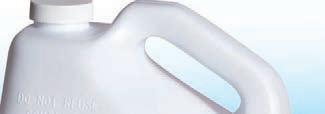

o Hunt Textiles 5050 Irving, Texas
Bar mops, kitchen/terry/ shop towels, napkins,







tablecloths, aprons, wet mops, dust mops, paper products, laundry bags and microfiber products.



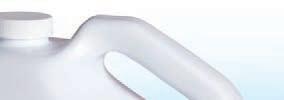

o Hurst Boiler 4805 Coolidge, Ga. Boilers and related systems.
o IDX Inc. 1865 El Dorado, Ark. Electronic controls for payment, display and timing systems.
o IES (Integrated 4071 Environmental Solutions) Winston-Salem, N.C. Cleaning and cooling fans for laundries and dry cleaning plants.
o Imonex 2863 Services Inc. Sealy, Texas Coin acceptors.
o Integrys Energy 2063 Services Inc. DePere, Wis. Energy supply, risk management and energy information management services.
o Irving Weber 5021 Associates (IWA) Ronkonkoma, N.Y. Insurance services for dry cleaners and Laundromats.
o Italclean/ 3563 Maestrelli
San Giorgio Di Plano, Bologna, Italy Perchloroethylene and hydrocarbon dry cleaning machines.
Io I.C.E. Inc. 5261, 1606 Kingston, N.H. Electronic message centers.
9:58
o Imesa SPA 4859 Livingston, N.J. Wet cleaning systems, washers, dryers and ironers.



o IPS Group 2057 San Diego, Calif. Parking meter systems.
o ITD Trailers 5226 Mississauga, Ontario, Canada Custom linen trailers.



InkGo has been reformulated to remove its odor… and to improve its performance. It's still the environmentally friendly,* safe way to remove ink stains from all types of fabric. It’s still great at removing autoclave tape and adhesives. And since it’s odor-free, it’s more pleasant to work with.


Now that's worth noticing!
*InkGo is Biodegradable and is California Prop-65 and California VOC Compliant. To Learn More, Visit ALWilson.com or call 800-526-1188
o Itsumi USA Inc. 3663 Gardena, Calif.
Shirt finishers, laundry presses and rotary dryers.
Jo Jensen USA Inc. 4043 Panama City, Fla.
Washing equipment, finishing systems, material-handling systems, and system software and process technology.

o JiangSu Sea-Lion 1709 Machinery Group Corp.
Zhang Jia Gang, Jiangsu, China
Washer-extractors, dryers, ironers, and dry cleaning, folding and finishing equipment.
o J.P. Equipment Inc. 4163 Indianapolis, Ind.
Used industrial laundry equipment.
Ko Kannegiesser 4021 USA 4420
Grand Prairie, Texas
Continuous-batch washers, extraction presses, materialhandling systems, shuttles, conveyors, dryers, washerextractors, linen separators, feeders, ironers, folders and garment finishers.
o Kemco 4901 Systems Inc. Clearwater, Fla.
Water heaters, heat reclaimers, water recovery/ reuse systems and water treatment systems.
o KeyColour Inc. 2467 Phoenix, Ariz.
Industrial laundry dye products.
o Kleen-Rite Inc. 4666 St. Louis, Mo.
Solvent filtration purification systems for dry cleaning.
o Kleen-Tex 2002 Industries Inc. LaGrange, Ga. Washable track-control mats.
o Kreussler Inc. 2963 Tampa, Fla.
Laundry, dry cleaning and wet cleaning chemicals and detergents.
o K-Tex LLC 1625 Memphis, Tenn. Flame-retardant fabrics and linens.
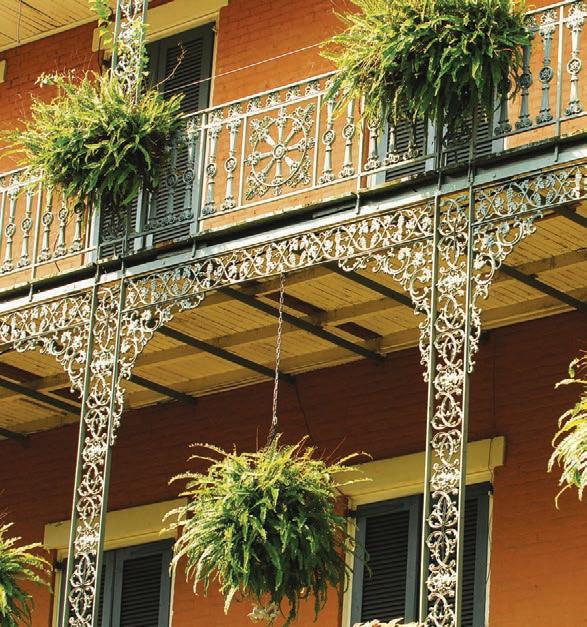
o Lac-Mac Limited 1924 London, Ontario, Canada
Reusable surgical gowns and drapes, and other healthcare apparel.
o LAPCO Safety 5004 Morgan City, La. Flame-resistant clothing.
o Lattner Boiler Co. 1900 Cedar Rapids, Iowa
High- and low-pressure steam and hot-water boilers; gas boilers; electric boilers;
condensate return systems; and blowdown separators.
Lo Laundry Logic LLC 4870 Plymouth Meeting, Pa. Computer software and systems for textile rental.
o Laundry Parts 1759 Market Fall River, Mass. Online source for commercial and residential laundry parts.
o Laundrylux 3103 Inwood, N.Y. Electrolux and Wascomat brand commercial laundry and wet cleaning equipment for the
vended and OPL markets.
o Lavatec Inc. 3255 Naugatuck, Conn.
Continuous-batch washers, washer-extractors, dryers, ironers, folders and materialhandling equipment.
o Lavatec Laundry 3221 Technology Inc. Beacon Falls, Conn.
Continuous-batch washers, washer-extractors, dryers, flatwork feeders, ironers, folders, stackers, materialhandling equipment and mat-processing equipment.
o LCT Laundry 5025 Computer Technics BV Tiel, Netherlands
Conveyor-based systems for distribution, collection and sorting of workwear, scrubs and/or personalized garments.
o Leebaw 4612
Manufacturing Canfield, Ohio
Material-handling carts, garment carts, shelving units, lift tables and laundry/ sling bags.
o Leonard 2909 Automatics Denver, N.C.
Tunnel finishing equipment, pressing equipment, conveyor products and production management systems.
o LG Electronics 3043
Englewood Cliffs, N.J. Washers and dryers for onpremise, coin-operated and multi-housing laundries.
o Lochinvar LLC 4604 Lebanon, Tenn.
High-efficiency boilers, water heaters, and tanks.
o Low Cost 2563 Mfg. Co. Carle Place, N.Y. Washer and dryer parts.
Imagine a washer smart enough to weigh the load size and add precisely the correct amount of water. Imagine a laundry chemical controller smart enough to adjust dosing for accurate water ratio each time.

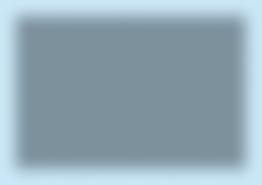

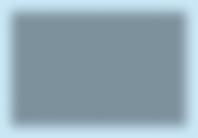
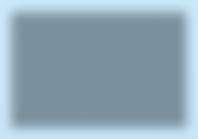

Electrolux Professional washers do all that and more! Introducing AWS & SmartDosing.

Underloading washers is a common problem in many laundries, wasting water, chemicals, and energy. That’s why Electrolux developed AWSTM, a UNIQUE feature that automatically matches water consumption to load size. Combine that with SmartDosingTM which adjusts laundry chemicals to water ratio, and you will see immediate savings and superior wash results – every time, automatically.
Electrolux’s SmartDosingTM controller automatically dispenses the correct amount of chemicals for the weight load.
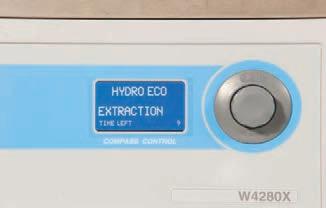




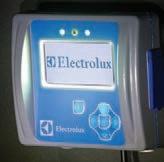
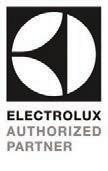
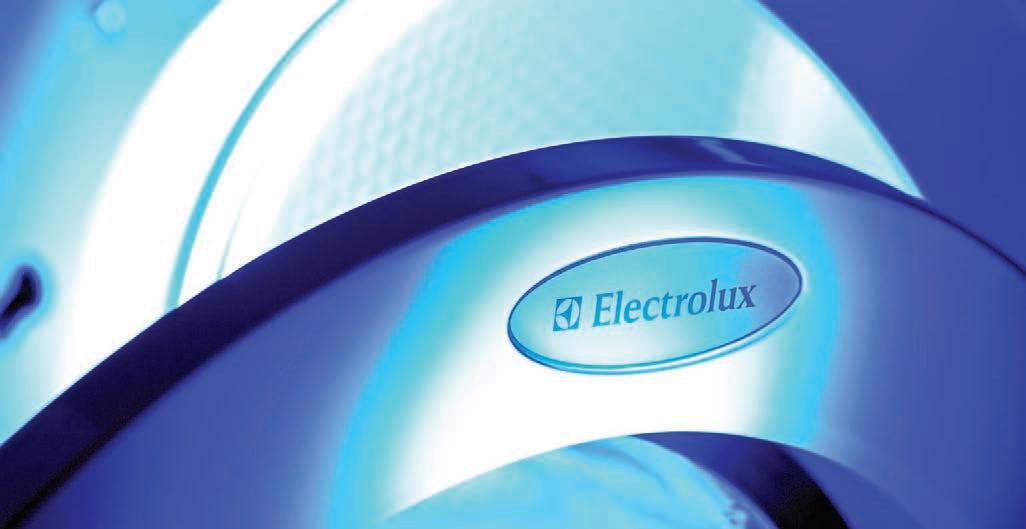
A&B Wiper Supply 5220
ABS Laundry Business Solutions 2155
Adco Products 4856
Air Quality Labs 3154
Air World Inc. 4900
Ajax Boiler Inc. 4466
Albatross USA 4936
Alliance Laundry Systems 3621
Alliant Systems 1962
A.L. Wilson Chemical Co. 3406
A-1 Textiles 5003
Ameresco 4800
American Associated 5120 Companies Inc.
American Changer 1856
American Dawn Inc. 2609
American Dryer Corp. 2831
American Laundry Products 4607
American Laundry Systems 4821
American Reusable Textile 1655 Association
American Textile Systems 5222
American Trade Magazines: 4171
American Laundry News, American Drycleaner and American Coin-Op
AMS Products/Object Design 4742
Angeline Group Ltd. 1825
AquaPhoenix Scientific 2254
AquaRecycle 2953
ArbelSoft Inc. 2603
ARCO/Murray National 2149
Construction Co.
ArtiClean Ozone Laundry 3763 Systems
ASCO Numatics 3108
Asiatic Fiber Corp. 1633
Association for Linen 2033
Management
Association of Wedding 4834 Gown Specialists
A13 Srl 4471
Automation Dynamics 2455
AWOIS 2328
Baltic Linen Co. Inc. 3003
B&C Technologies 2343
Beck’s Classic 2163
BeCreative 360 1805
Best Textiles Acquisition LLC 1701
Betson Enterprises 1925
B&G Lieberman Co. 4470
bizzie powered by 5007
1-800-DryClean
Bobco Systems Inc. 5063
Bonneau Dye Division of 1763
Kingscote Chemicals
Borden Textiles Inc. 1704
Braun 3702
Brim Laundry Machinery Co. Inc. 2021
Broadbent Inc. 4914
Brooks-Waterburn Corp. 2258
CACO Mfg. 3057
Calderon Textiles LLC 4924
Caled Chemical 4737
Card Concepts Inc. 2202
Centurion Medical Products 2262
Century Place Inc. 1620
Certified Restoration Drycleaning 5005
Network (CRDN)
Chandler Machine USA LLC 4865
Chem-Tainer Industries/ 2053
Maxi-Movers
Chicago Dryer Co. 3743
Christeyns Laundry 3363
Technology LLC
Church & Dwight Co. Inc. 2233
Clayton Industries 1657
Clean Cycle Systems 3311
Cleaner Business Systems 2853
Cleaner’s Supply® 5121
Cleaver-Brooks 4964
Clenacorp 4503
CMV Sharper Finish Inc. 3303
Codet Newport Corp. 1622
Coin Laundry Association 2043
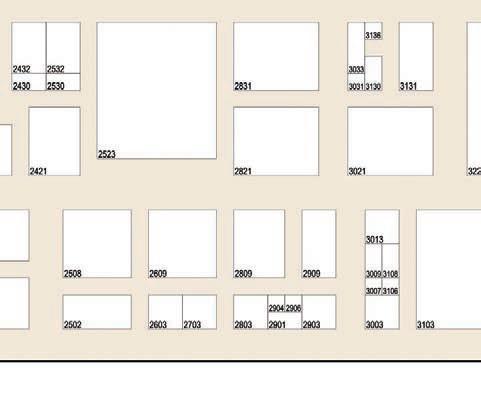
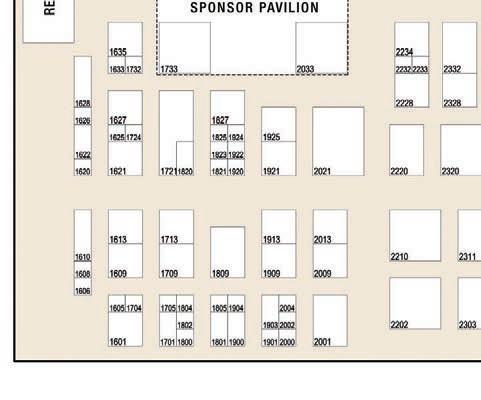
Colmac Industries Inc. 4430
Columbia/ILSA Machines Corp. 3431
Commercial Coils Inc. 4951
Compassmax/Maineline 2555

Computer Systems
Computer Connections Inc. 3156
Computer Software Architects 1913
Computer Systems 3007
Computype 4406
Consolidated International Corp. 4525
Consolidated Laundry Machinery 2143
Continental Girbau Inc. 2523
Cost-Less Parts! 2530
Covers Etc. Inc. 4704
Cramer Co. 2767
Daimler Truck North America LLC 1963
Dajisoft Inc. 1954
Dante Bertoni SRL 4367
Danube International 4935
Darman Manufacturing Co. Inc. 1628
Datamars Inc. 1621
Davis Packaging 2858
DCCS (Dry Cleaning 2354
Computer Systems)
Dexter Laundry Inc. 2642
Diamond Chemical Co. Inc. 3155
Dow Chemical 4905
Doxon Mfg. Co. 4505
Drycleaning & Laundry Institute 1743
Duncan Fabricating Co. Inc. 2659
Dura-Cast Products Inc. 1809
Dynaric Inc. 4810
EAM-Mosca Corp. 4504
East Coast Water Systems 2365
Eastern Funding LLC 2248
Ecolab 3421
Ecotex 3163
EDRO Corp. 2243
Ellis Corp./Vega Systems, USA 5043
Encompass Group LLC 1827
Energenics Corp. 3013 Ensign Emblem 1755
Enviro Tech International Inc. 4667
Ergocon Solutions 1613 ESD 2821
E-TECH Inc. 4054
European Finishing Equipment 4543
Exchange Master Lockers 2004 (EML) - a division of Lyon
Workspace Products
Extra Packaging 4602
EzProducts International Inc. 3009
Fabricare Management Systems 1953
Fabritec International 4921
Fagor Industrial/DOMUS Laundry 2320
Fanafel (Metso Group) 3063
Faultless Starch Co. 4831
Fawn Vendors 4705
Felins USA Inc. 2303
Felrap World Inc. 4962
FH Bonn 2854
Fibertech Inc. 5110
Fimas SRL 3463
Firbimatic 4555
Firestone Financial 1800
First Film Extruding 4743
First Preference Products 1852
Flexco 4815
FLM – Fairfield Laundry Machinery 4904
F-MATIC Inc. 5046
FoldiMate Inc. 5255
Ford Commercial Truck 4843
Forenta L.P. 3755
Foster-Stephens Inc. 4830
FRSTeam 4402
Fulton Boiler Works Inc. 4825
G. Stahl Waescherimaschinenbau 3566
Genesis Engineering 4965
& Redevelopment Inc.
Golden Star Inc. 2001
GreenEarth Cleaning 4713
Greenwald Industries 4062
G.S. Mfg. 4403
Gurtler Industries Inc. 2210
Booth assignments and/or their configuration are subject to change without notice. Map is current as of March 20, 2013
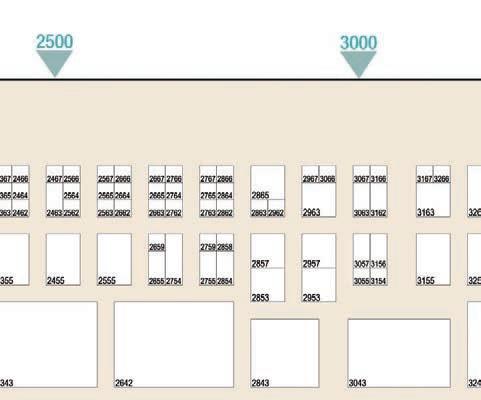

Haining Yikang Textile Co. Ltd. 2232
Halo Innovations 5015
Hamilton Engineering Inc. 2532
Hanger Holder 2962
Hans-Joachim Schneider GmbH 4925
Harbor Linen - A Division of 1663
Bed, Bath & Beyond
Harris Pillow Supply Inc. 4744
Healthcare Laundry 2162
Accreditation Council
High Mark Manufacturing Inc. 2430
H-M Company 3106
HMC Solutions LLC 1921
Hoffman Mint 1854
Hoffman/New Yorker Inc. 4632
Hong Kong Wells Ltd. 5030
Hunt Textiles 5050
Hurst Boiler 4805
I.C.E. Inc. 5261, 1606
IDX Inc. 1865
IES (Integrated 4071
Environmental Solutions)
Imesa SPA 4859
Imonex Services Inc. 2863
Integrys Energy Services Inc. 2063
IPS Group 2057
Irving Weber Associates (IWA) 5021
Italclean/Maestrelli 3563
ITD Trailers 5226
Itsumi USA Inc. 3663
Jensen USA Inc. 4043
JiangSu Sea-Lion Machinery 1709
Group Corp.
J.P. Equipment Inc. 4163
Kannegiesser USA 4021, 4420
Kemco Systems Inc. 4901
KeyColour Inc. 2467
Kleen-Rite Inc. 4666
Kleen-Tex Industries Inc. 2002
Kreussler Inc. 2963
K-Tex LLC 1625
Lac-Mac Limited 1924
LAPCO Safety 5004
Lattner Boiler Co. 1900
Laundry Logic LLC 4870
Laundry Parts Market 1759
Laundrylux 3103
Lavatec Inc. 3255
Lavatec Laundry Technology Inc. 3221
LCT Laundry Computer 5025
Technics BV
Leebaw Manufacturing 4612
Leonard Automatics 2909
LG Electronics 3043
Lochinvar LLC 4604
Low Cost Mfg. Co. 2563
M&B Hangers 4311
Madame Paulette Organization 5023
Marina Textiles Inc. 5111
Maruso USA Inc. 4711
Material Flow Systems 1635
Material Imports 2059
Maxi Companies 4413
MAXI-PRESS 2957
Elastomertechnik GmbH
Mayfield Group Advertising 2759
Bureau
Maytag/Whirlpool Commercial 3405
Laundry
McClure Industries Inc. 1753
Medline Industries Inc. 2865
Memories Gown Preservation 1802
Messe Frankfurt Inc. 4710
Metalprogetti 2843
Mevo Metzler GmbH 5031
Micross Automation Systems 4863
Midwest Specialty Products 1626
Midwestern Industries Inc. 3136
Milliken & Co. 2508
MIP Inc. 2228
Miura North America 2266
Mobile Computing Corp. Inc. 1732
MOD (Meese Orbitron Dunne Co.) 2901
Monarch Coin & Security Inc. 2663
Moonsoft International 4836
Morgan Olson 3131
Mountville Mills Inc. 5035
Multimatic 3263
Naomoto Corp./Apparel 4837
Machinery & Supply Co.
National Cleaners Association 4844
National Combustion Co. Inc. 2755 (NATCO)
Navien America Inc. 5064
Nettuno A.S.G. Inc. 2259
New England Coin Laundry 1601
New Spin Laundry Products 1804 & Services
Newhouse Specialty Co. 4370
Nichols Paper Products Co. 1758
NIE Insurance 4307
Norchem Corp. 2009
Norchem Wastewater Treatment 2013
NuMat Systems LLC 1762
Parker Boiler Co. 4804
Pellerin Milnor 3443
Penco Products Inc. 1957
Penn Emblem 1801
Pepin Mfg. Inc. 5219
Perfect Starch 5062
Performance Matters 2462
Permac Machinery/VEIT 4762
Phoenix Scale Co. 3031
Phoenix Textile Corp. 5011
PhoneTree 4611
Pinnacle Textile 2156
Planiform (1983) Inc. 1713
Plastics Consulting & Mfg. Co. 3055
Plas-Ties Co. 1821
Plexus Industries 1752
PolyFive Plastics 2662
PONY S.p.A. 4662
Positek RFID L.P. 2355
Primus bvba 4955
Process Mechanical Piping 4930 & Erection Inc.
Production Design Products 5210 psb intralogistics GmbH 2220
PSP Industrial Laundry 4867 Equipment
PurClean/PurWater 2263
Qualitex Company 3666
Quicksort 1605
Quietaire Cooling Inc. 3167
R&B Wire Products Inc. 2332
R.D. Bussard & Son Inc. 1863
RealStar USA 4527
Reed Mfg. Co. 1610
ReflectiveStripe.com/ 2256 Block Bindings & Interlinings Rema Dri-Vac Corp. 4613
Rennco LLC 1903
Renzacci SPA 4655
Resource Recovery Co. 4857
Riegel/Mt. Vernon Mills Inc. 2703
Rite-Temp Mfg. Inc. 4167
R.L. Williams Co. 5114
Roadnet Technologies 1754
Rotational Molding Inc. 1904
Route Sales Central & 2463
USA Made Laundry Bags by Spector Textile Products
Rowe International 2255
Royal Basket Trucks 1643
Royal Blue Textiles 1647
R.R. Street & Co. Inc. 4943
Rubbermaid 5163
R.W. Martin & Sons Inc. 3307
Ryco Conveyors Inc. 3162
S M Products 4802
San-Ai Industries Inc. 4910
Sankosha USA Inc. 4343
SanMar 1855
Scan Q 4949
Sealed Air Corp. 1608
SEITZ, The Fresher Co. Inc. 4521
SEKO Dosing Systems Corp. 5122 Service Textiles LLC 5130
Floor plan prepared by: a2z Inc.

Setomatic Systems Inc. 2234
Shanghai Great Union 1705 Textiles Co. Ltd.
Shannon Enterprises 5001 - INSULTECH®

Sierra Hygiene Products 4801
Sigma Garment Films 2764
Sigmatex-Lanier Textiles 2803
Softrol Systems Inc. 2311
Southwest Laundry Equipment 4502
Spartan Chemical Co. 4911
Spindle 2809
SPOT Business Systems 1909
Springpress 2862
SRS Conveyors 2904
Stahls’ Hotronix 2866
Standard Change-Makers Inc. 1609
Standard Textile 3021
Storms Industries 5106
Strapack Inc. 5006
Streamline Solutions 2857
Stry-Lenkoff Co. 2762
Superior Boiler Works Inc. 4746
Superior Uniform Group 4811
Talley Machinery Corp. 2903
TBR Associates 2906
TCF Equipment Finance Inc. 4947
Tecni-Quip 3311
Texas Automation Products Inc. 4063
Textile Care Allied Trades 1942
Association
Textile Rental Services 1733
Association of America
Textile Technologies 1724
The DECC Co. 4745
The Green Garmento 4510, 4411
TheLaundryList.com Inc. 4511
Thermal Engineering 3130 of Arizona Inc.
Thermopatch 4712
Tiger Natural Gas 3166
Time in a Box Preservation Co. 1920
Booth assignments and/or their configuration are subject to change without notice. Map is current as of March 20, 2013
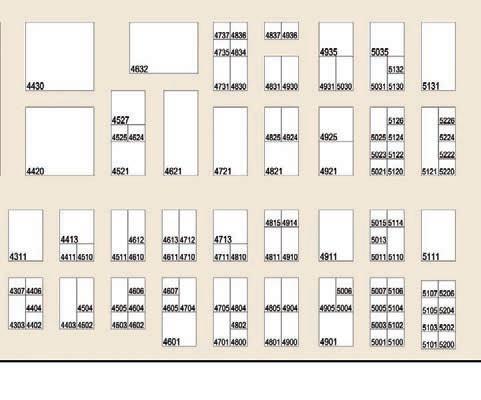
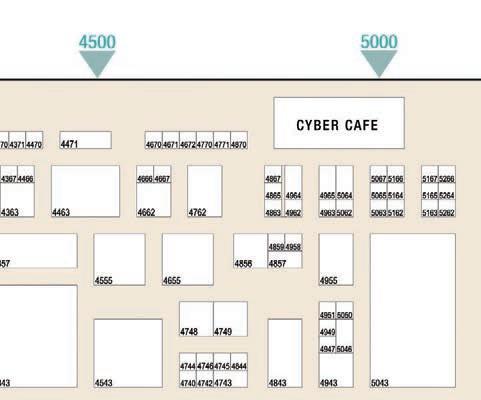
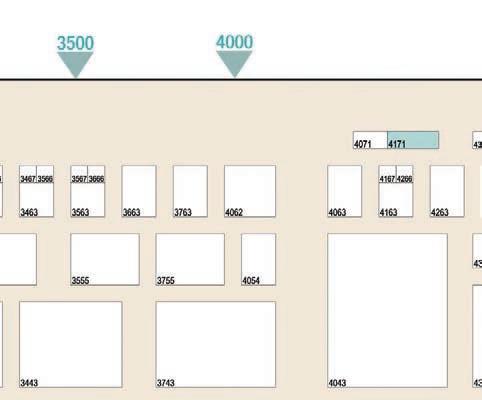
Tingue, Brown & Co. 2903
Tolkar Makina A.S. 4463
Trevil America Inc. 4263
Tristar Packaging Inc. 4605
True Solid 1653
Turn-Key Industrial Engineering 4303 Services
21st Century Dry Cleaners 5126
Union Drycleaning Products 3555
Unipress Corp. 3243
UniSec Div. of New York 4363
Machinery
United Brass Works Inc. 3266
United Textile Distribution Inc. 2000
Unitex International Inc. 4731
U.N.X. Inc. 2502
USA Technologies 2165
Utilimaster 4721
UWH Industries 2363
Vend-Rite Mfg. Co. Inc. 2432
Venus Group 1627
VF Imagewear Inc. 4701
Vintex Inc. 1958
Wasatch Co. 1823
Wash Tech 4931
WashCard Systems 2754
Webb & Son Sewing Machine 2362 Sales Inc.
WeiserMazars LLP 1862
Weishi Machinery/Fuji Star 4357
Western Textile Healthcare Inc. 2562
Wesvic Systems 2655
WET-TECH, The Ozone People 4740
White Conveyors Inc. 4601
Williamson-Dickie Mfg. Co. 1721
Woodbine Products Co. 5067
Workrite Uniform 1820
World Emblem International 3033
WSI 2421
Xeros Ltd. 4748
YAMAMOTO Japan Inc. 4621
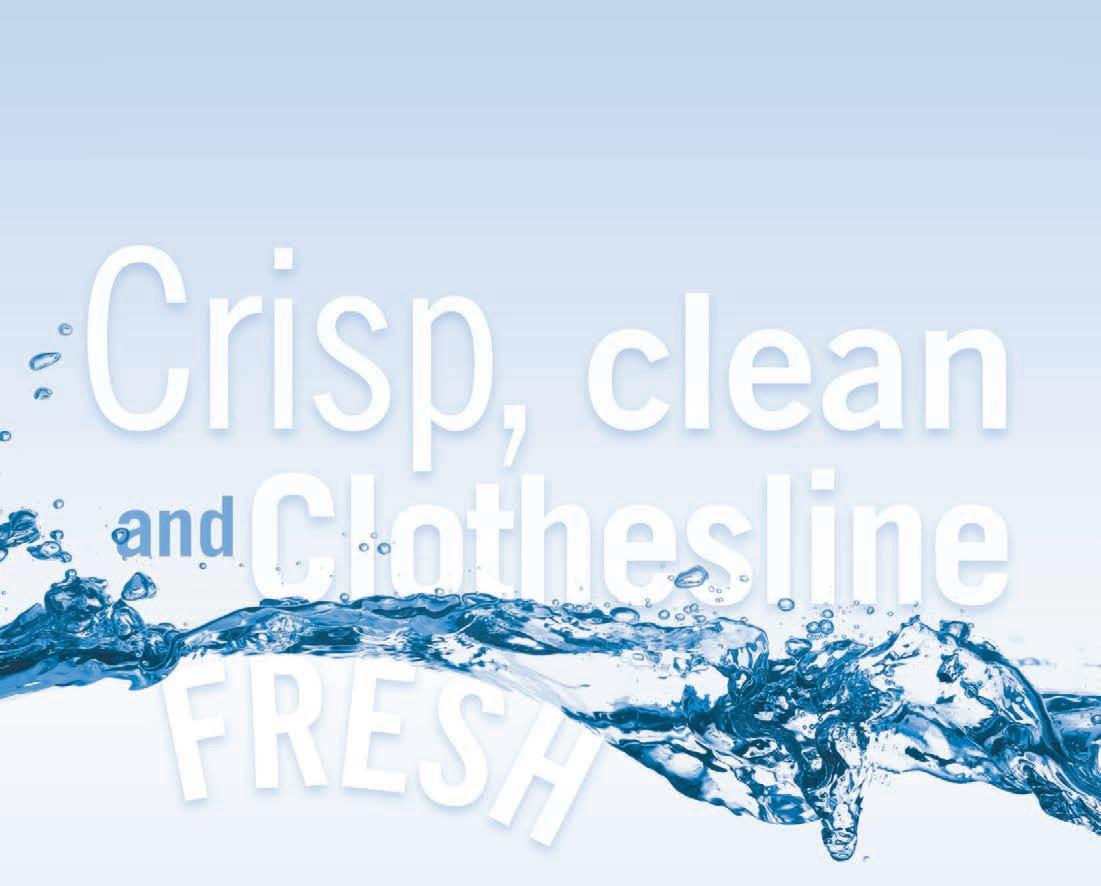



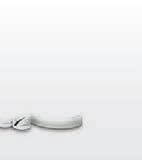
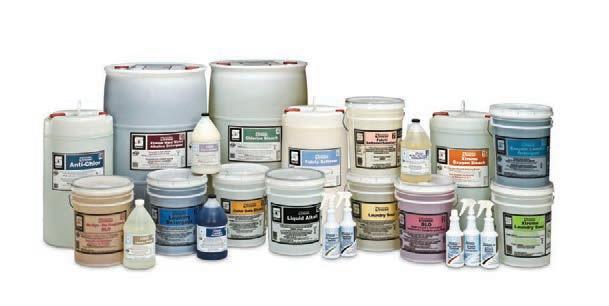
o M&B Hangers 4311 Leeds, Ala.
Wire hangers for dry cleaners and textile rental companies.
o Madame Paulette 5023 Organization Long Island City, N.Y.
Bridal gown cleaning and preservation.
o Marina Textiles 5111 Inc. New York, N.Y.
o Maruso USA Inc. 4711 Compton, Calif.
Plastic hangers, shoulder guards, skirt hangers/clips, and tie holders.
o Material Flow 1635 Systems
Ontario, Calif.
Material-handling systems, including rail systems, conveyors and trolleys.

o Material Imports 2059 Little Ferry, N.J.
Textile products for hospitality, industrial, laundry and institutional customers.

o Maxi Companies 4413 Warwick, R.I.
Export management company specializing in commercial and industrial laundry and dry cleaning equipment.
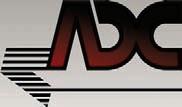
o MAXI-PRESS 2957
Elastomertechnik GmbH Fulda, Germany
Membranes/press cushions for extraction presses.
o Mayfield Group 2759 Advertising Bureau Solon, Ohio
Advertising and marketing services for retail fabricare.
o Maytag/Whirlpool 3405
Commercial Laundry St. Joseph, Mich.
Commercial washers and dryers for coin, multi-housing and on-premise laundries.
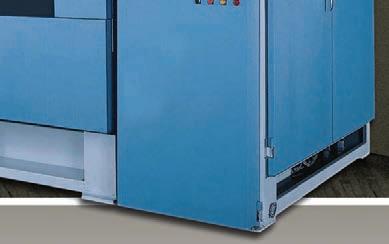
o McClure Industries 1753 Inc.





Portland, Ore.
Laundry, linen and trash carts; motorized tuggers; cart dumpers; and cart washers.

o Medline Industries 2865 Inc.
Mundelein, Ill. Healthcare garments, linens and towels.
o Memories 1802
Gown Preservation Spring, Texas
Wedding dress cleaning and preservation services.
Mo Messe Frankfurt 4710 Inc. Frankfurt, Germany Trade-fair organizer responsible for Texcare exhibitions.
o Metalprogetti 2843 Phoenix, Ariz.
Garment handling and distribution systems.
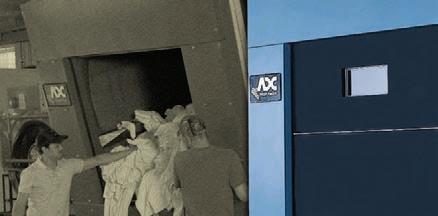
o Mevo Metzler 5031 GmbH
Schwarzenberg, Austria Wire hangers, paper products, and plastic film for launderers and dry cleaners.
o Micross 4863 Automation Systems Ross on Wye, Herefordshire, U.K. Hardware, control systems and counting systems for commercial laundries.
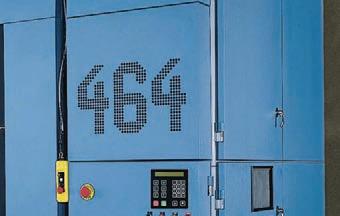
o Midwest Specialty 1626 Products Winneconne, Wis.
Disposable towel and wiper products.
o Midwestern 3136 Industries Inc. Massillon, Ohio Wastewater-screening equipment and replacement screens and parts.
o Milliken & Co. 2508 Spartanburg, S.C. Fabrics for tablecloths, napkins, placemats, aprons and tableskirts.
o MIP Inc. 2228
Montreal, Quebec, Canada Reusable healthcare textiles.
o Miura North 2266 America Dallas, Texas Boilers and related systems.
o Mobile Computing 1732 Corp. Inc. Mississauga, Ontario, Canada Route-delivery software and systems for the linen and textile rental industry.
continued from Page 31
MOD (Meese 2901 Orbitron Dunne Co.) Madison, Ind.
Bulk linen and laundry carts.
Monarch Coin 2663 & Security Inc. Covington, Ky. Coin/token chutes, money boxes, locks and keys for coin laundry machines.
Moonsoft 4836 International Spokane Valley, Wash. Microfiber products, cleaning towels, and mop pads and materials.
Morgan Olson 3131 Sturgis, Mich.
Aluminum walk-in vans for the textile rental industry.
o Mountville 5035 Mills Inc. LaGrange, Ga. Floor mats for uniform and textile rental companies.
o Multimatic 3263 Northvale, N.J. Dry cleaning machinery, specializing in conventional and alternative solvents.
o New Spin Laundry 1804 Products & Services Akron, Ohio
Furnishings for coin laundries, including counters, chairs and folding tables; sign packages; laundry brokerage services.
o Newhouse 4370 Specialty Co. Santa Ana, Calif. Specialty products for the laundry, dry cleaning, hospitality and garment manufacturing industries.
o Nichols Paper 1758 Products Co. Nichols, Wis. Garment covers, dress shields and hanger capes.
o NIE Insurance 4307 St. Louis, Mo. Insurance services for dry cleaners and coin laundries.
o Norchem Corp. 2009 Los Angeles, Calif. Laundry chemicals; chemical dispensing systems; and system controllers and software.
o Norchem 2013 Wastewater Treatment Los Angeles, Calif. Wastewater treatment and water reuse systems.
No NuMat 1762 Systems LLC Roanoke, Ala. Launderable track-control, scraper and anti-fatigue mats.
o Naomoto Corp./ 4837 Apparel Machinery & Supply Co. Philadelphia, Pa.
Irons, self-contained vacuum and up-air tables, boilers, and other specialty pressing and finishing equipment.

o National 4844 Cleaners Association New York, N.Y. Trade association for professional garment/ fabric cleaners and suppliers.
o National 2755 Combustion Co. Inc. (NATCO) Jamaica, N.Y. Water-heating systems.
o Navien America 5064 Inc. Irvine, Calif.
Tankless water heaters and combi boilers.
o Nettuno A.S.G. Inc. 2259 Montreal, Quebec, Canada Foam hanger covers and shoulder guards.
o New England 1601 Coin Laundry Fall River, Mass. Commercial laundry equipment and project services.
Po Parker Boiler Co. 4804 Los Angeles, Calif. Steam boilers and indirectfired water heaters.
o Pellerin Milnor 3443 Kenner, La. Washer-extractors, automated tunnel washing systems, apparel processing machinery, dryers, materialhandling systems, and laundry computer networks.
o Penco Products 1957 Inc. Skippack, Pa. Garment dispensers, personal storage lockers and restroom products.
o Penn Emblem 1801 Philadelphia, Pa. Emblems, and ID labeling and mending equipment.
o Pepin Mfg. Inc. 5219 Lake City, Minn. Lint removers.
o Perfect Starch 5062 Forney, Texas Starch cookers.
o Performance 2462
Matters
Fort Mill, S.C.
Consulting services for textile rental service companies.
o Permac 4762 Machinery/VEIT Indian Trail, N.C. Dry cleaning, tensioning and finishing equipment.
o Phoenix Scale Co. 3031 Glendale, Ariz. Linen-processing and -tracking computer software.
o Phoenix 5011 Textile Corp. O’Fallon, Mo. Textile products and services for nursing homes and hospitals.
o PhoneTree 4611 Winston-Salem, N.C. Automated telephone messaging system.
o Pinnacle Textile 2156 King of Prussia, Pa. Uniforms, aprons, table linens and related products.
o Planiform (1983) 1713 Inc.
Terrebonne, Quebec, Canada
Material-handling equipment, including monorails, conveyors and sorting systems.
o Plastics Consulting 3055 & Mfg. Co. Camden, N.J.



Non-stick coating for dryer baskets and panels.
o Plas-Ties Co. 1821 Tustin, Calif. Twist-tying machinery.
o Plexus Industries 1752 San Diego, Calif.
Laundry bags: PVC-coated mesh, woven polyethylene, and nylon mesh; biohazard bags.
o PolyFive Plastics 2662 Toronto, Ontario, Canada Poly garment bags and film.
o PONY S.p.A. 4662 Inzago, Italy
Garment finishing systems.
o Positek RFID L.P. 2355 Norristown, Pa.
RFID-enabled sorting and tracking software and systems for the textile rental industry.
o Primus bvba 4955 Gullegem, Belgium
Washer-extractors, tumble dryers, flatwork ironers and other equipment.
o Process 4930 Mechanical Piping & Erection Inc.
Peachland, N.C.
Turnkey facility piping services, including rigging, process
piping, equipment and dryer duct work installation.
o Production Design 5210 Products
Ramsey, Minn.
Mat handling, storage and transportation equipment and products.
o psb intralogistics 2220 GmbH Batavia, Ill.
Integrated systems for production and distribution, including conveyors.
o PSP Industrial 4867 Laundry Equipment
Aventura, Fla.
Turnkey solutions for laundry operations.
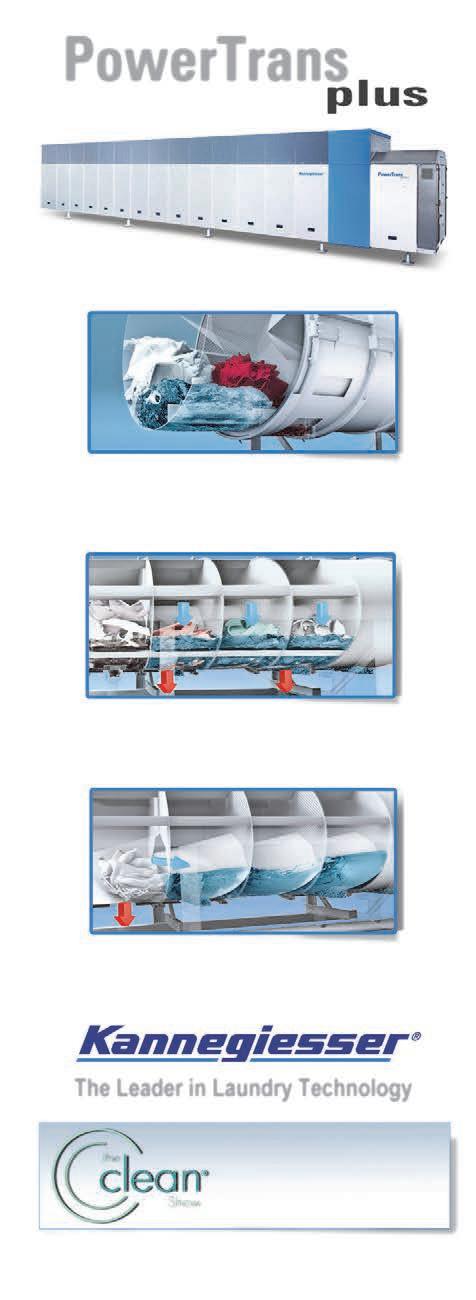
o PurClean/ 2263 PurWater
N. Highlands, Calif.
Water treatment equipment and systems.
Qo Qualitex Company 3666 Chicago, Ill.
Dry cleaning and garment apparel press pads and covers.
o QuickSort 1605 Little Rock, Ark. Automated assembly conveyors.
o Quietaire 3167 Cooling Inc. Houston, Texas Portable evaporative coolers.
Ro R&B Wire 2332 Products Inc. Santa Ana, Calif. Laundry and utility carts and trucks, wire shelving, hampers, garment racks and other material-handling products.
o R.D. Bussard 1863 & Son Inc. Albany, Ore.
Basket liners, cover caps, cart covers and custom fabric products.
o RealStar USA 4527
McDonough, Ga.
Dry cleaning machines using perchloroethylene, hydrocarbon, SolvonK4, GreenEarth and other alternative solvents.
o Reed Mfg. Co. 1610 Tupelo, Miss. Workwear and uniforms.
o ReflectiveStripe. 2256 com/Block Bindings & Interlinings

Fullerton, Calif.
Custom reflective striping
for workwear.
o Rema Dri-Vac 4613 Corp.
Norwalk, Conn.
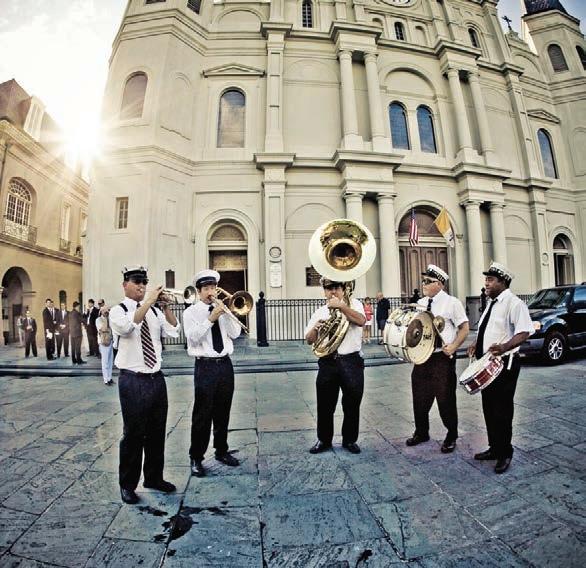
Air vacuum units; boiler feed systems, blow-off separators, boiler feed pumps, storage tanks and condensate systems.



o Rennco LLC 1903 Homer, Mich.
Laundry bagging and packaging equipment.
o Renzacci SPA 4655
Citta di Castello, Perugia, Italy
Dry cleaning machines, washer-extractors, dryers and wet cleaning machines.
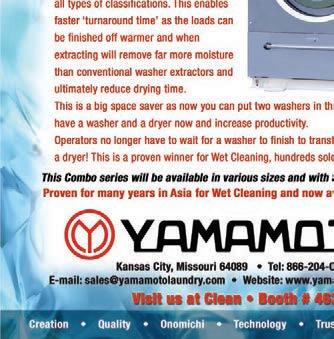

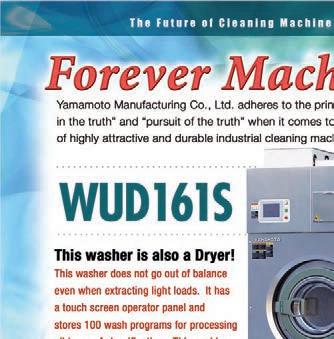
o Resource Recovery 4857 Co. Hickory, N.C.

Water heaters, boiler stack economizers, and wastewater heat recovery systems.


o Riegel/Mount 2703
Vernon Mills Inc. Johnston, S.C.
Table linens, infant bedding
products, hospitality sheeting and towels.
o Rite-Temp 4167 Mfg. Inc. Rogers, Ark. Industrial water chillers.
o R.L. Williams Co. 5114 Conover, N.C.
Restroom products for the uniform, linen rental and dust control industries.
o Roadnet 1754 Technologies Baltimore, Md.
Transportation/routing management solutions.
o Rotational 1904 Molding Inc. Gardena, Calif.
Bulk linen trucks, exchange trucks, poly bushel trucks, extractor trucks and low-boy washroom trucks.
o Route Sales 2463
Central & USA Made Laundry Bags by Spector Textile Products Lawrence, Mass. Laundry bags and related items; laundry slings; cart covers, cubicle curtains; basket liners; and fender and seat/sofa covers.

o Rowe International 2255 Grand Rapids, Mich.
Money-changing equipment.
o Royal Basket 1643 Trucks Darien, Wis.
Basket trucks, carts, hampers, cart covers and laundry bags/stands.
o Royal Blue Textiles 1647 Los Angeles, Calif.
Importer of institutional linens for the textile rental, commercial, healthcare and hospitality laundries.
o R.R. Street 4943 & Co. Inc.
Naperville, Ill.
Dry cleaning process additives, stain-removal agents and filtration products.
o Rubbermaid 5163 Mundelein, Ill.
Restroom hygiene products.
o R.W. Martin 3307 & Sons Inc. Kent, Ohio
Buyers, sellers and remanufacturers of single pieces of laundry equipment, complete processing lines, and entire plants.
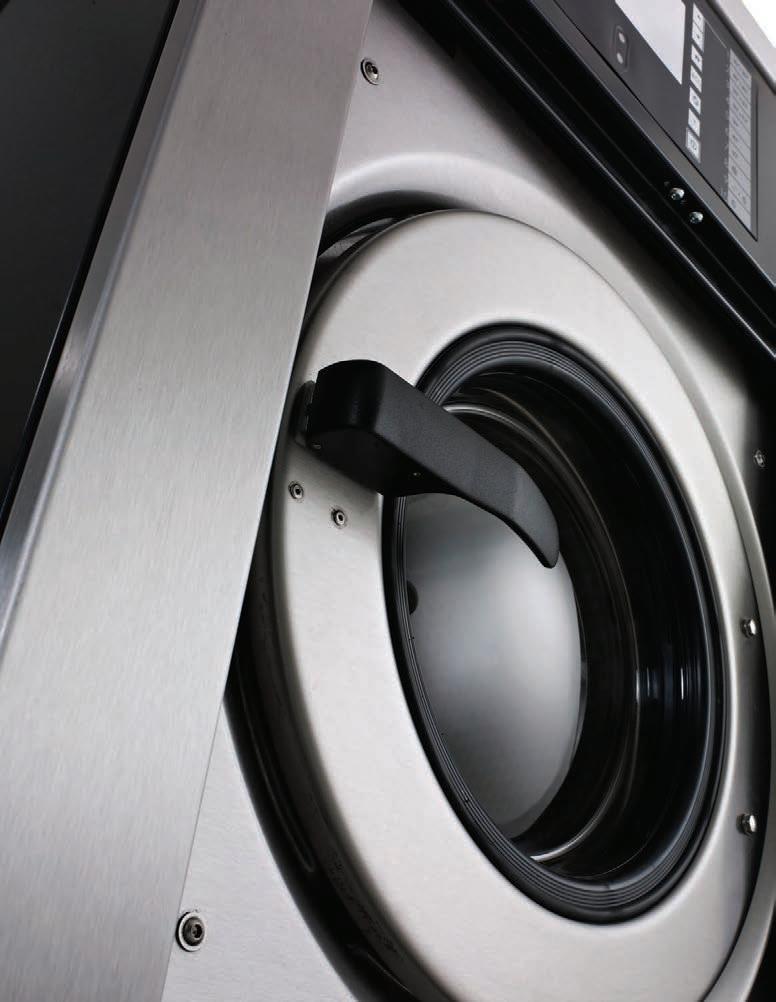
o Ryco Conveyors 3162 Inc.
New Prague, Minn.
Design, sales and installation of materialhandling systems.


cleaners and laundries; powder and liquid detergents; and cleaning products.
o SEKO Dosing 5122 Systems Corp.
Tullytown, Pa. Chemical dosing equipment.
o Service Textiles 5130 LLC
Cary, Ill.
Wholesale textiles for distributors, healthcare laundries, hospitals and nursing homes.
o Setomatic 2234 Systems Inc. Farmingdale, N.Y. Electronic card technology and coin meters.
o Shanghai Great 1705 Union Textiles Co. Ltd. Shanghai, China Hospitality and healthcare textiles.
o Shannon 5001 EnterprisesINSULTECH® North Tonawanda, N.Y. Custom-fit, removable, reusable

blanket insulation for machinery and process piping.
o Sierra Hygiene 4801 Products
Livermore, Calif. Turnkey restroom service programs.
o Sigma Garment 2764 Films
Rancho Dominguez, Calif. Garment film and flexible packaging.
o Sigmatex-Lanier 2803 Textiles

New York, N.Y. Wide range of textile products for the linen supply, healthcare and hospitality industries.
o Softrol Systems 2311 Inc.
Acworth, Ga. System controls and management information solutions for the automation of industrial uniform and textile laundry facilities.
So S M Products 4802 Houston, Texas
o San-Ai 4910 Industries Inc.
Koshigaya, Saitama, Japan Laundry/dry cleaning supplies and equipment.
o Sankosha USA 4343 Inc.
Elk Grove Village, Ill.
Garment-pressing equipment.
o SanMar 1855 Issaquah, Wash.
Industrial workwear and wholesale imprintable apparel.
o Scan Q 4949 Alpharetta, Ga.
Customized computer kiosks and point-of-sale systems for dry cleaners.
o Sealed Air Corp. 1608 Duncan, S.C.
Packaging equipment and supplies, including poly bags, films, wrapping machinery and related items.
o SEITZ, The 4521 Fresher Co. Inc. Tampa, Fla.
Chemical additives for dry
o Southwest 4502 Laundry Equipment Phoenix, Ariz.
o Spartan 4911 Chemical Co. Maumee, Ohio Laundry detergents and chemicals.
o Spindle 2809 Woodridge, Ill. Software solutions for tracking laundry productivity and utility usage.
o SPOT Business 1909 Systems Draper, Utah Computer software and systems for dry cleaning operations management.
o Springpress 2862 Gent, Belgium Spring padding, waxes and cleaners for ironers.
o SRS Conveyors 2904 Markham, Ontario, Canada Material-handling equipment for the uniform and




laundry industry.
o Stahls’ Hotronix 2866 Carmichaels, Pa. Garment marking and tagless label systems utilizing heat presses.
o Standard 1609 Change-Makers Inc. Indianapolis, Ind. Currency change machines.

o Standard Textile 3021 Cincinnati, Ohio Healthcare, hospitality and institutional textiles and apparel, and linen management services.
o Storms Industries 5106 Chicago, Ill. Flatwork ironer textiles and supplies, cleaners and belting; sling bags; cart covers; filtration and dust control products.
o Strapack Inc. 5006 Hayward, Calif. Plastic-strapping machines.
o Streamline 2857 Solutions Orlando, Fla. Soiled-linen bags, cart covers, cart liners, hamper stands, laundry wrap, and other types of bags.
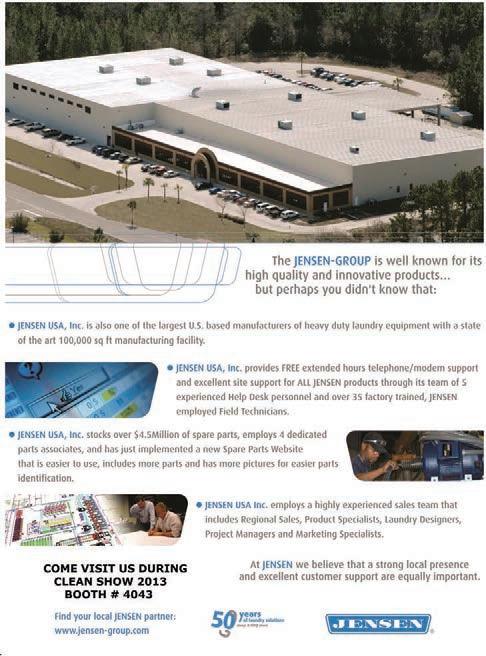
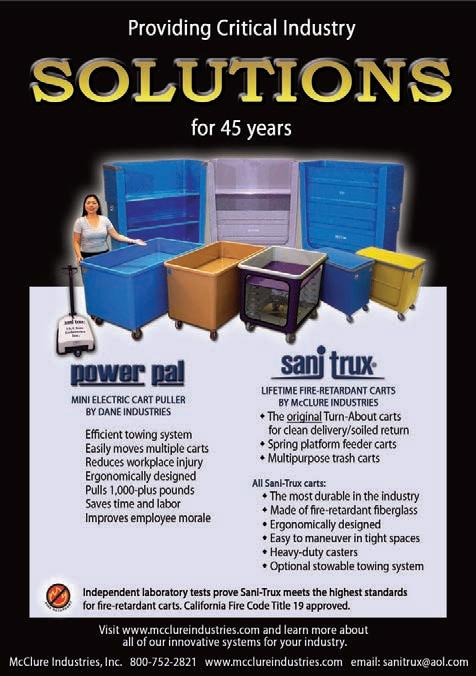
o Stry-Lenkoff Co. 2762 Louisville, Ky.
Stock tags, labels and business forms for the laundry/dry cleaning industry.
o Superior Boiler 4746 Works Inc.
Hutchinson, Kan. Boilers and associated equipment for process steam, hot water and waste recovery.
o Superior Uniform 4811 Group Seminole, Fla. Uniforms and image apparel.
To Talley Machinery 2903 Corp.
Greensboro, N.C.
Parts, equipment and rebuild services for commercial laundries.
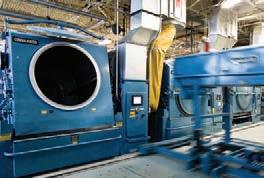
o TBR Associates 2906 Saddle Brook, N.J.
Business consulting firm focused on commercial laundry and manufacturing industries.


o TCF Equipment 4947 Finance Inc. New York, N.Y. Dry cleaning equipment financing/leasing.
o Tecni-Quip 3311 Seguin, Texas Linen, laundry and housekeeping carts.
o Texas Automation 4063 Products Inc. Mesquite, Texas Heat-sealing machines and accessories.
o Textile Care Allied 1942 Trades Association Fairfield, N.J.
SPONSOR: Trade association representing manufacturers and distributors of laundry and dry cleaning equipment and supplies.
o Textile Rental 1733 Services Association of America
Alexandria, Va.
SPONSOR: Trade association representing the textile services industry.
o Textile 1724 Technologies
Arlington, Texas
Computer software systems for the textile rental industry.
o The DECC Co. 4745 Grand Rapids, Mich.
Abrasion-resistant release coating for dryer panels.
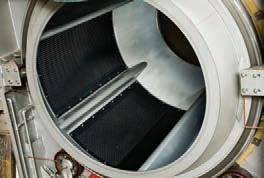
o The Green 4510, 4411 Garmento North Hollywood, Calif. Reusable garment bags.
o TheLaundryList 4511 .com Inc.
Sherman Oaks, Calif. New and used laundry equipment, machines and parts.
o Thermal 3130 Engineering of Arizona Inc. Tucson, Ariz.
Wastewater heat reclaimers, heat-recovery systems, shaker screens, water heaters, storage tanks, pumping systems, and ceramic filtration systems.
o Thermopatch 4712 Syracuse, N.Y. Textile and garment identification products and systems.
o Tiger Natural Gas 3166 Boulder, Colo. Natural gas supplier; energy conservation services.
o Time in a Box 1920 Preservation Co. Federal Way, Wash. Bridal, military and christening gown preservation kits.
o Tingue, Brown 2903 & Co.
Peachtree City, Ga. Finishing equipment products and dedicated services for commercial laundries.
o Tolkar Makina A.S. 4463 Cigli, Izmir, Turkey Industrial washer-extractors, dryers and folders.
o Trevil America Inc. 4263 Mamaroneck, N.Y. Tensioning equipment, wet cleaning systems,
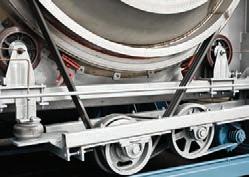
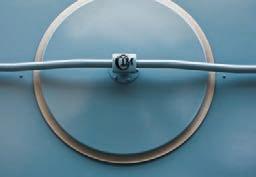
shirt-finishing equipment and laundry washers, dryers and flatwork ironers.
o Tristar Packaging 4605 Inc. Humble, Texas Poly film and garment bags.
o True Solid 1653 DeKalb, Ill.
o Turn-Key Industrial 4303 Engineering Services Charlottesville, Va.
Facility planning/design, project management, process improvement and building construction services for resort, medical, hospitality and industrial laundry providers.
o 21st Century 5126 Dry Cleaners Riverside, Mo.
o United Brass 3266 Works Inc. Randleman, N.C. Pressing machine replacement parts, and steam valves, traps and regulator.
o United Textile 2000 Distribution Inc. Garner, N.C. Dust control products, table linen, bed linen, towels, hangers, aprons and other products.
o Unitex 4731 International Inc. Suwanee, Ga.
o Union Drycleaning 3555 Products


McDonough, Ga.

Dry cleaning equipment for use with perchloroethylene, hydrocarbon and alternative solvents.
o Unipress Corp. 3243 Tampa, Fla.
Shirt-pressing and finishing equipment.
o UniSec Div. of 4363 New York Machinery Irvington, N.J. Dry cleaning machines.
Microfiber products, towels, table linen, napery, fender/seat covers, sheets, patient wear and other textile products.

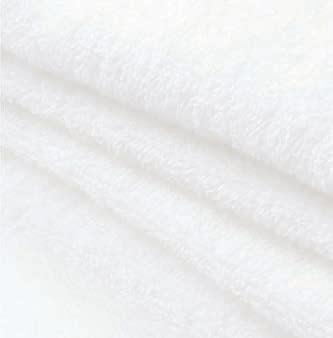



o U.N.X. Inc. 2502 Greenville, N.C.
Commercial laundry chemical products and dispensing systems for domestic and international markets.
o USA Technologies 2165 Malvern, Pa.
Cashless payment systems, online laundry monitoring system, self-serve business centers, and energy conversation system for vending machines.
o Utilimaster 4721 Wakarusa, Ind.
Walk-in vans, parcel delivery vans and truck bodies.
o UWH Industries 2363 Hasbrouck Heights, N.J. Wire and plastic hangers and related paper products.


o Vend-Rite 2432 Mfg. Co. Inc. Cicero, Ill.
Soap venders, bag venders, snack/drink venders, coin laundry signs, plastic laundry bags and drop-off bags.
o Venus Group 1627
Foothill Ranch, Calif.
Tablecloths, napkins, aprons, sheets, towels, hospital linens and chef apparel.
o VF Imagewear Inc. 4701 Nashville, Tenn.
Industrial workwear, hospitality garments, corporate apparel and protective apparel.
o Vintex Inc. 1958 Mount Forest, Ontario, Canada Launderable barrier fabrics.
St. Louis, Mo. Reusable incontinent care products.
o Wesvic Systems 2655
Turlock, Calif. Automated system for tracking productivity of dry cleaning and laundry equipment operators.
Vo WET-TECH, 4740
The Ozone People Worcester, Mass. Ozone equipment.
o White Conveyors 4601
Inc. Kenilworth, N.J. Automated garmentsorting, storage and retrieval systems.
o Williamson-Dickie 1721 Mfg. Co.
Fort Worth, Texas
Men’s and women’s workwear, including coveralls, jumpsuits, uniforms, aprons and blazers.
o Woodbine 5067 Products Co. Medina, Ohio Hand-care products.
o Workrite Uniform 1820 Oxnard, Calif. Flame-resistant work apparel.
o World Emblem 3033 International Miami, Fla. Emblems.
o WSI 2421 Cincinnati, Ohio Chemicals and detergents, including bacteriostats, hand soaps, odor neutralizers and sizing; wastewater treatment.
o Xeros Ltd. 4748
XRotherham, United Kingdom Commercial laundry system that utilizes polymer beads.
Yo YAMAMOTO 4621 Japan Inc. Smithville, Mo. Washer-extractors, ironers and folders/stackers.
Wo Wasatch Co. 1823
Lynwood, Calif.
Towels, sheets, table linen, aprons, chef apparel, patient wear, bath blankets and other textile products.
o Wash Tech 4931 Hildebran, N.C.


Heavy-duty washers and dryers for industrial laundries and dry cleaners.
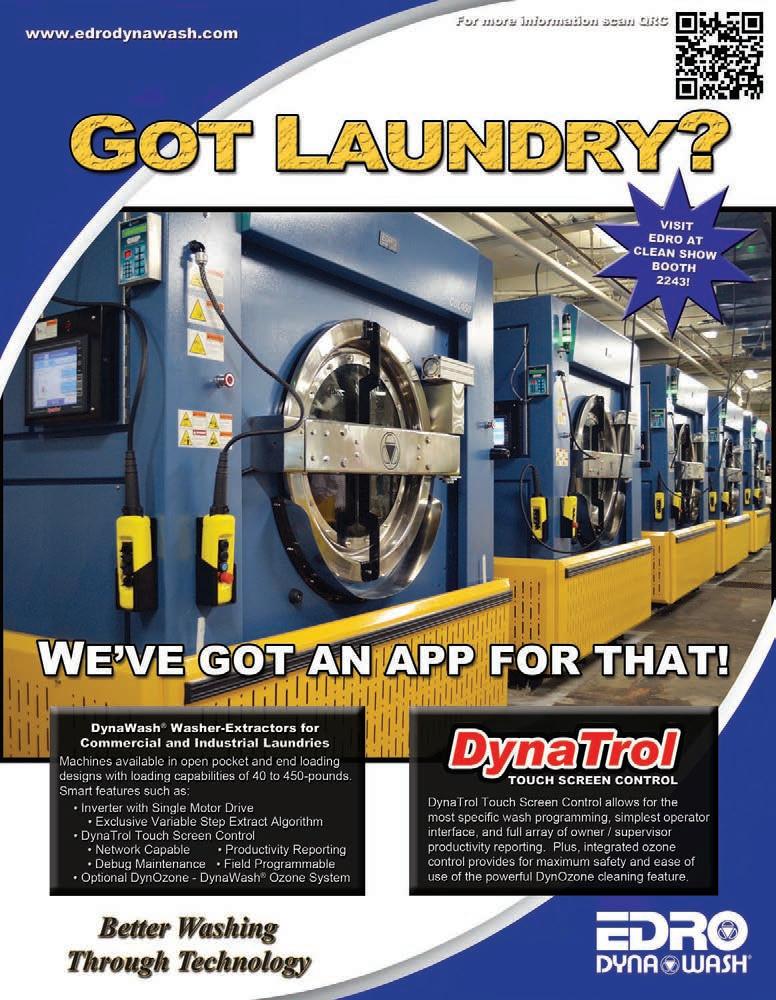
o WashCard 2754 Systems
Lino Lakes, Minn.
Cashless payment systems for coin laundries.
o Webb & Son 2362 Sewing Machine Sales Inc.
Engelwood, Ohio Industrial sewing equipment and part.
o WeiserMazars LLP 1862 Edison, N.J.
Accounting and consulting services for textile rental companies.
o Weishi Machinery/ 4357 Fuji Star Sylmar, Calif.
Dryers, washer-extractors, steam equipment, dry cleaning equipment and pressing equipment and supplies.
o Western Textile 2562 Healthcare Inc.

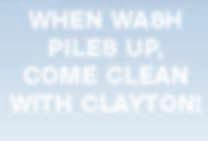
NEW ORLEANS — Every morning during Clean ’13, plus for a couple of hours each afternoon, attendees will have the opportunity to sit in on educational sessions aimed at saving them money, boosting their productivity or generally improving their operations or businesses.
Access to all seminars at the Ernest N. Morial Convention Center is included in the show registration fee and isn’t depen-
dent on association membership.
Thursday, June 20
• 8-8:30 a.m. — Meritorious Service Awards, sponsored by the Drycleaning & Laundry Institute.
• 8-9 a.m. — Coin Laundry Trends for 2013, sponsored by the Coin Laundry Association (CLA).
Learn where the coin laundry industry is going and how that may affect your business so that you can plan for profits.
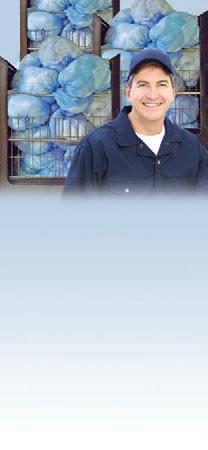
• 8-9 a.m. — Regulatory and Legislative Update, sponsored by the Textile Rental Services Association of America (TRSA).
Expect continued emphasis on rule making, regulatory initiatives and enforcement over compliance assistance from the EPA, OSHA, the Department of Labor and other regulators.
Gain a competitive insight into regulatory initiatives directly impacting your business and TRSA’s efforts to expand and protect the market by advocating for fair, balanced regulation and pro-business policies.
• 8-9:30 a.m. — Reducing the Loss of Patient Linen and Scrubs, sponsored by the Association for Linen Management (ALM).
Linen inventories are constantly shrinking and not just because of ragout. This loss drives up expenses and puts a strain on maintaining par levels. Get a handle on preventable linen loss and put strategies in place to keep the losses at bay.
• 8-10 a.m. — Efficient Laundry Processing Techniques in the European Market, sponsored by the European Textile Service Association (ETSA).
Speakers from European supplier firms Lapauw, Ecolab, Christeyns, Kannegiesser and the JensenGroup will discuss efficiency and sustainability in the laundry process, the next generation of ironers, the concept and results of the steamless laundry, efficient garment processing, and the benefits of low-temperature washing.
• 8:45-10 a.m. — How to
Build a Great Yelp Presence, sponsored by DLI.


How do you ensure your online reputation is strong? No business is perfect—how will you respond when you receive your first negative review? You will hear everything you need to know, from unlocking your Yelp business tools to managing your online reputation.
• 9-10 a.m. — Internet Marketing Success Stories of Coin Laundries, sponsored by CLA.
What works in the coin laundry industry when it comes to Internet marketing and social media? Examine some case studies and see examples with results, return on investment, and what it took to carry it all out.
• 9-10 a.m. — Textile Services Contracts and Negotiations, sponsored by TRSA.
Review key contracting components that protect your business, including the latest contracting language, “boilerplate” provisions and cases critical to your business objectives and allocation of risk. Examine important aspects of the contracting process from negotiation through execution and receive practical tips on specific clauses, best practices and practical preparation to develop sound contracts.
• 2:30-3:30 p.m. — Implementing Best Practices, sponsored by ALM.
Providing quality services and quality processed textiles is the key reason to employ best practices at your facility. But many laundry managers overlook the intangible value, the marketing mileage that it brings. If your facility implements recommendations that are beyond requirements, this session will illustrate how to use this to remind current clients why you’re great and to aid in attracting new business.
• 3:30-4:30 p.m. — Social Media: Which Tools Laundries Should Embrace, sponsored by CLA.
Where should laundry owners focus their time and energy when it comes to social media? Learn the must-dos and best practices of social media for laundries.
Friday, June 21
• 8-9 a.m. — Best Practices for Wash, Dry, Fold and Commercial Accounts, sponsored by CLA.

Learn the best practices of marketing, sales, operations and production to follow when processing commercial accounts or wash, dry, fold orders.
• 8-9 a.m. — International Textile Services Market Panel (ETSA, TSA-UK and Intex), sponsored by TRSA.
Gain insight from organizations representing the largest global textile services operators and associates regarding market sector growth and emerging regulatory and legal issues. Also, learn about new concepts, best practices and innovative management strategies from global colleagues to increase productivity, streamline operations and maximize profitability.
• 8-10 a.m. — Alternative Solvents: Which is Best for You?, sponsored by DLI.
Panelists will discuss the benefits and drawbacks of the various solvent choices available to the dry cleaning industry, and attendees will have ample time to get the answers they need to make an informed buying decision.
• 8-10 a.m. — Demystifying Healthcare Terminology, sponsored by the Canadian Cleaners and Launderers Allied Trade Association (CLATA).
Ecolab’s Textile Care and Healthcare divisions will review current industry trends, emerging topics, and terminology as it relates to textiles. The material will cover such topics as bacteriostats, mildewstats, and sanitizing and disinfection claims as they relate to textiles. Further review of linen handling procedures and the impact on patient exposure to pathogens will be covered.
• 8-10 a.m. — Standards and Regulations Affecting the Healthcare Laundry and Linen Industry, sponsored by ALM.
Many different bodies are involved in establishing standards and guidelines that affect the linen and laundry industry. This ses-
sion will help attendees understand the various roles of four important entities—CMS, Joint Commission, CDC and OSHA— and how their direction and guidance is interpreted and applied to the industry, and how healthcare facilities determine which recommendations they will adopt.
• 9-9:30 a.m. — Today’s and Tomorrow’s Consumer Needs in Emerging International Markets (CINET), sponsored by TRSA.
Receive valuable information pertaining to textile services opportunities in emerging markets based on the results of extensive global research, including expanding economics, purchasing power and demographics. While opportunities exist, there are real challenges, and business leaders must understand market and customer demands, as well as the work force, financing, distribution and more.
• 9-10 a.m. — Advanced Laundry Lease Analysis, sponsored by CLA.
Examine the fine print of a lease and learn how to secure one that works in the best interests of your laundry.
• 9-10 a.m. — Winning Strategies to Control Linen Loss and Abuse, sponsored by the American Reusable Textile Association (ARTA).
A panel of experts will present their proven strategies for reducing and controlling linen losses and abuse. This is especially important as many organizations and/or their laundry providers can attribute as much as 30% of linen costs to losses. There will be specific focus on how to prevent healthcare linen from going into “red bag” waste containers.
• 9:30-10 a.m. — Future International Textile Services Market Demand: Business Opportunities, sponsored by TRSA.
Establish a plan of action that addresses key issues and identify growth opportunities based on the
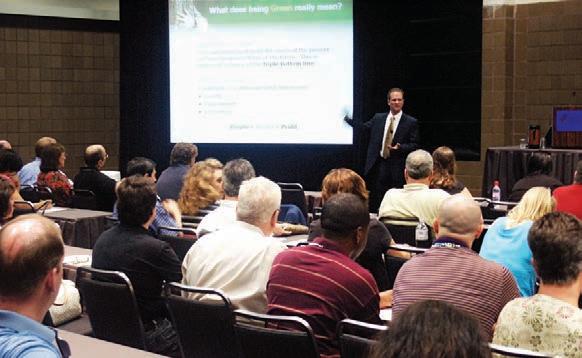
results of global market studies and service profiles that provide insight into developing partners, supply chains and customers to establish long-term business growth. Discuss trends and market development, competition, logistics, financial investment, efficiency, and scalability.
• 2:30-3:30 p.m. — Quick Fixes to Common Problems, sponsored by DLI.

This session provides practical, easy to implement solutions to problems that plague all dry cleaners, from front counter to back of the machine and everything in between.
• 3:30-4:30 p.m. — TRSA Clean Green and Hygienically Clean Certification Programs: Quantifying Your Commitment to Cleanliness and Sustainability, sponsored by TRSA.


Independent, quantitative, third-party certifications build customer confidence and offer a competitive advantage. More than 50 companies have earned TRSA’s Clean Green and Hygienically Clean designations. Learn how your company can meet these rigorous standards and quantifiable measurements including inspections and testing.








• 8-9 a.m. — Disposables vs. Reusables: Research that Quantifies the Sustainability Advantage of Napkins, Shop Towels and Barrier Gowns, sponsored by TRSA.
Obtain life-cycle assessment (LCA) figures, including a free report, that quantify that reusable textiles are more sustainable than alternatives. Participate in an interactive discussion with researchers and industry leaders regarding the results of the LCA and impact on marketing of environmental and cost advantages of reusable textiles over disposable products.
• 8-9 a.m. — Goin’ Green, sponsored by DLI.


Find out what goin’ green means and how some cleaners using “green” to bring in more customers and save money with energy-saving technologies.
• 8-9:30 a.m. — ALM Fireside Chat, sponsored by ALM.
Join in this industry discussion among allied trade partners. You’ll be enlightened to hear this group of professionals discuss current issues and exciting innovations that may be on deck for our industry. Each panelist will offer a diverse look at how all of this will impact you and your operations. Audience involvement will be encouraged. Attendees are sure to leave energized and enthused about the multitude of opportunities that await them.
• 8-10 a.m. — The ABC’s for Potential Laundry Owners, sponsored by CLA.
What does it mean to invest in the laundry industry? Attendees will be treated to an in-depth look at the industry, including key numbers, reports, lease informa-
tion and the due diligence that a prospective owner would use when determining if getting into the industry is right for them.
• 8-10 a.m. — The Future’s So Bright, I Gotta Wear Shades!, sponsored by CLATA.
This session includes analysis of the state of the laundry and dry cleaning industry.
• 8-10 a.m. — Keys to Successful Multiple Store Management, sponsored by CLA.
Every laundry owner wants to grow his or her business and increase profits. Many in the industry take it to the next level by expanding into a multi-store
operation. Learn what it takes to grow a chain of laundries by taking a look at some of the most successful laundry owners in the country.
• 9-10 a.m. — Developing a Culture of Safety, sponsored by TRSA.
SafeTRSA has companies reducing recordable workplace injuries and illnesses by 50%, improving worker safety, increasing productivity and reducing liability. Receive an update on the TRSA 2012 Industry Safety Report, VPP and SHARP recognition, and industry-specific safety-related resources for hazard communications, OSHA recordkeeping, training materials and more.
• 9:15-10 a.m. — Investing in Your Business, sponsored by DLI.

Technology offers many options that can allow a dry cleaner to work smarter, more efficiently, and turn out a better product for their customers. Hear how one cleaner is using these advances to great advantage.
• 2:30-3:30 p.m. — Staying Abreast of Change, sponsored by ALM.
What’s happening around the world can be at one’s front door tomorrow. Here’s a look at what’s old, what’s here to stay, and what’s new in the laundry and linen industry. In an hour’s time,







attendees will tune into emerging research, technology and trends that are either headed our way or headed out the door. Staying in touch with the latest ideas and future trends will keep you ahead of your competition.
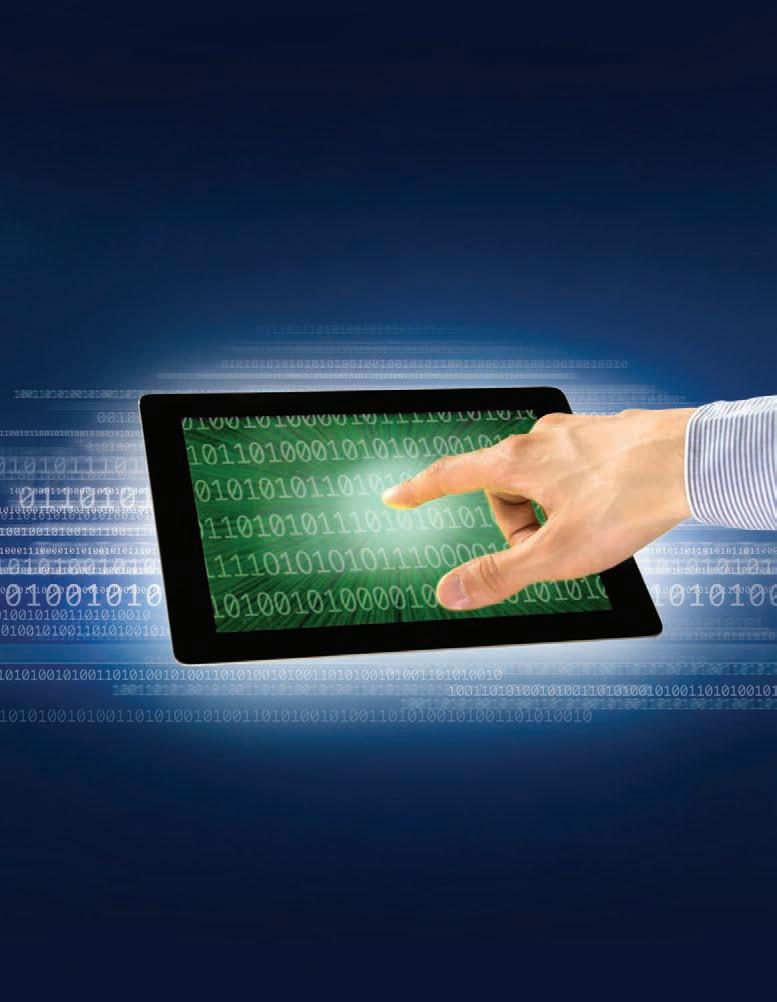
• 3:30-4:30 p.m. — Ask the Laundry Experts, sponsored by CLA.
If you don’t get all of your questions answered earlier, this represents an opportunity to ask any non-mechanical laundry industry question. Attendees are encouraged to submit questions to the CLA ahead of time via text message, Twitter or Facebook. ALN
www.chidry.com
So much to learn. So many people to see. And so little time.
You’ll face that predicament at the Clean Show, especially now that the show is one day shorter than in previous years. You are not alone: Confronted with crowded aisles and hectic booths, attendees too often return home with no more than a confused mass of general impressions.
You can do better. Trade shows can be powerful tools for boosting business profits. The secret is to plan for success, spend time wisely and prioritize tasks.
How to? Read these tips from trade show experts:
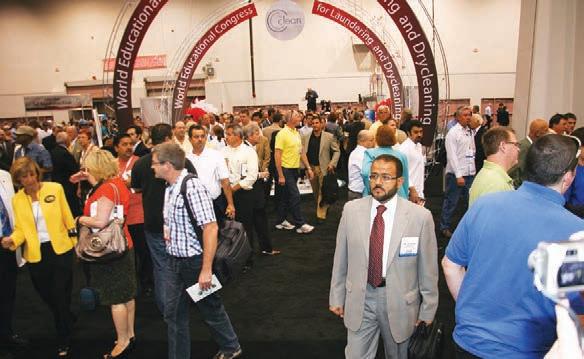
“Before arriving at the show, make a plan with specific ‘keeper’ ideas,” says Mina Bancroft, a management consultant in Palo Alto, Calif. “Then prioritize them.”
Include specific descriptions of what you want to find at the show. Here are some possibilities:
• New items of merchandise
• Line extensions in certain categories
• Lower costs in existing lines
• More reliable sources
• Promotional goods
Select the best and list them in order of importance.
Next step: Translate your goals into an ‘A’ list of vendors to see.
“Do some research on the show’s website (cleanshow.com) to identify companies and booth numbers,” says Howard Friedman, a trade show consultant in suburban Los Angeles. “That will assure that you see the most important things.”
It’s also smart to draw up a ‘B’ list of goals, suggests Friedman. “While these items may not be ‘mission critical,’ they can help open your eyes to innovations and new ways to approach problems you may have.” Tackle secondary goals in the remaining time after completing your primary ones.
Bonus tip: Ask yourself, “What is the biggest problem I have in my business?” Write it down and take it to the show to get answers from exhibitors.
Once at the show, it’s tempting to spend the first hours performing a walk-through. That can be a mistake.
“The last thing you want to do is shop the floor as you shop a flea market, just walking down the aisles and looking at things,” says Peter LoCascio, a Salem, Ore.-based trade show consultant. The clock moves quickly. It’s
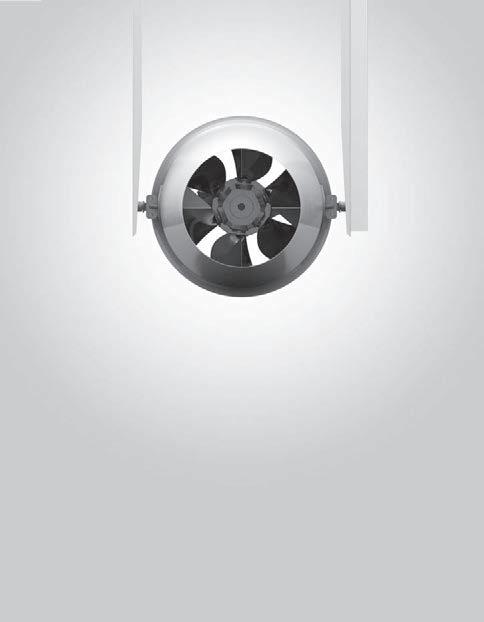
Conversations with other business people at trade shows like the Clean Show can lead to profitable business insights. So can the modern equivalent of the backyard chat: the social media network.
“Social media have created a whole new dimension to trade shows,” says Bob Dallmeyer, a Los Angeles-based trade show consultant. “Exhibitors are embracing social media to drive people to their booths. For example, a vendor may invite buyers to say a certain word to get a certain percentage off.”
The social medium of choice seems to be Facebook, followed closely by Twitter. Conversations with buyers are often uploaded to inform other buyers what is happening.
Social media are critical even if a show is not a buying show, adds Dallmeyer. “Exhibitors will disseminate news about their products so everyone knows what is happening.”
easy to run out of time before you accomplish what you need to do, he adds. “Too many times, a couple of hours before the show closes, you’ll see people running through the aisles trying to get things done.”
Instead, use the show floor map (see pp. 28-29 in this issue) to plot out your walking pattern so you can see the greatest number of vendors in the least time. Schedule a certain amount of time to each vendor on your “A” list. “You have to be disciplined and focused,” says LoCascio.
Bonus tip: Avoid duplication of effort by allocating tasks among other people from your company or organization who are attending the show.
Deal with booth personnel efficiently. Determine early whether they are willing and able to answer your questions. “When you go into a booth, there is no reason for you to waste your time,” says Bob Dallmeyer, a Los Angeles consultant. “Prepare some quick questions that pertain to your buying
interests. If the booth people can’t answer those questions, then you have to smartly move on.”
Not all booth personnel are alike. “A well constructed booth has people at various levels,” says Bancroft. “One person will be at ‘in-depth’ level; others will be at beginning and intermediate levels.” No in-depth person at the booth? You need to decide if you have sufficient interest to ask for an appointment with the right person. That can be smarter than wasting your time talking with an individual who does not have the requisite knowledge.
An alternative is to obtain the name and contact information of a person to call after the show’s over. That can be a prudent step anyhow. “Exhibitors often fail to follow up trade show leads in a timely fashion for a multitude of reasons,” says LoCascio. If you are serious about learning more about a product or service, you may wish to obtain the name and number of the local sales person in your territory.
Bonus tip: Save time by stating, “I need to make a business deci-
sion,” as you enter each booth. Then state the nature of the decision and ask how the vendor’s products will help.
Remember that ‘A’ list of vendors? Make sure you see them all by scheduling advance appointments, either before you leave for the show or when you arrive. “There’s nothing wrong with reaching out and saying, ‘I would like to meet with a specialist on Product X,’” says Friedman. “Engaging before the show is completely fine. That will make your time more productive. And the exhibitor will be delighted.”
Such appointments are important whether you are a current or prospective customer. “If you are already a customer, you will want to talk about innovations, new orders, or things that are upsetting you,” says Dallmeyer. “And if you are considering making a purchase, you will want exclusive time in the booth.”
Bonus tip: Map the show floor to identify the booth locations of
your ‘A’ vendors (again, it’s available on pp. 28-29 in this issue).
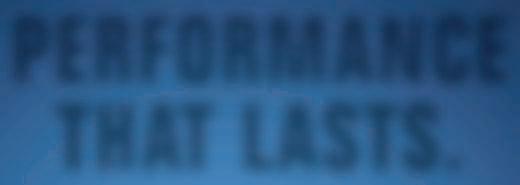
Clustering your appointments by location will reduce walking time.
Haphazard note taking can result in a confused mass of papers stashed on a shelf back home or in your office. That means you lose information critical to business success, including the names of key contacts.
Modern gadgets to the rescue! “We are seeing all kinds of new technologies to avoid the traditional business-card exchange,” says Doug Ducate, president of the Dallas-based Center for Exhibition Industry Research. “These include badge-swiping technologies that allow exhibitors to send information efficiently.”
Electronic brochures have, in many cases, replaced paper ones. “At some booths, you can use computers to send yourself information about what you have seen,” says Ducate. “Push a button and the information shows up on your smart phone and sits on your computer back at the office.”

“Old tech,” though, has its place. “Plenty of people still collect business cards and take notes on them,” says Friedman. “These can be great memory joggers to help connect the dots after the show.” A pack of business cards provides an easy reference for making followup calls.
Bonus tip: More attendees are entering information into iPads. Digital notes are efficient for later review, and also for passing along key insights to people who did not attend the show.
Sometimes, product information is fairly simple to grasp. Other times, though, you may need to devote critical thinking time to technical details.

“When you go to a trade show, the individual who has paid for a booth is trying to sell you something that may be quite complex,” says Bancroft. “That means you must initiate a way to find out more about that item, and you can’t do that at the typical show floor, which is usually a chaos of noise and confusion.”
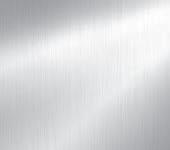
Solution? Schedule some “quiet time” to make rational decisions, suggests Bancroft. “Ask the booth sponsor to meet you for breakfast or lunch, where the quiet atmosphere allows you to go through the information you need to compare products.”
Bonus tip: Reduce travel time by scouting out a convenient venue for business talks before you meet exhibitors. Use the Internet, or locate coffee areas once you are at the show.
Schedule your time, but leave some open space. One of a trade show’s strengths is a potential for ‘serendipity,’ or the discovery of unanticipated knowledge or con-
nections. So, leave time for random encounters.
“Everyone at the show wants to discover new things and meet new people,” says Friedman. “That can be a productive situation: You may meet someone who does something similar to you but who is not a competitor. It can even happen in a lunch line. So, I encourage you to find the opportunity to say hello to people.”
Bonus tip: Allow yourself the chance for fortuitous discovery. After you complete your important work, schedule some time to visit some less-promising, lowerprofile booths.
What seminars should you attend? Reaching a decision can be difficult. Every hour you spend at a concurrent session, after all, is an hour off the show floor.
Even so, seminars are important to your bottom line. Their value is reflected in their growing presence. “We have found that 40% of today’s exhibit floor is devoted to concurrent sessions, up from 20% some years ago,” says Ducate. Why’s that? “People are looking to solve technical problems, and they will attend sessions that promise to do that.”
That comment suggests a solu-
tion to the seminar conundrum: Attend those that deal with topics of immediate concern to your business. Look at each seminar listing and ask: “Will the information in this seminar help me solve a specific problem?”
Bonus tip: Reach better decisions by calling seminar leaders before the show for more details about a prospective presentation.
SHARE THE WEALTH Productive trade-show going is a learned skill. Pass along the talent to the next generation. “It’s good for a senior-level person to bring along a junior one,” says
Friedman. “The senior person can make introductions and put products in the context of business initiatives. Relationships established at trade shows can be very helpful in the future.”
Sharing such knowledge can lay a foundation for the continuing profitability of your business. And it will help foster a habit of efficient trade show buying.
“Time is money today,” says Dallmeyer. “You need to maximize what you do at every trade show.” ALN
boiler is essential. As facilities age, managers eventually must struggle with choosing between upgrading the current boiler or buying a new one.
By Andy wALesMURRIETA, Calif. — Steam plays a key role at laundry plants, so a reliable, cost-effective and safe
Your existing boiler may be in good enough condition to justify repair or upgrade, but that doesn’t mean spending money on it makes sense. You must study a variety of factors to see if modernizing the unit will suffice.
First, review in detail your current steam needs, regulatory requirements and fuel costs. In many cases, you’ll find marked changes since that boiler was originally installed.
Plant Steam Profile — You must determine your current steam profile and loads. If load has significantly decreased, your boiler now may be running at an extremely inefficient low firing
rate. Replacing it with a smaller unit or multiple smaller units might result in substantial savings in fuel and maintenance costs.
On the other hand, your plant load may have increased to the point where your boiler is being run at extremely high loads and experiencing heavy maintenance costs. In this case, you might want to consider adding a new unit that can run more efficiently and
keeping your current boiler as a backup.
Regulatory Requirements — Local air regulations may have changed, reducing emissions allowed. Your existing boiler may not be grandfathered at its current levels, and so would require a retrofit. This might mean replacing the entire unit if the manufacturer doesn’t offer burner replacement alone. It might mean switching from oil to natural gas. Review of your local rules with a qualified environmental consultant will clarify what rules you now must meet.
Feature: Running the Route Route operations is an important function of any successful rental or commercial laundry and requires constant attention; NOLA Know-How Here’s what to see and do while in New Orleans for the Clean Show.
E ditorial Submission Deadline — April 15
Feature: Textile Selection Not all textiles are created equal, so we seek out expert advice on how to go about choosing the best-quality, longest-lasting linens; Clean Show Report Part I The big news from the just-completed event!
Editorial Submission Deadline — May 15

Feature: Eye on Efficiency Finding ways to conserve valuable resources is a never-ending quest for launderers; Clean Show Report Part II An expanded look at the announcements, introductions and ideas that made Clean ’13 a success.
E ditorial Submission Deadline — June 15
Feature: Distributors Directory Our audience relies year-round on this annual directory issue listing distributors of laundry equipment, textiles, chemicals and other supplies. You’ll want to hang onto this issue for future reference!
E ditorial Submission Deadline — July 15
Service We preview the International Hotel, Motel + Restaurant Show and get our readers caught up on the latest hospitality laundry trends.
Editorial Submission Deadline — August 15
Fuel Considerations — Fuel is by far the biggest expense in running a steam boiler. So, check the cost of fuel and the amount you use. Typically, efficiency improvement alone doesn’t justify a complete boiler replacement. However, coupling that with spending otherwise necessary for a burner retrofit or boiler heat exchanger repair may.
The specifics of your existing equipment and your current and future needs will determine what can be done, what this includes, and the cost.
repAiring A BoiLer thAt’s too sMALL or inefficient MAy not Be the Best use of your cApitAL Budget.
In many cases a retrofit, that is, modernizing your current boiler, makes the most economic sense. Often it’s easy to justify upgrading the control system with a stateof-the-art programmable logic controller and a new servo-based burner-management system. In addition, adding an economizer usually is a viable way to boost efficiency. However, repairing a boiler that’s too small or inefficient may not be the best use of your capital budget. If you’re looking to change your steam output or pressure, retrofitting generally isn’t possible.
Even if your analysis indicates that you should get a new unit, consider whether it’s worthwhile to do some minor repairs on the old boiler and keep it as a low-cost standby. And don’t automatically assume you should buy the same type of boiler.
Before choosing a new boiler, it’s important to understand the types of units available. Almost all steam boilers are classified either
Number of factors to consider before making decision
as “fire tube” or “water tube.”
A fire tube boiler typically is a horizontal vessel full of water with tubes running through it. The combustion gas flows through the tubes and heats the water around them. The gas can make from one to four passes through the water, depending upon boiler design. Another variation is the type of insulation, either dry back or wet back, on the end opposite the burner.
Typically, fire tube units run up to 1,500–2,000 BHP. Larger capacities require a water tube design.

In water tube boilers, the combustion gas flows around the tubes and water flows in them. Units come in a wide range of configurations such as bent tube, A-style, D-Style and O-style, according to the shape of the tube bundles.
Another major difference is in how the water circulates inside the unit. Most water tube boilers use natural heat circulation to move water between a vessel at the top, called the steam drum, and a collection manifold at the bottom, called the mud drum.
A third type of boiler, technically a forced-circulation water tube boiler but commonly referred to as a steam generator, uses a mechanical water pump to control and circulate the internal water flow.

Tubes normally are configured in a coil shape, so such units often are called “coil type” boilers.
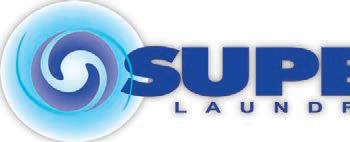

When purchasing a boiler, you should consider a variety of factors:
Costs — Annual fuel cost to run the unit easily can be five times or more the expense to purchase and install it. So, weigh operating costs when comparing prices. The cheapest unit to purchase and install may end up costing you a lot more over a 10-year period. Short-term savings may translate into an inefficient system with high long-term maintenance and repair costs.
Startup — If you don’t need steam 24/7, you’ll probably want to shut down your boiler at times. Do you need a unit that can stop and start in short order, or is a slower startup acceptable? Every time you start or idle a boiler just to keep it warm, you’re wasting fuel. If quick startups are required, consider a steam generator. These efficient boilers can go from startup to steam generating in about 10 minutes.
Efficiency — By and large, today’s boilers are tremendously more efficient than ever before, thanks to improving technology and tougher federal and state emissions standards. However, you still must pay attention to a boiler’s steam efficiency rating, which can range from about 80% to well above 90%.
Fuel Supply — Boilers use oil, coal, wood and natural gas. Each fuel has its own benefits and pitfalls. They also can vary greatly as
to their efficiency. Local emissions rules may restrict your options. Natural gas usually is the most
convenient to deliver, as it can be piped in directly. However, other fuels may be preferable depending on your location.
Service/Maintenance — A boiler usually operates for a long time. It will need servicing or repairs. So, always carefully consider vendors’ support capabilities when buying a unit.
Safety — Federal and state regulations have made boilers and boiler operation much safer than ever before. But that doesn’t mean accidents can’t happen. Routine inspections, maintenance and troubleshooting are important no matter what type of boiler you
own or plan to buy. Always check the safety record of any boiler or boiler type before purchase to ensure it meets all safety standards and regulations. Look particularly at whether the unit is certified to the American Society of Mechanical Engineers’ Boiler and Pressure Vessel (BPV) Code. To find out if a boiler you are investigating has the BPV certification, log on to the ASME website.
Intangibles — Several items that sometimes are difficult to attach an actual dollar figure to in a bid comparison can have significant economic impact. For example, how much is factory skid mounting of



equipment worth? It not only can cut installation costs but also can save engineering hours on your side. Likewise, the value of service support, parts availability, warranties, performance guarantees, etc., may be hard to quantify but these are important considerations in choosing a vendor. Buy only from suppliers that can back up the equipment with support. ALN

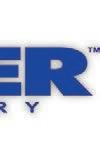

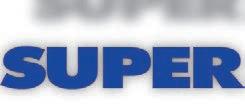
Andy Wales is Western regional manager for Clayton Industries Inc., a manufacturer of equipment for industrial process steam generation. He can be reached by e-mail at andy.wales@verizon.net


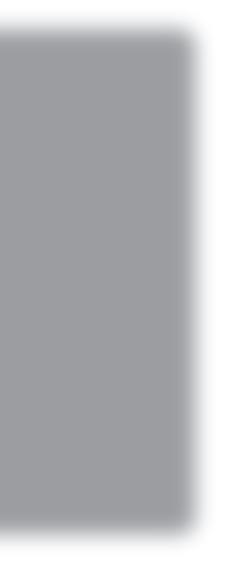
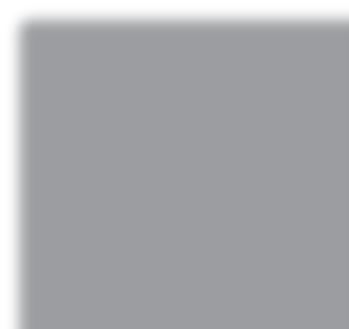
SALISBURY, Md. — By successfully serving small commercial accounts from one of his two coinoperated laundries, Mitch Wyatt nurtured a reputation that today has him handling the laundry needs of major hospitality, healthcare and food and beverage clients. Recently, to meet increasing production needs, Wyatt moved his commercial business into a newly constructed industrial laundry facility here.
The Quality Linen Services building turns out 1,700 laundry pounds per hour, using minimal labor, water and energy — giving Wyatt the opportunity to draw new clients and boost profits.
“I serviced five hotels, two assisted-living facilities, one university, and two restaurants out
of one washer at my coin laundry,” says Wyatt. “We used a 55-pound-capacity Continental E-Series Washer that would maintain a temperature of 140 degrees and stay at that temp. I was getting stuff so clean, my clients were amazed.”
Once cleaned, tablecloths, linens and napkins were pressed and finished using a Continental Flatwork Ironer. Wyatt’s staff then folded, stacked and delivered the items to clients.
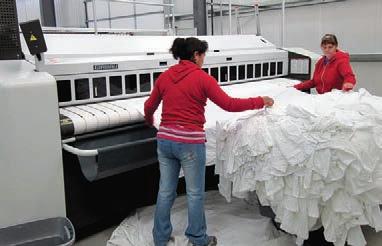
All went smoothly until Wyatt secured a five-year contract with a local hospital. “I knew I needed significant industrial equipment to fulfill growing production requirements,” he says.
So, he sought help from Operations Manager Doug Colonna, who holds 15 years of industrial laundry experience; Deke Sheller of Fowler Equipment,
a laundry equipment distributor in Baltimore; and Joel Jorgensen, vice president of laundry equipment manufacturer Continental Girbau.
The 10,000-square-foot industrial facility required careful planning, a partnership of experts, and a mix of highly efficient industrial laundry equipment engineered for bolstered productivity, according to Wyatt.
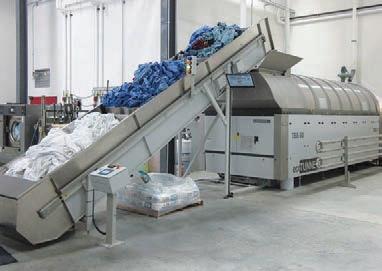
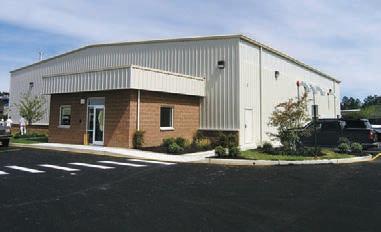
“We worked with the engineer constructing Quality Linen’s building and all elements of laundry design, construction and utilities,” says Jorgensen of the project. “We went on to define specific laundry production needs, the equipment mix, and solidified financing over an eight-month period.”
In the end, the new building featured a Girbau Industrial Continuous Batch Washing system capable of processing 13,600 pounds in an eight-hour shift.
The facility’s powerhouse is its seven-module Girbau Industrial TBS-50 Eco-Tunnel with fourstage water reclamation, water filtration and drain-water heat recovery. Complementing equipment includes a Girbau Industrial ICP3 Incline Loading Conveyor, SPR-50 Press, Dual-cake Delivery Shuttle, three ST-100 Dryers, a PSN 80 single-roll gas thermal ironer, FT-LITE Folder, AP LITE Stacker and an FT-MAXI triplesort dry goods folder.
Two Continental Girbau CG-120 Dryers, and two Continental E-Series washer-extractors (55 pounds and 90 pounds, respectively) round out the lineup.
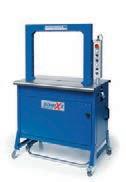

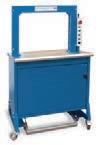
The system not only boosts laundry productivity to 95,200 pounds per week using a single shift, according to Wyatt, it takes just one employee to operate and manage, is stingy on water, and produces high-quality results.
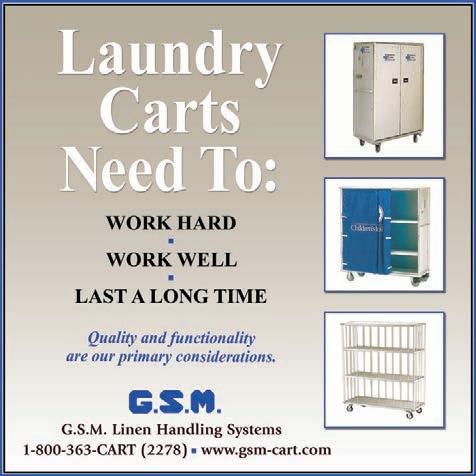
Key to Wyatt’s equipment deci-
sion was his need to properly manage and process laundry for a variety of accounts. “Unlike most of our competitors, we provide rental service, as well as service for clients with customer-owned goods,” he says. “We required equipment programmable by customer, so items would be properly cleaned according to each client’s unique needs.”
We hope you know how just one strong PP strap automatically applied to a bundle of towels, bedding, scrubs or other textiles means secure, neat bundles that stay intact. What you might not know is that we now have two new dynamic systems to offer the laundry industry.
Our entry-level heat seal ROM Fusion bundler offers you the reliability of a Mosca system for much less! Same heat seal technology, precise strap tension control, direct-drive motors and minimal operator involvement with a smaller footprint. Or, for the ultimate system, check out our new ROMP-6 Evolution. Over 50 bundles minute, front and side coil loading and heat seal or ultrasonic Sonixs sealer. Call us for more details or visit our website. See you at the Clean Show! #4504 EAM-Mosca


Each of the Eco-Tunnel’s seven modules is programmable for duration of the wash cycle, water temperature and levels, bath partitions, rapid draining, chemical injection, mechanical action, closing parameters and more.
“We’ve preprogrammed the computer by customer and all of the items they use,” says Wyatt. “This is vital with customer-owned goods because we can separate each customer’s linens by color code in the system and track them throughout. They don’t want to lose their linens.”
One of Wyatt’s hospital clients, for example, has 20 items, including bed pads, sheets, gowns, scrubs, blankets and towels. “Each item, one through 20, is programmed differently,” he says. Similarly, hotel items—sheets, pillowcases, towels and mats—are each programmed differently. At any time, the Quality Linen staff can see where items are in the cleaning process: the Eco-Tunnel, conveyor, press or dryer.
From a touch-screen station, one employee runs the Continuous Washing System. He or she selects a customer number and program on the Eco-Tunnel’s central computer screen and loads the tunnel conveyor, which automatically weighs each 110-pound load. The conveyor moves the goods up an incline, where they are automatically loaded into the first module of the tunnel washer. Every 110-pound load travels through seven modules, and each module is programmed to perform a function for four to six minutes, such as pre-wash, wash, rinse, etc. After the programmed time duration, the load is automatically transferred to the next module.
The Eco-Tunnel uses less than a gallon of water per laundry pound and completes even the dirtiest 110-pound load in 42 minutes, according to Wyatt.
“I like everything about it,” he says. “It operates off of steam, has a drain-water heat reclaim system, filters, and then reuses 60 to 70% of the water.” As the central component of the Continuous Washing System, the tunnel reuses rinse and extracted water for prewash. Because water is recycled, less water is used and heated, lowering associated costs.
Once a load travels through every tunnel module, it’s pressed— and water is extracted—until linens resemble a condensed “cake.”
Via another conveyor system, each cake is loaded into an open dryer. Sheets are quickly separated in the dryer and run through the ironing line still damp, while towels are completely dried and subsequently run through the laundry’s automated folding and sorting systems.
Once the cakes—sheets, pillowcases, tablecloths and napkins—
are separated in the dryers, they are run through an ironing line while damp. Two attendants feed the ironer, processing 80 feet of linen per minute. Ninety percent efficient, the gas ironer is also programmable to meet specific needs, according to Wyatt, and automatically adapts cylinder speed according to linen type and moisture content. This eliminates the need to dry linens before running them through the ironing line.
“We can finish 400 sheets per hour using this ironer,” he says.
“To have a piece of equipment finish so many different item types is amazing.” Once ironed, the vari-



ous napkins, tablecloths, sheets and pillowcases are automatically folded.
Meanwhile, dry goods, such as towels, gowns, robes and bath mats, are fully dried and put through an automatic folder, which processes 1,200 items per hour. A variety of items are fed into the folder one after another, where they are automatically folded according to pre-programmed fold specifications, sorted and stacked. “The folder allows us to wash and dry different items, like hospital gowns, towels and bath
mats, in one load,” says Wyatt. “It eliminates the need for up to two operators.”
Thus far, Quality Linen is processing 100 pounds of laundry per operator hour (PPOH), but Wyatt hopes to improve that number by 20%. “Quality and productivity are so much greater,” he says. “We were getting good quality before from our Continental washer, but from the Eco-Tunnel, we are getting superior quality.”
The facility is capable of processing 95,000 pounds of laundry per week using one shift, or, using


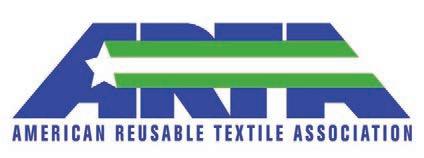
two, processing 190,000 pounds. Simultaneously, Wyatt maintains he’s able to properly serve a variety of customers.
“We have clients with customerowned goods who rely on us to provide superior service,” he says. “Because of our advanced technologies and equipment, we can clean, finish, and track virtually any item, according to our clients’ specific needs.” And that, Wyatt says, is what sets Quality Linen apart. ALN
WINTER HAVEN, Fla. —
When looking to renovate an existing laundry or building a brand-new facility, there are many questions to ask before the process begins and while the process is ongoing.
David Chadsey, the managing director for Laundry-Consulting .com, addressed the issue during a recent webinar, 10 Things You Should Know Before Building or Renovating a Laundry, sponsored by the Association for Linen Management.
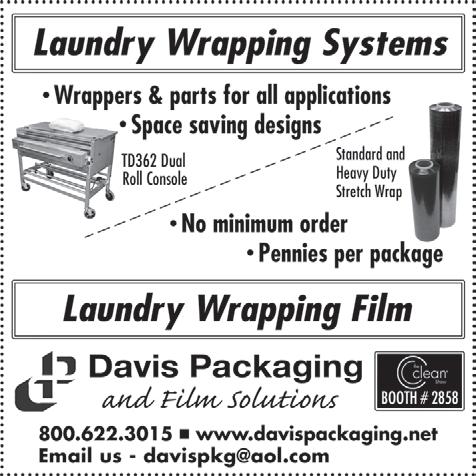
While Chadsey focused on 10 questions to ask, he emphasized that for each application, there may be more than or fewer than 10 items, and that the list is not intended to all inclusive.
Chadsey’s first question focused on what a laundry needs to process and how much needs to be processed.
“This is the first thing you need to evaluate,” he says. Best practices are based on volume and classification and will differ depending on the type of laundry facility you are working with.
“When calculating what and how much, we want to confirm the volume and then we want to estimate for projected growth,” Chadsey says. “If you’re building
or renovating, obviously you don’t want to build just for today.”
Look down the road; what are the possibilities that might be in store for the facility?
Chadsey suggests looking at what equipment you have and want, and perhaps allowing the facility’s plans to contain contingencies for expanding square footage sometime in the future.
Another suggestion is to evaluate the capacity per each process path, whether it’s dry fold, flatwork, wash aisle or finishing line. Take a look at manual labor and automation, and what may change in the future. You can design a finishing line, for instance, more effectively if you know it’s only going to handle hospital sheets.
Always allow for flexibility in a project. If the projected production is to be maintained, laundry managers must look at the ebb and flow of a plant as the linen moves through, as well as the times of day and the days of the week.
If a change occurs, whether it be in equipment or in processes, the laundry must be flexible enough to handle the change.
As a way to maintain checks and balances during the building process, and to be sure that everything is covered and the project is moving forward, select a well-balanced team to oversee the project. Such a large-budget undertak-
ing will typically require a project coordinator—usually a member of the organization behind the project—and an outside consultant, one to help the team navigate the process, will be hired. Other members of the team are typically the laundry manager, contractors, the architect and engineer, and there may be more than one engineer, equipment vendors, plant engineering staff, human resources, and a person who will speak for those financing the project.
The project coordinator needs to understand the work scope of all members of this team, as well as their responsibilities, Chadsey says.
Before the building progresses too far, it is best to identify best practices for the particular type of operation intended for the renovated or new facility.
“Processing 20,000 pounds of linens for healthcare is different than processing 20,000 pounds of hospitality linens, especially on the finishing side,” Chadsey says. And processing industrial textiles is certainly different than processing table linens.
He suggests talking about automation, different types of wash wheels, as well as volume considerations before too much time, money and energy has been expended on the project.
Any building project involves considerable amounts of money, Chadsey says.
While people most often con-
sider equipment to be the major expenditure for a laundry operation, it may be true only for some renovation projects. If the laundry is brand-new or the facility will be undergoing a major redesign, often the planning and design stages can be a major budget item, as well as the construction costs.
Consider these factors:
• Planning and Design
• Construction
• Utility Upgrades and Connections — Will the new facility require more electricity, higher water consumption, greater sewer capacity?
• Equipment
• Impact Fees — Depending on the locale, these fees can be significant, Chadsey says. Consider the fees that will be charged by the municipality for the facility, for new connections to water lines and sewer, or for other utilities. One project on which Chadsey worked encountered impact fees in excess of $1 million, he says.
• Downtime Processing — During renovation, is a plant going to experience downtime? A project team must look at how the operation’s processing will be completed during building or renovation, and plan for that downtime.
• Transition and Training — If a new plant is being built to replace an older facility, a project team must consider how operations, equipment, personnel and support staff/equipment will be moved from the old facility to the new. In the case of a renovation, how does management propose to work around and then integrate a new line or new room of the
facility? And after the transition is complete, production numbers will be lower as the staff is trained and learns new equipment, procedures and systems. Staffing issues may include the need to downsize.
One of the major considerations for both a new build and a renovation is the facility’s footprint. If you are currently operating a laundry, you probably will have a general idea of the space required for current needs. But what happens if you want to expand? Chadsey has a production area formula that he picked up along the way during his 28 years in the industry, and while he can’t remember where he found the formula, he thanks those who came up with it.
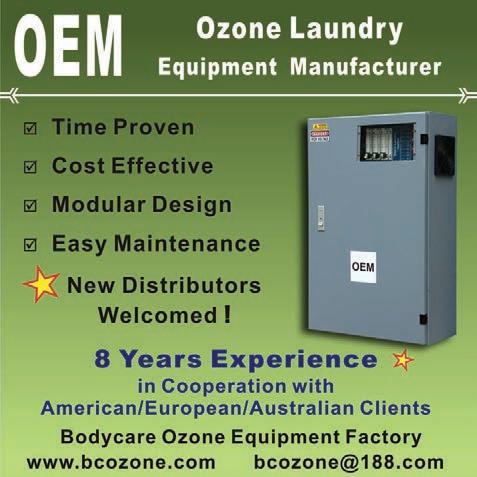
“I use 5 square feet times pounds processed per hour. Plus soiled and clean staging, plus the mechanical room,” he says.
The staging area or areas encompass the space needed to process incoming soiled linen, as well as processing and storing clean linen after it comes off the process lines.
“An on-premise laundry may require a relatively small staging area,” he says. “If you’re a shared hospital laundry with a large number of trucks coming in each day, or if linen goes to a certain customer and that customer can only pick up three days a week, then staging requirements can be significant.”
Green initiatives are another consideration, he says. Take new innovations in water-reuse equipment, for instance, which may take more space.
Webinar focuses on 10 things to know before building or renovating plant
The formula example that Chadsey provided during the webinar was:
A laundry processes 10 million pounds per year for 312 days per year (that’s 32,000 pounds processed per day). Divide that figure by the number of hours the facility is operating each day—in this case, 12 hours—and you have 2,700 pounds of linen being processed each hour. Multiply that figure by five and you arrive at a total of 13,500 square feet required for production.
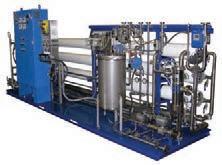
For this example, Chadsey used 2,500 square feet for both the staging areas and the mechanical room, making the facility’s total size 18,500 square feet.
The sixth point in Chadsey’s 10-point plan is for a project team to anticipate key operational metrics. Focus on the actual figures for the cost of labor, utilities and maintenance. These are extremely important aspects of running a laundry, he says. There should be project goals for each, and everything needs to be in writing.
“Projected goals for operational costs should be in writing,” Chadsey says, “and be confirmed by the consultant, the laundry manager, and the equipment vendors.”
The figures will also help with return-on-investment projections for the finance member of the team.
“Automation will be more popular as labor costs continue to increase,” Chadsey says.


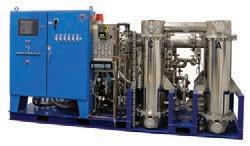
A polling question posed during the webinar indicated that 89% of participants would be open to upgrade if they were supported by strong ROI research, while
11% were all about the upgrades. Chadsey theorized that the 11% had seen first-hand the advantages of automated upgrades.
He did enter a note of caution at this point: “Just because they build it, it doesn’t mean it’s right for your operation.”
During the planning process for a new or renovated laundry, consider automation options for soil sorting, soil rail (there are multiple levels of automation for this step), wash aisle, dryer loading/unloading, clean rail, dry fold, flatwork-finishing options, material-handling options, and product tracking.
For soil sorting, a number of automated options are already available, from inexpensive systems to those that will cost millions, but all will have a positive impact on ROI. There are also multiple levels of automation when it comes to sorting rails.
Wash-aisle options have become more popular in the last decade, Chadsey says. Tunnel washers are better in most instances, the automation is better, they load better, process better, and include a number of options on the back side, he says.
Product tracking is the hottest thing, he says. RFID (radiofrequency identification) can help an operation not only track items within the plant, it can also track items in other locations, such as a customer’s storage areas. As long as a sensor is placed in the area, the RFID chips can be read anytime, anywhere. This offers another advantage in customer support, offering something the customer can’t get anywhere else.
His advice? Go through all the options before you start.
The project team, the owners
and the managerial staff for a renovated laundry, as well as for a new facility, will need to understand the relationship between capital costs, operational costs and automation costs. Most people will understand that spending more money on automation upfront will translate into lower operational costs down the road.
Keep in mind that upfront costs will probably be higher than anticipated. And that if the finance member of the team says the projected costs are too high, some adjustments will need to be made, Chadsey says.
Initial interest in automation oftentimes is abandoned as project capital costs are formally evaluated.
“You have to understand what that automation is going to do for you, and you also have to understand that if you’re doing a full plant, if you take part of that automation out, that is going to affect the operation,” Chadsey says.
He advises double-checking the operational metrics to gain a great
understanding of what is going to happen going forward with the project.
A timeline with contingency plans is essential for transitioning an operation from old to new.
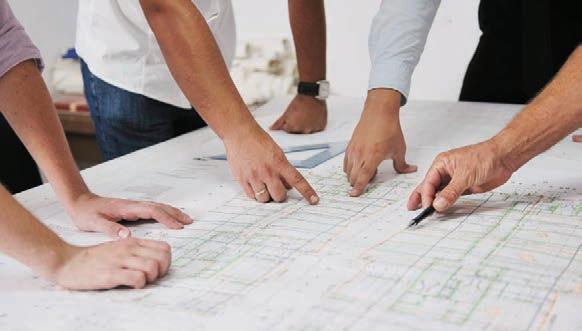

Break down the timeline into days, and specify what will happen on what day. Have a contingency plan in place before everything starts, so you know what’s going to happen if a step is not completed on time and how the project will catch up.
Plan for production to be affected during the transition period. Will the water supply or electricity be cut off for a time? Will workers be in the way of other workers, blocking ingress and egress from a particular area? Work it out and understand what is going to be affected and what measures will be effective in minimizing the chaos.
At the end of a project, everyone is usually in a hurry to finish up and get production started,
Chadsey says. “You have to have time to train operators and engineering, and you may want to build in a soft start date.” Plan for the transition, he says.
Chadsey, in his last step, reiterated that 10 steps may not be all that is needed in any given project. Some will take fewer steps, others will require many more than 10.
To complete a project successfully, members of the team—the project coordinator and the consultant, in particular—will need to consider what can give during a project and what can’t. Is there leeway in the budget? Is time a major consideration? Is there built-in time for the facility to be inactive in order to work out the glitches in the process or equipment? Will the transition and training be a major issue?
Chadsey is confident that these 10 steps will help you complete a project successfully and start operations off on the right foot. ALN
FALL RIVER, Mass. — As American Dryer Corp. (ADC) markets a new company vision and direction for the future, it is also showing pride in its past by paying tribute to longtime owner Martin Slutsky.
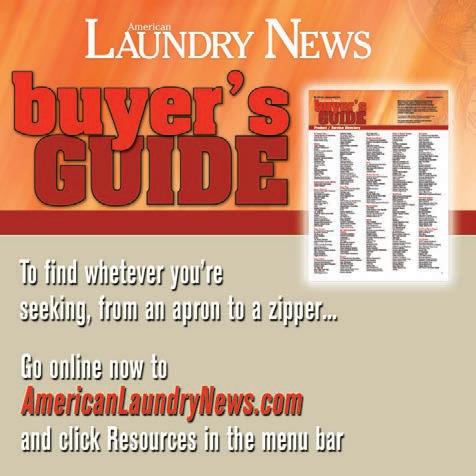
ADC has newly established an award named for Slutsky to honor the top ADC distributor that demonstrates the philosophies upon which the company was built. It will recognize “remarkable achievements, dedication and unmatched success,” ADC says.
Slutsky launched ADC from the ground up in 1965. His most renowned accomplishment was inventing the 30-pound stack dryer to help coin laundries double drying capabilities, increase sales and save space.
The award will be presented to the distributor whose partnership is most admired, and with business practices that exceed customer expectations. The winner will be announced during the Clean Show in June.
KENNER, La. — Pellerin Milnor Corp. invites laundry industry professionals traveling to New Orleans for the Clean Show next month to tour the company’s 400,000-square-foot factory during a pre-show open house on Wednesday, June 19. Tours will be conducted from 8 a.m. to 3 p.m.

Company representatives will transport preregistered guests to and from the suburban New Orleans facility so they can enjoy a 11/2-hour tour of the factory where Milnor machinery is made.
Visit milnor.com to learn how to register.
Textiles has expanded its operation into Los Angeles, adding a service center there to provide even greater coverage and a larger physical presence for existing and prospective customers, the company reports.
“As we continue to expand in the Los Angeles market, this service center will increase our coverage in the greater Los Angeles area,” says Tom Gildred, Emerald Textiles CEO. “Our existing customers will benefit from this additional location and so will any new customers in the region.”
Emerald Textiles operates what it considers to be “the most technologically advanced and environmentally responsible commercial laundry facilities in the United States,” saving a reported 40 million gallons of water and more than 750,000 therms of natural gas annually.
HOUSTON — ARCO/Murray National Construction Co. has completed the renovation of a healthcare laundry facility for the local Veterans Affairs Medical Center, the designbuild firm reports.
The Oakbrook Terrace, Ill.-based company provided design-build installation for the 14,000-square-foot facility’s utility relocations and upgraded infrastructure, which included the removal and installation of laundry equipment, as well as the demolition of existing utilities servicing the equipment.
The crew was able to modify existing utility systems without interrupting hospital operations through a technique called “hot tapping,” coordinating the shutdown of certain utilities while connecting to existing piping still in use.
New equipment included a seven-module tunnel washer, four dryers and a spreader/feeder/stacker assembly. New concrete pads, drain trenches and HVAC ductwork were installed to service the equipment.
Access openings to the basement were also reworked to accommodate transport of large equipment to and from the facility.
Work was completed solely on mid-floor levels to avoid disruptions to the functioning hospital.
NEW ORLEANS — Alabama-based Starr Textile Services continues along its path for growth in the Louisiana market. The hospitality-centered commercial laundry services company plans to expand into a new facility it has purchased in nearby Jefferson Parish.
After two years of working alongside the Jefferson Parish Economic Development Commission (JEDCO) to secure a location, Starr was able to acquire a facility in the parish’s Elmwood Business Park, the organizations announced during a press conference.
Starr purchased the land and building through an SBA 504 loan, which will also fund new commercial laundry equipment and building renovations. More than $10 million will be invested in the project, Starr reports, with JEDCO financing more than $4.3 million, making it the largest SBA 504 loan in the Commission’s history.
The new facility is expected to create 40 new jobs immediately, with another 25 added in the first two years of receiving loan funding. The plant will also allow Starr to increase its processing capacity to more than 6,000 pounds of laundry per hour to service hotels, restaurants and condominium property management partners in Louisiana and Mississippi around the clock.
Starr has partnered with Kenner, La.-based manufacturer Pellerin Milnor Corp. and distributor Pellerin Laundry Machinery Sales Co. to design and equip the new facility. Starr expects to purchase more than $4.5 million worth of laundry equipment, including a Milnor PulseFlow® tunnel washer.
Starr and Pellerin Laundry Machinery teamed previously to design and equip Starr’s original 30,000-square-foot facility in Foley, Ala.
“Pellerin and Starr make great partners because our business principles and high standards for customer service are aligned,” says Sheila Hodges, owner and chairman of Starr’s parent company, SH Enterprises.
“We are very proud to be partnering with Starr Textile
its state-of-the-art factory
Emerald Textiles expands by adding new Los Angeles service centerSAN DIEGO — Commercial healthcare laundry Emerald
Services on this state-of-the-art laundry facility,” says Scott McClure, vice president of Pellerin Laundry Machinery. “This new laundry will be minutes away from our Kenner plant and will have some of the latest energy-saving technology.”
Their proximity will benefit both businesses, Jefferson Parish President John F. Young believes. “Not only did Starr find a new home in Jefferson Parish…but it also moved closer to a company that can service its equipment needs,” he says.
“The New Orleans area has been very good to us,” says Hodges. “Our commitment back to this area, and now to Jefferson Parish as well, is that we will continue to invest in the community.”
Starr is expected to move its New Orleans operations into the new building by August.
ALEXANDRIA, Va. — Wages for entrylevel positions in TRSA (Textile Rental Services Association) member companies’ laundry operations grew faster in 2012 than pay for Americans as a whole, ranging from 1.5% for lesser-skilled positions like folding, ironing and hangering to 4.3% for more complex tasks like load-building and pressing, according to the TRSA 2012 Plant Employee Compensation Report.
Hourly pay across the spectrum of U.S. jobs increased less than 1% (0.89%) from fourth quarter 2011 to the same time in 2012. Thus, entry-level laundry positions’ median wage growth was almost twice to five times the national average. The higher-skilled segment of this group of laundry and dry cleaning roles has outpaced the workforce as a whole in this metric since 2009, according to the federal Bureau of Labor Statistics’ (BLS’) most recent data compilations.
Thirty-seven companies reported their wage and benefit practices to TRSA for the
report; roughly one-third were healthcare laundry specialists, one-third were equally divided between food/beverage/hospitality and industrial uniform specialists, and the remaining one-third were mixed.
Laundry production workers who had worked in the industry for one to four years earned the highest median wage from linen specialists: $10.40 to $11.70 per hour varying with job complexity. Mixed plants had the lowest such pay ($7.75 to $9.14).
The report also reflected the importance of recruiting outstanding route service personnel and ensuring customer satisfaction. Hourly base rates for such personnel with one to four years experience ranged from $13.25 to $17.49. This compares favorably with the economy-wide average of $13.22 for driver sales personnel. With incentives, the range for such TRSA drivers rises to $18 to $23.21.
Laundry production workers (roughly 40% of them) receive incentives as well; those in the 1- to 4-year experience range had overall median compensation ranging from $8.45 to $11.95.
TRSA produces the Plant Employee Compensation Report to enable association members to benchmark their pay and benefits practices, and covers the range of strategies deployed by textile service companies. The survey enables industry operators to compare their practices with operations similar to theirs in line of business, number of locations and sales volume.
For each position in each classification of company, an average salary or wage is listed with incentive potential and the number of companies in the survey offering such incentives. Various approaches to providing fringes are described, such as percentage of premium paid by employer, deductible and co-pay amounts, and 401(k) matching.
Copies of the TRSA 2012 Plant Employee Compensation Report are free to participating TRSA members; non-participating members and participating non-members receive a discount; others pay full price. ALN

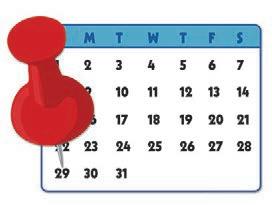

18-21 National Restaurant Association NRA Show 2013: The International Foodservice Marketplace McCormick Place, Chicago Info: restaurant.org/show
21 Textile Rental Services Association
Executive Roundtable — Independent Industrial Hilton Indianapolis Info: 703-519-0029, ext. 108

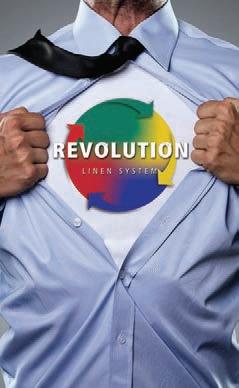
22 Textile Rental Services Association Safety Summit Hilton Indianapolis Info: 703-519-0029, ext. 108

23 Association for Linen Management Manager Series Webinar: Maintenance and Utilization Practices for Patient Safety Devices Info: 800-669-0863
23 Textile Rental Services Association
Executive Roundtable — National Companies Hilton Indianapolis Info: 703-519-0029, ext. 108
30 Association for Linen Management Technician Series Webinar: The Clean Facility Info: 800-669-0863
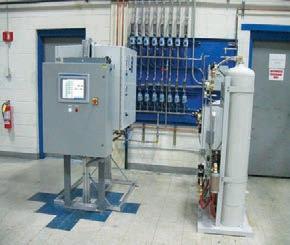


19 Textile Rental Services Association
20-22
Clean Show Reception House of Blues, New Orleans Info: 703-519-0029, ext. 108
World Educational Congress for Laundering and Drycleaning Morial Convention Center, New Orleans Info: cleanshow.com
21 American Reusable Textile Association/ Healthcare Laundry Accreditation Council Breakfast at Clean Morial Convention Center, New Orleans Info: njenkins@arta1.com
18 Association for Linen Management Manager Series Webinar: Building a Successful Linen Quality Assurance Program Info: 800-669-0863
23-24 Textile Rental Services Association Textiles Summit Waldorf-Astoria, New York, N.Y. Info: 703-519-0029, ext. 108
25 Textile Rental Services Association Executive Roundtable — Hospitality (Hotel & Lodging) Waldorf-Astoria, New York, N.Y. Info: 703-519-0029, ext. 108 ALN
Huge stock of parts for most laundry equipment & boilers. Also traps, valves and lubricants. Overnight delivery. Our 53rd year.
Steiner-Atlantic, 800-333-8883 Fax: 305-751-8390 www.steineratlantic.com

Hotelier Linen Services in Miami is currently looking for an experienced chief engineer in a three tunnel facility. If you are interested please email your resume to hr@hotelierlinen.com. Competitive compensation package.

U.N.X. INCORPORATED seeks skilled professionals in the laundry industry to foster new growth and expansion. With 55 years experience in health care, hospitality and industrial operations, we are an industry leader with the most technologically advanced chemical products and “state of the art” injection systems available.
If you have had successful selling experience in high volume laundry plants, come grow & expand with U.N.X.!
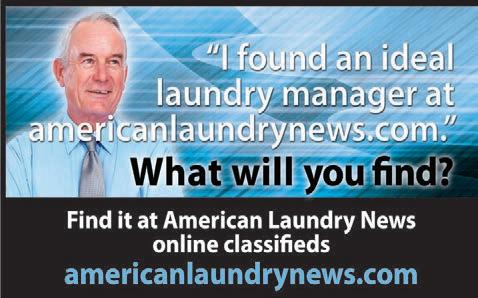
Territory Managers will have advancement opportunities. U.N.X. is
Hotelier Linen Services in Miami is currently looking for experienced maintenance mechanics. Send your resume to hr@hotelierlinen.com . Competitive compensation package.
Field Service Technician
Ludell Mfg Co.-Milwaukee, WI, an equipment manufacturer of large industrial water heating equipment, heat exchangers, economizers, tanks and pumping systems is searching for a motivated technician to join our expanding field service department. Must be capable of traveling to customer jobsites to perform service, equipment start-up, repairs, modifications, maintenance, inspections, troubleshooting and operator training. Experience with combustion equipment, water pumping systems, electrical controls and PLC programming is a requirement. Travel is expected to average 50% annually. When not performing service duties, technician will assist in the engineering and production departments. Benefit package is provided. Email resume to: sales@ludellmfg.com
Large UniMac Commercial laundry equipment distributor is looking for a strong parts professional to join our team in Marietta, GA (Atlanta). Experience in commercial laundry parts - primarily UniMac - is required, although we service all major brands of equipment. We would love to talk with you about your experience and goals for the future. We offer a great benefit package and a salary dependent upon your experience. Excellent computer and customer service skills are a must as well as an understanding of what is required to get customers and keep them for life. Don’t miss this opportunity to join this first class company who focuses on the future. We love our customers and our employees and look forward to hearing from you soon. Send resume to Cindy Richie at cindy@selaundry.com
Wash - McClure Industries, Inc. 9051 SE 55th Ave., Portland, OR 97206 800-752-2821 www.mcclureindustries.com, info@mcclureindustries.com




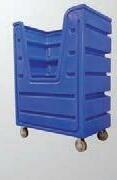

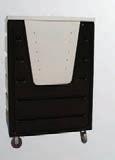

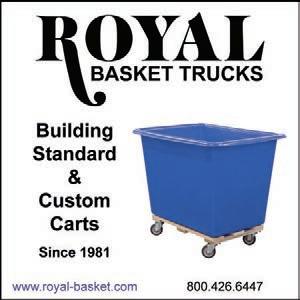
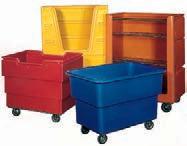



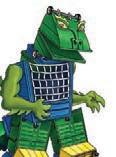
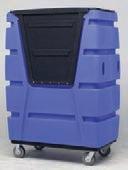

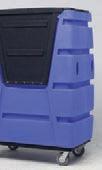



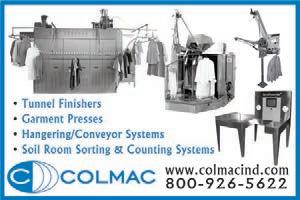
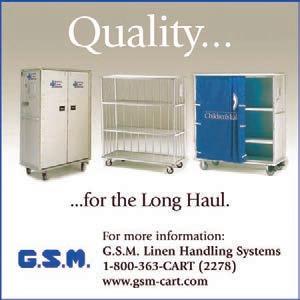





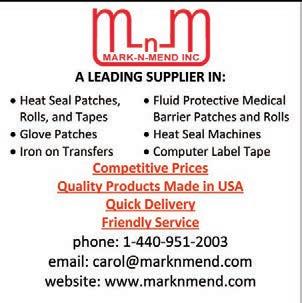
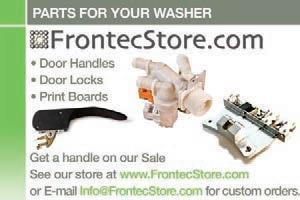
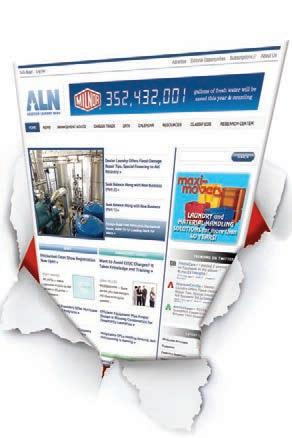





Pellerin Milnor Corp.
P.O. Box 400, Kenner, LA 70063 504-467-9591, Fax: 504-468-3094 www.milnor.com
Felins UsA, inc. Milwaukee, Wi Tying, Banding & Automated shrink Wrap systems 800-843-5667 sales@felins.com For more information visit us at www.felins.com
Pellerin Milnor Corp.
P.O. Box 400, Kenner, LA 70063 504-467-9591, Fax: 504-468-3094 www.milnor.com
Pellerin Milnor Corp.
P.O. Box 400, Kenner, LA 70063 504-467-9591, Fax: 504-468-3094 www.milnor.com
Pellerin Milnor Corp.
P.O. Box 400, Kenner, LA 70063 504-467-9591, Fax: 504-468-3094 www.milnor.com
A.L. Wilson Chemical Co. www.alwilson.com 25
American Dawn www.americandawn.com 7
American Dryer Corp. www.amdry.com 31
American Laundry Systems www.eomech.com 26
ARTA www.arta1.com 47
Bodycare Ozone Equipment Factory www.bcozone.com 48
Chicago Dryer Co. www.chidry.com 41
Clayton Industries www.claytonindustries.com 40
Clean Show 2013 www.cleanshow.com 17
Consolidated Laundry Machinery www.clmco.com 37
Cornerstone Equipment & Rigging www.cornerstonemachinery.com 52
Davis Packaging www.davispackaging.net 48
Dexter Laundry www.dexterlaundry.com 43
Direct Machinery Sales Corp. www.directmachinery.com 52
EAM Mosca www.eammosca.com 46
EcoTex www.ecotexlaundry.com 38
EDRO Corp. www.edrodynawash.com 39
Freightliner Custom Chassis Corp. www.freightlinerchassis.com 9
G.A. Braun www.gabraun.com 21, 23
The Griffin Group, Inc. www.thegriffingroup.cc 52
G.S. Manufacturing www.gsm-cart.com 46
Girbau Industrial www.girbauindustrial.com 15
Gurtler www.gurtler.com 11
Hamilton Engineering www.hamiltonengineering.com 38
IES www.iesclean.com 32, 42
IPSO www.ipso.com 35
J.P. Equipment www.ineedjpequipment.com 52
Jensen www.jensen-group.com 36
Kannegiesser USA www.kannegiesser.com 33
Kemco Systems www.kemcosystems.com 49
LaundryCareers.com www.laundrycareers.com 52
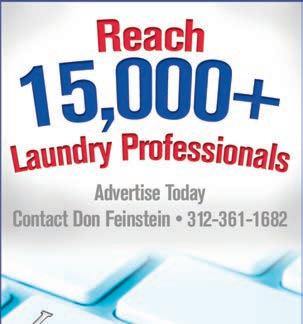
Laundrylux info@laundrylux.com 27
Lavatec Inc. www.lavatec.com 16
Lavatec Laundry Technology www.lavatec-laundry.com 56
LG www.lgcommerciallaundry.com 5
Maytag www.maytagcommerciallaundry.com 13
McClure Industries www.mcclureindustries.com 36
MIP www.mipinc.com 51
NATCO www.nationalcombustion.com 50
Paratherm Corporation www.paratherm.com/laundry 49
Parker Boiler www.parkerboiler.com 34
Pellerin Milnor www.milnor.com 3
Rennco www.rennco.com 10
Royal Basket Trucks www.royal-basket.com 18, 19
Spartan Chemical www.spartanchemical.com 30
Stanco Industries www.stancoind.com 52
Streamline Solutions www.soiledlinenbags.com 14
Super Laundry www.superlaundry.com 45
U.N.X. Inc. www.unxinc.com 12
Washburn Machinery www.washburnmachinery.com 52
Wet-Tech www.wet-tech.com 51
Yamamoto www.yamamotolaundry.com 34
Source Directory listings in American Laundry News are sold on an annual basis at the following rates: All Major Credit Cards Accepted
Listing
